A sortable/searchable list of all reviews is available under Index
28 December 2022
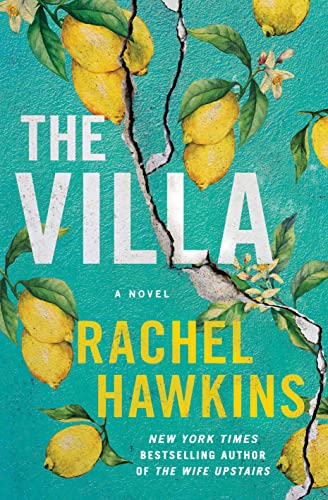
As kids, Emily and Chess were inseparable. But by their 30s, their bond has been strained by the demands of their adult lives. So when Chess suggests a girls trip to Italy, Emily jumps at the chance to reconnect with her best friend.Villa Aestas in Orvieto is a high-end holiday home now, but in 1974, it was known as Villa Rosato, and rented for the summer by a notorious rock star, Noel Gordon. In an attempt to reignite his creative spark, Noel invites up-and-coming musician, Pierce Sheldon to join him, as well as Pierce’s girlfriend, Mari, and her stepsister, Lara. But he also sets in motion a chain of events that leads to Mari writing one of the greatest horror novels of all time, Lara composing a platinum album––and ends in Pierce’s brutal murder.
As Emily digs into the villa’s complicated history, she begins to think there might be more to the story of that fateful summer in 1974. That perhaps Pierce’s murder wasn’t just a tale of sex, drugs, and rock & roll gone wrong, but that something more sinister might have occurred––and that there might be clues hidden in the now-iconic works that Mari and Lara left behind.
Yet the closer that Emily gets to the truth, the more tension she feels developing between her and Chess. As secrets from the past come to light, equally dangerous betrayals from the present also emerge––and it begins to look like the villa will claim another victim before the summer ends.
Inspired by Fleetwood Mac, the Manson murders, and the infamous summer Percy and Mary Shelley spent with Lord Byron at a Lake Geneva castle––the birthplace of Frankenstein––The Villa welcomes you into its deadly legacy. [from the publisher]
The Villa is being advertised as a mystery/thriller. Chapters alternate between the present (Emily and Chess storyline) and the 1970s (Mari storyline). In all cases, we are dealing with unreliable narrators—one could get whiplash from the quick switches, beginning to end. Ultimately, I found this unsatisfying. As such, I lowered my rating somewhat. That notwithstanding, the story was entertaining. I never once thought of bailing.
The main narrator of the audio edition is Julia Whelan, who is a consistently strong performer. I'm not familiar with the other two narrators, nor did I find them to be nearly as skilled as Whelan. The podcaster narration (two characters) is especially obnoxious, as intended.
The story gave me a Taylor Jenkins Reid vibe throughout, perhaps due to the sensationalism. [When I started writing the review, I noticed in the publisher's description that the story was inspired by Fleetwood Mac, which makes my TJR vibe even more understandable.]
Thank you, NetGalley and Macmillan Audio, for the audio ARC of the book in exchange for an honest review. Publication is expected January 3.
13 December 2022
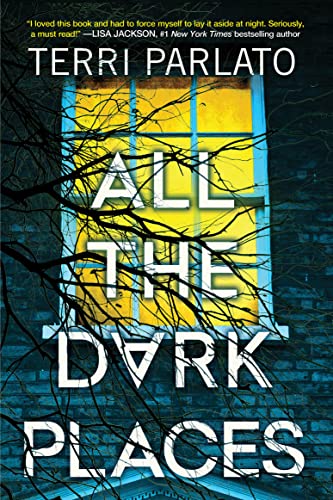
Snow falls softly outside Molly Bradley’s home on a frigid January night. Inside, half a dozen close friends are gathered to celebrate the fortieth birthday of Molly’s psychologist husband, Jay. Candlelight gleams against dark wood, wine flows, and the house rings with laughter. Everybody loves Jay, Molly most of all. Yet next morning, Molly discovers Jay dead on the floor of his office, his throat brutally slashed.After decades working with the Boston PD, Detective Rita Myers has grown accustomed to the banality of evil—the murders that make no sense beyond bad luck or a tragic brush with the worst of humanity. But Jay Bradley’s murder isn’t random, or a mere crime of opportunity. Rita is convinced that someone in the couple’s small circle killed him. Someone who was celebrating with them that night.
Devastated, Molly tries to make sense of her husband’s death. Jay was her rock, the only person who really understood the nightmare she lived through long ago. He knew the horrors she’s kept hidden even from her friends. But shocking revelations are making her question if Jay was all he seemed to be—and whether someone else knows her past too. And until Molly figures out who she can really trust, she won’t be able to stop herself becoming the next target. . . . [from the publisher]
Content warnings include child abduction, drugging, and murder; multiple murders of adults; harassment; infidelity; and rape (threatened or in the past?). There's a lot of naughty to go around, perpetrated by multiple characters.
Generally, the characters are unlikeable, with the exception of precocious Alice (10 or 11)—homeschooled daughter of a widowed bookstore owner dad and children's author mom—and the rescue dog Sadie—whom Molly adopts as an emotional support animal, outside of official channels (icky). Rita escapes the categorization of unlikeable, as well.
Because I found the pace painfully slow and most of the characters wildly unlikeable, I'm hesitant to rate the book higher than 3 stars. However, everything is connected and the story ends well, so I'll give it a bit of a bump. This is the author's debut. I might give another of her books a chance, in hopes that her skills will improve and that she might get better editing services as her career develops.
Thank you, NetGalley and RB Media, for the audio ARC of the book in exchange for an honest review. Publication is expected December 27.
30 November 2023
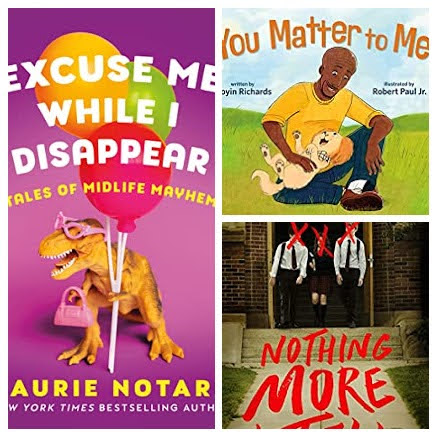
4-star reads
- Excuse Me While I Disappear: Tales of Midlife Mayhem, Laurie Notaro
- You Matter to Me, Doyin Richards & Robert Paul Jr. (Illustrator) (4.5)
- Nothing More to Tell, Karen M. McManus
honorable mention (3.5 or 3.66)
- Going Rogue: Rise and Shine Twenty-Nine, Janet Evanovich (3.5)
- Firekeeper's Daughter, Angeline Boulley (3.66)
- Let's Not Do That Again, Grant Ginder (3.5)
- Will My Cat Eat My Eyeballs?: Big Questions from Tiny Mortals About Death, Caitlin Doughty (3.5)
- I'm Wearing Tunics Now: On Growing Older, Better, and a Hell of a Lot Louder, Wendi Aarons (3.66)
30 November 2022
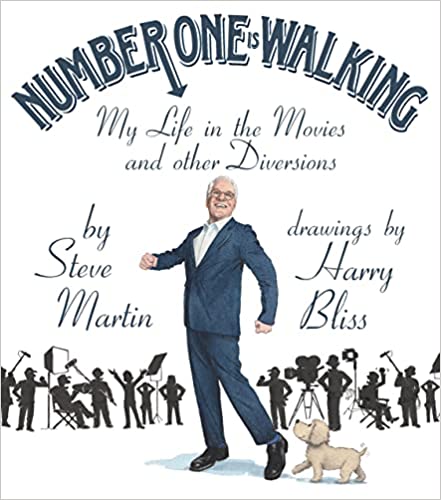
Steve Martin has never written about his career in the movies before. In Number One Is Walking, he shares anecdotes from the sets of his beloved films―Father of the Bride, Roxanne, The Jerk, Three Amigos, and many more―bringing readers directly into his world. He shares charming tales of antics, moments of inspiration, and exploits with the likes of Paul McCartney, Diane Keaton, Harrison Ford, and Chevy Chase. Martin details his forty years in the movie biz, as well as his stand-up comedy, banjo playing, writing, and cartooning, all with his unparalleled wit.With gorgeously illustrated cartoons and single-panel “diversions” in Steve and Harry’s signature style, Number One Is Walking is full of the everyday moments that make up a movie star’s life, capturing Steve Martin’s singular humor and acclaimed career in film. [from the publisher]
I have long admired Martin for both (some of) his fiction writing and (a great deal of) his acting work. My wish for a signed copy of Number One Is Walking this past holiday season was granted!
29 November 2022
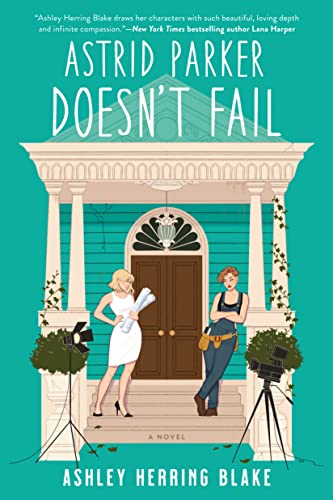
For Astrid Parker, failure is unacceptable. Ever since she broke up with her fiancé a year ago, she’s been focused on her career—her friends might say she’s obsessed, but she’s just driven. When Pru Everwood asks her to be the designer for the Everwood Inn’s renovation that will be broadcasted on a popular home improvement show, Innside America, Astrid knows this is the answer to everything that is wrong with her life. It’ll be the perfect distraction from her failed love life, and her perpetually displeased mother might finally give her nod of approval.However, Astrid never planned on Jordan Everwood, Pru’s granddaughter and lead carpenter for the inn’s renovation, who despises every modern design decision Astrid makes. Jordan is determined to preserve the history of her family’s inn, particularly as the rest of her life is in shambles. When that determination turns into a little light sabotage, ruffling Astrid’s perfect little feathers, the showrunners ask them to play up the tension. But somewhere along the way, their dislike for each other turns into something quite different, and Astrid must decide what success truly means. Is she going to pursue the life that she’s expected to lead, or the one she wants? [from the publisher]
28 November 2022
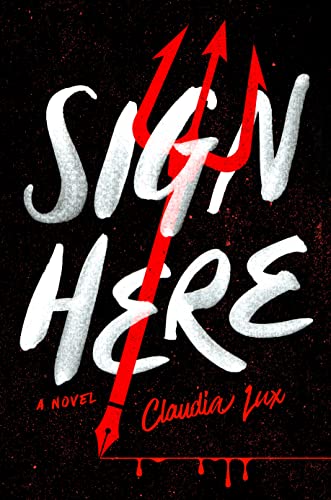
Peyote Trip has a pretty good gig in the deals department on the fifth floor of Hell. Sure, none of the pens work, the coffee machine has been out of order for a century, and the only drink on offer is Jägermeister, but Pey has a plan—and all he needs is one last member of the Harrison family to sell their soul.When the Harrisons retreat to the family lake house for the summer, with their daughter Mickey’s precocious new friend, Ruth, in tow, the opportunity Pey has waited a millennium for might finally be in his grasp. And with the help of his charismatic coworker Calamity, he sets a plan in motion.
But things aren’t always as they seem, on Earth or in Hell. And as old secrets and new dangers scrape away at the Harrisons’ shiny surface, revealing the darkness beneath, everyone must face the consequences of their choices. [from the publisher]
At around the 65% mark, Peyote suggests that someone is asking the wrong question. This may serve as an aha moment to some readers, but I hope not.
Content warnings include self-harm (cutting), infidelity, implied murder.
27 November 2022
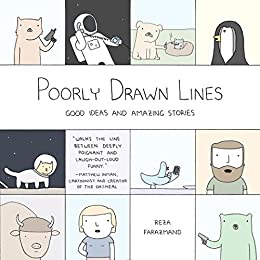
Life is weird. Embrace it.A bear flies through space. A hamster suffers a breakdown. Elsewhere, a garden snake is arrested by animal control and jailed for home invasion, while a child marvels at the wonder of nature as worms emerge from the ground and begin looking for vodka (as they always have). These are common occurrences in the world of Reza Farazmand’s wildly popular webcomic, Poorly Drawn Lines. Traveling from deep space to alternate realities to the bottom of the ocean, this eponymous collection brings together fan favorites with new comics and original essays to share Farazmand’s inimitable take on love, nature, social acceptance, and robots. [from the publisher]
26 November 2022
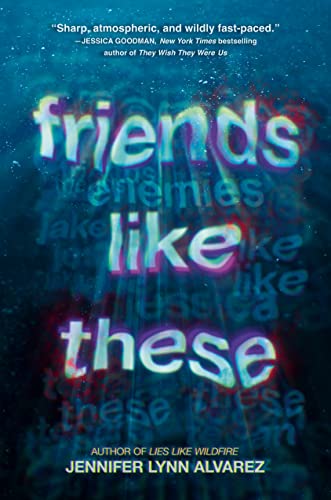
An end-of-summer party. A prank gone wrong. A body on the beach. Who's to blame?Tegan Sheffield's annual end-of-summer beach party is the only way to start their senior year. At least that's what Jake Healy tells his girlfriend Jessica Sanchez.
But when a video prank from the party goes viral and a body is discovered at the beach, Jake and Jessica find themselves at the centre of a national media storm and a police investigation.
It's a race to uncover the truth before the killer strikes again. [from the publisher]
Content warnings include drug-assisted sexual assault and violence.
25 November 2022
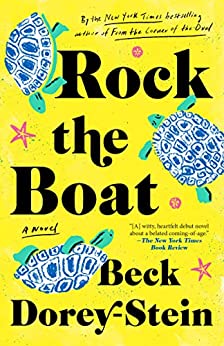
When Kate Campbell's life in Manhattan suddenly implodes, she is forced to return to Sea Point, the small town full of quirky locals, quaint bungalows, and beautiful beaches where she grew up. She knows she won't be home for long; she's got every intention (and a three-point plan) to win back everything she thinks she's lost.Meanwhile, Miles Hoffman—aka “The Prince of Sea Point”—has also returned home to prove to his mother that he's capable of taking over the family business, and he's promised to help his childhood best friend, Ziggy Miller, with his own financial struggles at the same time. Kate, Miles, and Ziggy converge in Sea Point as the town faces an identity crisis when a local developer tries to cash in on its potential. The summer swells, and white lies and long-buried secrets prove as corrosive as the salt air, threatening to forever erode not only the bonds between the three friends but also the landscape of the beachside community they call home. [from the publisher]
- soapy
- slow and boring
- Kate is immature for a 30-something
- “Smart women were always trouble. It's what made them so appealing, before it made them so exhausting.” [Golden Retrievers]
22 November 2022
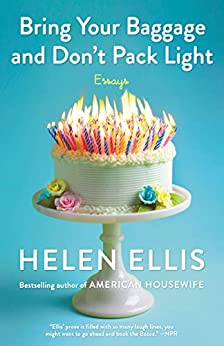
When Helen Ellis and her lifelong friends arrive for a reunion on the Redneck Riviera they unpack more than their suitcases: stories of husbands and kids, lost parents and lost jobs powdered onion dip and photographs you have to hold by the edges; dirty jokes and sunscreen with SPF higher than they hair-sprayed their bangs senior year, and a bad mammogram. It's a diagnosis that scares them, but could never break their bond. Because women pushing fifty won't be pushed around.In these twelve gloriously comic and moving essays, Helen Ellis dishes on married middle-age sex, sobs with a theater full of women as a psychic exorcises their sorrows, gets twenty shots of stomach bile to the neck to get rid of her double chin, and gathers up the courage to ask, Are you there, Menopause? It's Me, Helen.
A book that reads like the best cocktail party of your life, Bring Your Baggage and Don't Pack Light is chockablock with fabulous characters: cat-lady plastic surgeons and waterpark Adonises, bridge ladies and poker players; platinum medallion fliers and Garage Sale Swindlers; forty-year-old divorcées, fifty-year-old new moms and still-young octogenarians. Alive with the sensational humor and ferocious love for her friends that won Helen Ellis legions of fans, this book has a raw vulnerability and an emotional generosity that takes this acclaimed author to a whole new level of accomplishment. [from the publisher]
Here are a few amusing tidbits:
- In Grown-Ass Ladies Gone Mild, she explains that she doesn’t do cabins in the woods: “If someone wants to murder me, they are gonna have to get past reception.”
- A stranger explains Fireball shots this way: “What it is is dry-cleaning the next morning.” [Grown-Ass Ladies Gone Mild]
- “What can I say? Everything is better when it is brought to you.” [Are you there, menopause? It’s me, Helen.]
21 November 2022
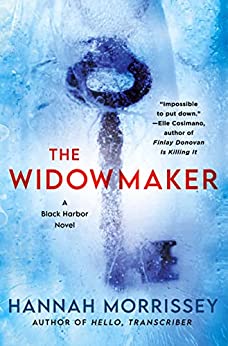
Ever since business mogul Clive Reynolds disappeared twenty years ago, the name “Reynolds” has become synonymous with “murder” and “mystery.” And now, lured by a cryptic note, down-on-her-luck photographer Morgan Mori returns home to Black Harbor and into the web of their family secrets and double lives. The same night she photographs the Reynolds holiday get-together, Morgan becomes witness to a homicide of a cop that triggers the discovery of a long-buried clue.This could finally be the evidence to crack open the chilling cold case, and Investigator Ryan Hudson has a chance to prove himself as lead detective. If only he could stop letting his need to solve his partner's recent murder distract him. But as Morgan exposes her own dark demons, could her sordid history be the key to unlocking more than one mystery? [from the publisher]
The book is annoyingly repetitive, including but not limited to mentions of the red ticket and the Bart Simpson doll.
The special project that rich matriarch Eleanor Reynolds gives Morgan makes sense, at least on the surface.
A minor—and largely unimpressive—reveal happens before 40%. A much more significant reveal—that most mystery buffs probably will realize considerably sooner—happens at around 60%.
The ending didn't redeem the story for me. I'm curious as to whether it will lead to another book with the same characters. [As far as I can tell, this is the second book written about events in the same town . . . perhaps with different main characters, though.]
Content warnings include abandonment; gratuitous sex (without affection, relationship, or particular caring); multiple murders (not a surprise, of course); and prostitution, sexual assault, and torture of a child.
Thank you, NetGalley and Macmillan Audio, for the audio ARC of the book in exchange for an honest review. Publication is expected December 6.
18 November 2022
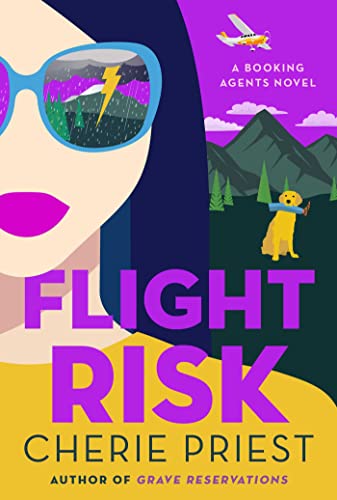
When psychic travel agent Leda Foley is approached by a man searching for his sister, she quickly agrees to help. The missing woman disappeared with a vintage orange car, a fat sack of her employer’s cash, and a grudge against her philandering husband—a man who never even reported her missing.Meanwhile, Seattle PD detective Grady Merritt has temporarily misplaced his dog. While he’s passing out bright pink “Lost” flyers at the Mount Rainier visitor’s center, the wayward pooch appears—with a human leg in his mouth.
Thanks to DNA matching, Grady learns that the leg has something to do with Leda’s new client, and soon the two cases are tangled.
Theories abound, but law enforcement is low on leads. Lucky for Grady, Leda has a few ideas that might just be crazy enough to work. They’ll need one yellow dog, a fair share of teamwork, and perhaps a bit of Klairvoyant Karaoke to piece the clues together in this “undeniable treat” (Gwenda Bond, New York Times bestselling author) of a mystery. [from the publisher]
17 November 2022

A late bloomer who came to her career later in life, humorist Wendi Aarons shares the joys, stumbles, and outfit mishaps she’s experienced on her road to no longer giving a f***. It's a journey from chunky heels and bad choices from the juniors department to the panache of a comfortable linen tunic (metaphorically, but also literally), enjoying her second act and unapologetically chasing her dreams. With relatable personal anecdotes, an irresistible comedic voice, and inspirational takeaways—you, too, can find self-acceptance and also age-appropriate fashion pajamas—I’m Wearing Tunics Now is a comic memoir with humor and heart. [from the publisher]
It's only now that I realize that I spent too many years biding my time, sitting in the back, not making waves. I acted like a good girl, a good mom, a good wife, and a good employee. Many women of my generation relate to this. Most of us grew up shrinking ourselves to fit in instead of making our environments grow to fit us. We didn't have Girl Power or STEM. We had high school typing class and “Can you pinch an inch?” We had the Swedish bikini team and “No fat chicks.” . . . Women my age are latecomers to the whole “I'm speaking” movement that's happening now—at least I am. [Introduction]
But in those places of male hierarchy, the deck was stacked against me the whole time, even as a white woman of privilege. For women of color and LGBTQIA+ people, the deck is stacked a million time higher. Add in pay gaps, maternal mortality, rapists that go unpunished, medical gaslighting, missing and murdered indigenous women, attacks on democracy, racist voting restrictions, just to name a few travesties, and the world looks like a pretty bleak place. It soon became difficult to not burn with rage 24/7. [Chapter 6]
GenX women are one of the most politically active demographic groups right now. Is this because women 40+ are just pissed off in general? Is it because by this time in our lives we're tired of decade after decade of taking everyone's shit? I'm sure that's part of it. But it's also because middle-aged women have realized that we can use the skills and influence and experiences we've spent our lives honing to leave a better world for younger generations. We know that things aren't supposed to be like this. [Chapter 6]
15 November 2022
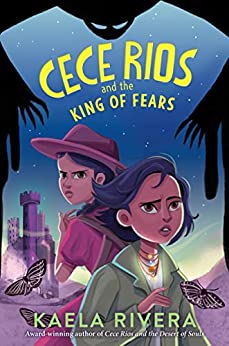
Cece Rios thought saving her sister would be the end of her adventures in the world of criaturas. But part of Juana’s soul is still trapped in Devil’s Alley. As Cece tries to find a way to get it back using her new curandera abilities, Juana takes her fate in her own hands and sets off alone, intent on restoring her soul and getting revenge on El Sombrerón.But then they discover that El Cucuy, king of the criaturas, is hunting for Cece, craving her powers for his own dark purposes. Can the Rios sisters—along with Coyote, Little Lion, and their other criatura allies—uncover his secrets and reclaim Juana’s soul? Or will the sinister forces of Devil’s Alley overcome them all? [from the publisher]
- sister love, friend love, self love
- chapters alternate between Cece's and Juana's storytelling
- quote spotlight: “You did not plant its seed, but you must prune the weed.” [a proverb in Chapter 15. Cece Rios and the Ocean's Grief]
- on the violent side (especially for middle grade)
I wasn't as impressed with—or entertained by—this second installment. I don't know that I'll be inspired enough to read on, should the series continue.
14 November 2022
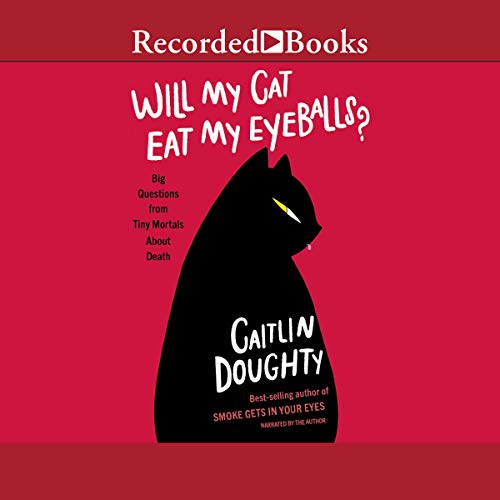
Everyone has questions about death. In Will My Cat Eat My Eyeballs?, best-selling author and mortician Caitlin Doughty answers the most intriguing questions she’s ever received about what happens to our bodies when we die. In a brisk, informative, and morbidly funny style, Doughty explores everything from ancient Egyptian death rituals and the science of skeletons to flesh-eating insects and the proper depth at which to bury your pet if you want Fluffy to become a mummy. Now featuring an interview with a clinical expert on discussing these issues with young people—the source of some of our most revealing questions about death—Will My Cat Eat My Eyeballs? confronts our common fear of dying with candid, honest, and hilarious facts about what awaits the body we leave behind. [from the publisher]
We can't make death fun, but we can make learning about death fun. Death is science and history, art and literature. It bridges every culture and unites the whole of humanity. [Before We Begin]
I found this book both interesting and disturbing. The author narrates the audio edition, and her delivery is highly entertaining—whether because or in spite of being overly melodramatic or snarky.
One of our very own librarians recommended this book to me. One thing is for sure: I'm never bored by Brian's suggestions!
13 November 2022
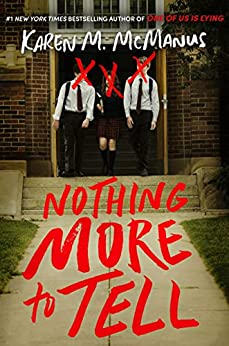
True crime can leave a false trail.Four years ago, Brynn left Saint Ambrose School following the shocking murder of her favorite teacher. The case was never solved, but she's sure that the three kids who found Mr. Larkin's body know more than they're telling, especially her ex-best friend Tripp Talbot. He's definitely hiding something.
When Brynn gets an internship working on a popular true-crime show, she decides to investigate what really happened that day in the woods. But the further she dives into the past, the more secrets she finds.
Four years ago someone got away with murder. Now it's time to uncover the truth. . . . [from the publisher]
11 November 2022
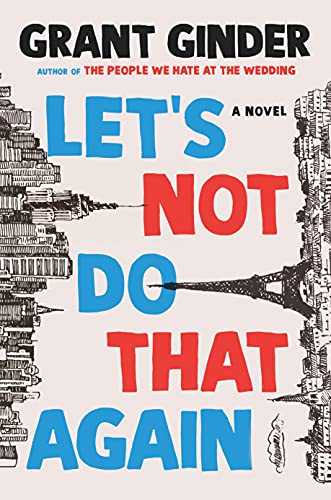
Nancy Harriman is running for Senate, and she’s going to win, God dammit. Not that that’s her slogan, although it should be. This is what she’s worked so hard for over the years after her husband’s untimely death (which was definitely not her fault) and inheriting his seat in the House of Representatives. She’s said all the right things. Passed all the right legislation. Chapped her lips kissing babies. There’s just one problem: her grown children.Greta and Nick Harriman are adrift. Nick, recently heartbroken, is floundering in his attempts to write a musical about the life of Joan Didion (called Hello to All That). And then there’s his little sister Greta. Smart, pretty, and completely unmotivated by anything, allowing her life to pass her by like the shoppers at the Apple store where she works.
But then one morning the world wakes up not to Nancy making headlines, but Greta. She’s in Paris. With extremist protestors. Throwing a bottle of champagne through a beloved bistro’s front window. In order to save her campaign, not to mention her daughter, Nancy and Nick must find Greta before it’s too late.
Smart and poignant, funny and tear-jerking, Let’s Not Do That Again proves that like democracy, family is a messy and fragile thing that means more than any mother, or senator, could ever dream. [from the publisher]
- one of those odd cases in which I didn't really like any of the characters, but I still enjoyed the book
- family drama and politics
- favorite quote: “The more often a person tells himself a story, the farther it gets from the truth.” [Act 5]
10 November 2022
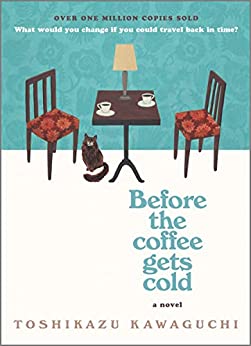
In a small back alley in Tokyo, there is a café which has been serving carefully brewed coffee for more than one hundred years. But this coffee shop offers its customers a unique experience: the chance to travel back in time.In Before the Coffee Gets Cold, we meet four visitors, each of whom is hoping to make use of the café’s time-travelling offer, in order to: confront the man who left them, receive a letter from their husband whose memory has been taken by early onset Alzheimer's, to see their sister one last time, and to meet the daughter they never got the chance to know.
But the journey into the past does not come without risks: customers must sit in a particular seat, they cannot leave the café, and finally, they must return to the present before the coffee gets cold. . . .
Toshikazu Kawaguchi’s beautiful, moving story explores the age-old question: what would you change if you could travel back in time? More importantly, who would you want to meet, maybe for one last time? [from the publisher]
7 November 2022
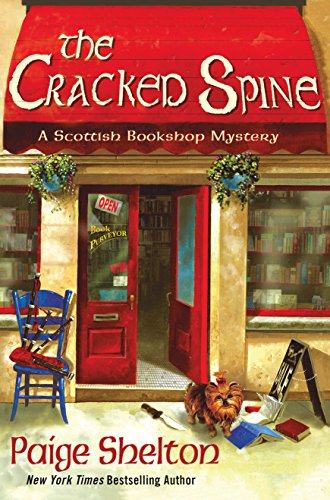
In need of a good adventure, Delaney Nichols takes the leap and moves to Edinburgh, Scotland to start a job at The Cracked Spine. She doesn't know much about what she's gotten herself into, other than that the work sounds exciting, and that her new boss, Edwin MacAlister, has given her the opportunity of a lifetime. Edwin has promised that she'll be working with “a desk that has seen the likes of kings and queens, paupers and princes,” and Delaney can't wait to get started.When she arrives, she meets her new Scottish family; also working at the Cracked Spine are Rosie, perpetually wrapped in scarves, and who always has tiny dog Hector in tow; Hamlet, a nineteen-year-old thespian with a colored past and bright future; and Edwin, who is just as enigmatic and mysterious as Delaney expected. An unexpected bonus is Tom the bartender from across the street, with his piercing eyes, and a rolling brogue—and it doesn't hurt that he looks awfully good in a kilt.
But before she can settle into her new life, a precious artifact—a previously undiscovered First Folio of Shakespeare's plays—goes missing, and Edwin's sister is murdered, seemingly in connection to the missing folio. Delaney decides to do some sleuthing of her own, to find out just what the real story is behind the priceless folio, and how it's connected to the tragic death, all without getting harmed herself. [from the publisher]
6 November 2022
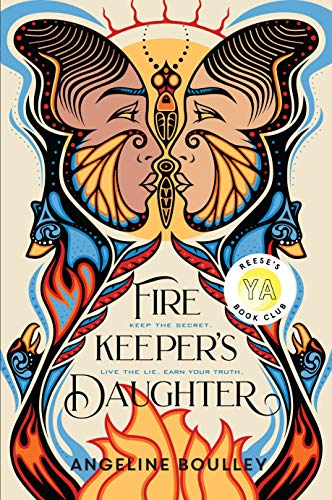
As a biracial, unenrolled tribal member and the product of a scandal, Daunis Fontaine has never quite fit in—both in her hometown and on the nearby Ojibwe reservation. When her family is struck by tragedy, Daunis puts her dreams on hold to care for her fragile mother. The only bright spot is meeting Jamie, the charming new recruit on her brother’s hockey team.After Daunis witnesses a shocking murder that thrusts her into a criminal investigation, she agrees to go undercover. But the deceptions—and deaths—keep piling up and soon the threat strikes too close to home. How far will she go to protect her community if it means tearing apart the only world she’s ever known? [from the publisher]
I bookmarked more than a handful of compelling quotes, including this:
Then Granny rants that it doesn't matter who gets elected because they end up serving themselves better than any of the members. “Now, when I die, you . . . promise to get tribal council to be pallbearers at my funeral,” she pauses for dramatic effect, “so they can let me down one last time.” [Part 1, Chapter 2]
Content warnings include abandonment, rape, drug abuse, and murder.
4 November 2022
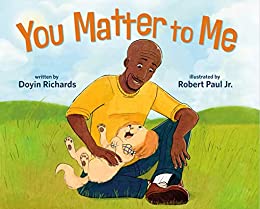
Biscuit the dog is adopted from the shelter and loves his new home and his new human family. The dad, especially, takes good care of Biscuit and is the person who walks him the most.But Biscuit soon realizes that not everyone shares his feelings about his human. His human is Black, and some people in the neighborhood are scared by that. Some people hold their purses closer, or tighten their grip on their children’s hands.
With honest, age-appropriate storytelling, Doyin Richards starts a conversation about racism that is more important than ever. Here is a book that should be in every home, school, and library as a reminder that everyone matters. [from the publisher]
Doyin (pronounced “doe-ween”) Richards is a dynamic keynote speaker, best-selling author, anti-racism facilitator, TEDx speaker, Slate Columnist, mental health advocate, and lover of cheesy pasta. [from the author's website]
The audio edition is beautifully and enthusiastically narrated by the author. This is usually a red flag for me (unless the author is also an actor or frequent public speaker), so I was both pleasantly surprised and curious to learn more about the author. Additional sound effects in the audio edition were sometimes overbearing and distracting.
The story is told from the dog's point of view, starting with their meeting in the shelter. Having the dog narrate is an effective and nonthreatening way to introduce the issue of other humans' reactions (like fear and distrust) to the dog's human and offer suggestions about how other humans should treat the dog's human (e.g. by talking to and getting to know him).
I loved the description of the human/dog relationship. The mutual love, trust, and respect are palpable. I think anyone who has welcomed a pet into their life will relate, no matter what kind of animal.
I've already submitted a hold request at our library for the print edition. I can't wait to read it again (for at least the fourth time), this time with the illustrations.
Thank you, NetGalley and Macmillan Audio/Macmillan Young Listeners, for the audio ARC of the book in exchange for an honest review. Publication is expected November 8.
3 November 2022
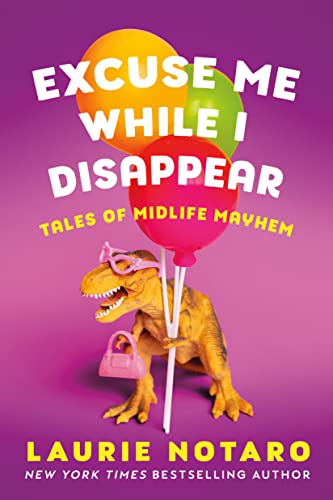
Laurie Notaro has proved everyone wrong: she didn’t end up in rehab, prison, or cremated at a tender age. She just went gray. At past fifty, every hair’s root is a symbol of knowledge (she knows how to use a landline), experience (she rode in a car with no seat belts), and superpowers (a gray-haired lady can get away with anything).Though navigating midlife is initially upsetting—the cracking noises coming from her new old body, receiving regular junk mail from mortuaries—Laurie accepts it. And then some. With unintentional abandon, she shoplifts a bag of russet potatoes. Heckles a rude driver from her beat-up Prius. And engages in epic trolling on Nextdoor.com. That, says Laurie, is the brilliance of growing older. With each passing day, you lose an equivalent amount of fear. [from the publisher]
2 November 2022
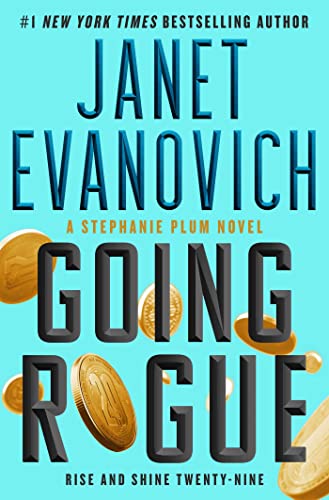
Monday mornings aren’t supposed to be fun, but they should be predictable. However, on this particular Monday, Stephanie Plum knows that something is amiss when she turns up for work at Vinnie’s Bail Bonds to find that longtime office manager Connie Rosolli, who is as reliable as the tides in Atlantic City, hasn’t shown up.Stephanie’s worst fears are confirmed when she gets a call from Connie’s abductor. He says he will only release her in exchange for a mysterious coin that a recently murdered man left as collateral for his bail. Unfortunately, this coin, which should be in the office—just like Connie—is nowhere to be found.
The quest to discover the coin, learn its value, and save Connie will require the help of Stephanie’s Grandma Mazur, her best pal Lula, her boyfriend Morelli, and hunky security expert Ranger. As they get closer to unraveling the reasons behind Connie’s kidnapping, Connie’s captor grows more threatening and soon Stephanie has no choice but to throw caution to the wind, follow her instincts, and go rogue. [from the publisher]
1 November 2022

Alice Comstock has always been a dutiful wife and an attentive mother, a perfectionist presiding over a flawless home. She’s reliably been her family’s center, the caretaker and problem-solver, until an illness requires her children to assume responsibility for their mother. For Adam, Alice’s youngest, a return home to California sparks a memory of his younger self. Alternating between the present and flashbacks to Adam’s college years, There Are Flowers in Ohio explores how the paths not taken shape all of our lives. [from the publisher]
1 November 2022
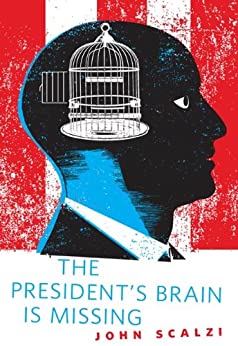
The question is, how can you tell the President's brain is missing? And are we sure we need it back? [from the publisher]
31 October 2022
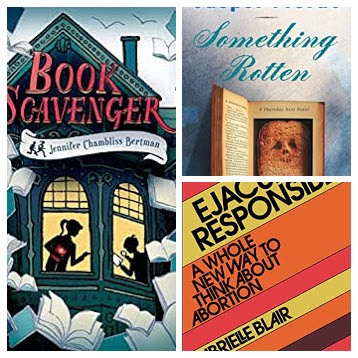
4-star reads
- Book Scavenger, Jennifer Chambliss Bertman
- Ejaculate Responsibly: a Whole New Way to Think About Abortion, Gabrielle Stanley Blair (4.5)
- Something Rotten (Thursday Next #4), Jasper Fforde (4.66)
honorable mention (3.5 or 3.66)
- The Vicious Circle, Katherine St. John (3.5)
- The Messy Lives of Book People, Phaedra Patrick (3.5)
- Jasmine Zumideh Needs a Win, Susan Azim Boyer (3.5)
- The Headspace Guide to Meditation & Mindfulness, Andy Puddicombe (3.66)
- A Wolf at the Schoolhouse Door: The Dismantling of Public Education and the Future of School, Jack Schneider & Jennifer Berkshire (3.5)
- A Most Efficient Murder, Anthony Slayton (3.66)
- Bad Vibes Only: (and Other Things I Bring to the Table), Nora McInerny (3.5)
31 October 2022
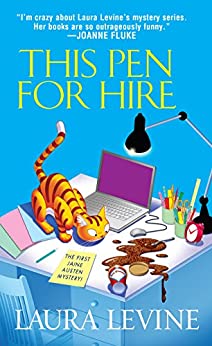
Smarmy personals ads. Daring declarations of love. Writer-for-hire Jaine Austen has penned them all. But when one of the love connections she made is broken up by murder, Jaine finds herself freelancing free-of-charge—and uncovering more than she bargained for. . . .No one seems to need her help more than geeky, gawky Howard Murdoch. His request is simple enough: a letter proclaiming his undying love for Stacy Lawrence, a gorgeous aerobics instructor. The fact that he's never actually met the woman gives Jaine pause—but she soon overcomes her misgivings, warms up her computer, and starts pitching woo on Howard's behalf.
To Jaine's surprise, the letter is a success—the unlikely Romeo lands a date! But his triumph is, sadly, short-lived. On Valentine's Day, Howard finds Stacy bludgeoned to death with a Thigh Master—and is quickly named the prime suspect.
Upon hearing the news, Jaine is shocked. Sure, Howard's awkward, eccentric, and a tiny bit odd. But a murderer? That's hard to believe. Especially after a little sleuthing turns up a whole bunch of people who harbored less-than-loving feelings towards the svelte Stacy.
But Jaine had better wrangle her clues quickly, before a crafty killer catches on--and puts a whole new spin on her ghost writing career. . . . [from the publisher]
It's pretty cringe-worthy (from the outset, and still at 65% in). I can't put my finger on exactly why. Does the narration share some of the blame? Jaine's negative body image and self-talk don't help. Neither does the portrayal of one of her senior students, with whom Jaine has a particularly gross and inappropriate interchange.
30 October 2022
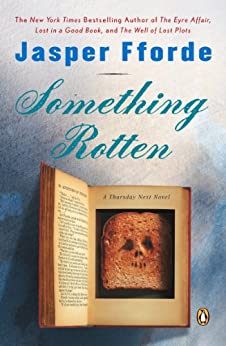
Detective Thursday Next has had her fill of her responsibilities as the Bellman in Jurisfiction. Packing up her son, Friday, Thursday returns to Swindon accompanied by none other than the dithering Danish prince Hamlet. But returning to SpecOps is no snap—as outlaw fictioneer Yorrick Kaine plots for absolute power, the return of Swindon's patron saint foretells doom, and if that isn't bad enough, back in the Book World The Merry Wives of Windsor is becoming entangled with Hamlet. Can Thursday find a Shakespeare clone to stop this hostile takeover? Can she vanquish Kaine and prevent the world from plunging into war? And, most important, will she ever find reliable childcare? [from the publisher]
29 October 2022
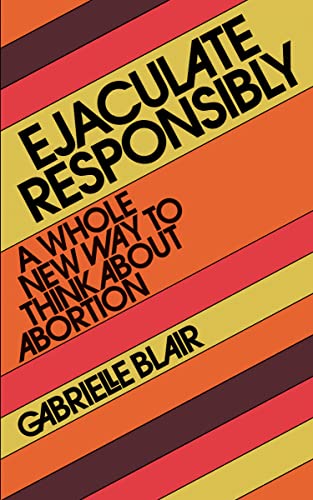
In Ejaculate Responsibly, Gabrielle Blair expands on her viral Twitter thread and offers a provocative reframing of the abortion issue. In a series of 25 brief arguments, she deftly makes the case for moving the abortion debate away from controlling and legislating women’s bodies and instead directs the focus on men’s lack of accountability in preventing unwanted pregnancies.Highly readable, accessible, funny, and unflinching, Blair builds her argument by walking readers through the basics of fertility (men are 50 times more fertile than woman), the unfair burden placed on women when it comes to preventing pregnancy (90% of the birth control market is for women), the wrongheaded stigmas around birth control for men (condoms make sex less pleasurable, vasectomies are scary and emasculating), and the counterintuitive reality that men, who are fertile 100% of the time, take little to no responsibility for preventing pregnancy. [from the publisher]
28 October 2022
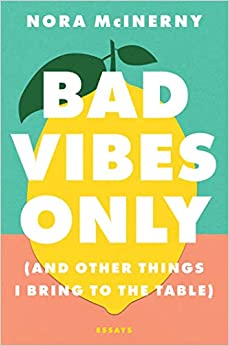
Nora McInerny does not dance like no one is watching. In fact, she dances like everyone is watching, which is to say, she does not dance at all. A bestselling author and host of the beloved podcast Terrible, Thanks for Asking, she has captured the hearts of millions with her disarming and earnest approach to discussing grief and loss. Now, with Bad Vibes Only, she turns her eye on our aggressively, oppressively optimistic culture, our obsession with self-improvement, and what it really means to live authentically in the online age.In essays that revisit her cringey past and anticipate her rapidly approaching, early middle-aged future, McInerny lays bare her own chaos, inviting us to drop the façade of perfection and embrace the truth: that we are all—at best—slightly unhinged. Socrates claimed that the unexamined life is not worth living. Bad Vibes Only is for people who have taken that dictum a bit too far—the overthinkers, the analyzers, the recovering Girl Bosses, and the burned-out personal brand—reminding us that a life worth living is about more than just “good vibes.” [from the publisher]
- she's brutally honest, and not gentle with herself
- especially liked the section about her time with her uncle
- sometimes funny (usually darkly)
I don't know when I learned that “Fine” was the correct answer to “How are you?,” but nobody ever had to explicitly tell me that “Well, I'm teetering on the edge of a nervous breakdown” is definitely not the answer you're colleague is looking for while you pass each other in the hallways before your many overlapping meetings. [Before We Begin]
28 October 2022
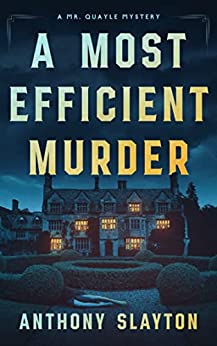
When a party thrown by the reclusive Lord Unsworth is marred by murder, his loyal secretary, Mr. Quayle, must unravel a web of red-herrings and old family secrets in this English country house mystery.“I do not wish to disturb you, your grace, but there is a body in the garden. . . .”
England, 1925. When a strange young woman is found murdered on the grounds of Unsworth Castle, the duke and his family are astounded at first, but quickly become enraged when the police begin asking all sorts of impertinent questions.
And when suspicions dare to fall on one of their own, it is up to Mr. Quayle, Lord Unsworth's exceedingly efficient secretary, to find the true culprit and save the House of Unsworth from scandal and ruin. [from the publisher]
The story opens on the night that Unsworth is hosting a grand birthday party for his favorite niece, Fanny. The close relationship between uncle and niece is a source of consternation for other members of the family who feel that they should be granted certain title and property instead of Fanny. In addition to the family and Mr. Quayle, several friends and household/grounds staff are potential suspects.
There is a fair bit of humor in the book. Too, Quayle is more personable and diplomatic than his counterparts in mysteries along the same vein (for instance, Agatha Christie's Poirot). This makes for a more charming and generally delightful read for a murder mystery, however strange those descriptors may be for the genre. There is a second installment planned for publication in 2023. I'm looking forward to it!
Thank you, Netgalley, Ink and Dagger Press, and BooksGoSocial Audio, for allowing me to read the audio ARC of the book in the grace period between publication (September 15) and NetGalley archive in exchange for an honest review.
26 October 2022
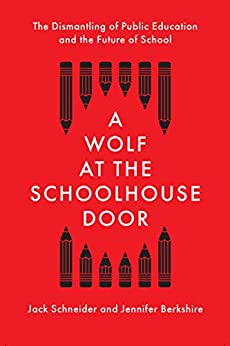
Betsy DeVos may be the most prominent face of the push to dismantle public education, but she is in fact part of a large movement that’s been steadily gaining power and notching progress for decades—amassing funds, honing their messaging, and crafting policies. While support for public education today is stronger than ever, the movement to save our schools remains fragmented, variable, and voluntary. Meanwhile, those set on destroying this beloved institution are unified, patient, and well-resourced.In A Wolf at the Schoolhouse Door, Jennifer Berkshire and Jack Schneider, co-hosts of the popular education podcast Have You Heard, lay out the increasingly potent network of conservative elected officials, advocacy groups, funders, and think tanks that have aligned behind a radical vision to unmake public education. They describe the dogma underpinning the work of the dismantlers and how it fits into the current political context, giving readers an up-close look at the policies—school vouchers, the war on teachers’ unions, tax credit scholarships, virtual schools, and more—driving the movement’s agenda. Finally they look forward, surveying the world the dismantlers threaten to build.
As teachers from coast to coast mobilize with renewed vigor, this smart, essential book sounds an alarm, one that should incite a public reckoning on behalf of the millions of families served by the American educational system—and many more who stand to suffer from its unmaking. [from the publisher]
The authors present—based on historical and scientific research—the dangers of the assault on our public education system (overwhelmingly, but not exclusively, coming from conservatives). There's a lot to process here, including funding (and how often it is wildly inequitable); workarounds allowing use of public funds for private—often religious—schools; charter and virtual schools; and more. The general populace still overwhelmingly wants—and expects—excellent and inclusive public education. That is, generally, we see it as a public good. It's good for the health and strength of our country to have a well-educated and healthy populace. If we want it, we must act by raising our voices via our votes and by regular communication with our elected officials on the subject.
I didn't know about this book until my friend volunteered to moderate our discussion. I can't say that I enjoyed the book—it was infuriating and frightening. I am glad to have read and discussed it with others.
25 October 2022
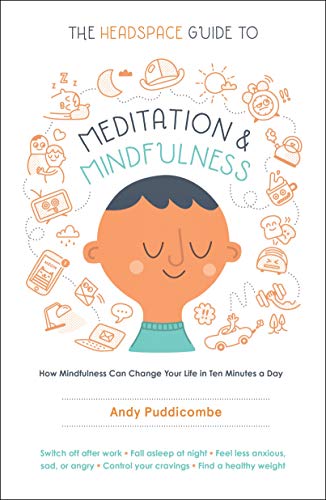
Quiet the mind, feel less stressed and less tired, and achieve a new level of calm and fulfillment in just ten minutes a day.Andy Puddicombe, a former Buddhist monk, the Voice of Headspace, and the UK's foremost mindfulness expert, is on a mission: to get people to take 10 minutes out of their day to sit in the here and now.
Like his readers and students, Andy began his own meditation practice as a normal, busy person with everyday concerns, and he has since designed a program of mindfulness and guided meditation that fits neatly into a jam-packed daily routine—proving that just 10 minutes a day can make a world of difference.
Accessible and portable, The Headspace Guide to Meditation and Mindfulness offers simple but powerful meditation techniques that positively impact every area of physical and mental health: from productivity and focus, to stress and anxiety relief, sleep, weight-loss, personal relationships . . . the benefits are limitless. The result? More headspace, less stress. Andy brings this ancient practice into the modern world, tailor made for the most time starved among us.
[from the publisher]
I read with both ears and eyes. I've never been a successful meditator, but I truly enjoyed the sleep meditations. Puddicombe says the point is not to fall asleep . . . oops!
I especially liked the discussion of the difference between “responding skillfully” to situations and “reacting impulsively.”
The book is short. The author is personable.
24 October 2022
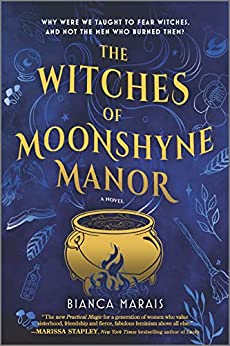
Five octogenarian witches gather as an angry mob threatens to demolish Moonshyne Manor. All eyes turn to the witch in charge, Queenie, who confesses they’ve fallen far behind on their mortgage payments. Still, there’s hope, since the imminent return of Ruby—one of the sisterhood who’s been gone for thirty-three years—will surely be their salvation.But the mob is only the start of their troubles. One man is hellbent on avenging his family for the theft of a legacy he claims was rightfully his. In an act of desperation, Queenie makes a bargain with an evil far more powerful than anything they’ve ever faced. Then things take a turn for the worse when Ruby’s homecoming reveals a seemingly insurmountable obstacle instead of the solution to all their problems.
The witches are determined to save their home and themselves, but their aging powers are no match for increasingly malicious threats. Thankfully, they get a bit of help from Persephone, a feisty TikToker eager to smash the patriarchy. As the deadline to save the manor approaches, fractures among the sisterhood are revealed, and long-held secrets are exposed, culminating in a fiery confrontation with their enemies. [from the publisher]
This one has irreverent old witches, an inventive and creative teen girl, and some horrible men. Down with the patriarchy!
22 October 2022
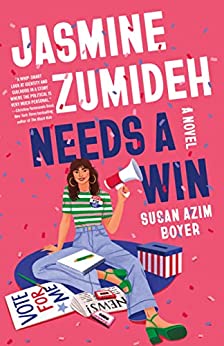
A fresh spin on the cult-classic Election meets Darius the Great Is Not Okay in Jasmine Zumideh Needs a Win when an international incident crashes into a high school election, and Jasmine is caught between doing the right thing and chasing her dream.It’s 1979, and Jasmine Zumideh is ready to get the heck out of her stale, Southern California suburb and into her dream school, NYU, where she’ll major in journalism and cover New York City’s exploding music scene.
There’s just one teeny problem: Due to a deadline snafu, she maaaaaaybe said she was Senior Class President-Elect on her application—before the election takes place. But honestly, she’s running against Gerald Thomas, a rigid rule-follower whose platform includes reinstating a dress code—there’s no way she can lose. And she better not, or she’ll never get into NYU.
But then, a real-life international incident turns the election upside down. Iran suddenly dominates the nightly news, and her opponent seizes the opportunity to stir up anti-Iranian hysteria at school and turn the electorate against her. Her brother, Ali, is no help. He’s become an outspoken advocate for Iran just as she’s trying to downplay her heritage.
Now, as the white lie she told snowballs into an avalanche, Jasmine is stuck between claiming her heritage or hiding it, standing by her outspoken brother or turning her back on him, winning the election or abandoning her dreams for good.
Told with biting insight and fierce humor, Susan Azim Boyer's Jasmine Zumideh Needs a Win is a fresh, unforgettable story of one Iranian-American young woman’s experience navigating her identity, friendship, family, her future, and a budding romance, all set against life-changing historical events with present-day relevance. [from the publisher]
In this YA historical fiction debut, Jasmine Zumideh (sounds like “ZoomyDAY”) is an American teenager of Iranian heritage who is running to be senior class president at her California high school. She finds herself conflicted between winning her campaign (to support her college application) and defending her family; and subjected to hate from her classmates, largely born from ignorance, intolerance, and misinformation (long before the age of wanton and rampant misinformation-peddling via social media, Fox News, and even misguided and dangerous “equal time” given by mainstream television and written news in lieu of straight reporting).
In addition to the fraught political situation, there's the usual YA drama of friends and romantic relationships, sports, and partying, along with fashion and culture (latchkey kids, Gilligan's Island, Burt Reynolds, satin bomber jackets, Tab, and Spencer's gift stores) and lots of music (The Pretenders, Elvis Costello, Cheap Trick, Pink Floyd, and The Who, among others).
Possibly my favorite character is Jasmine's Auntie Minah (her father's sister), who cares for Jasmine and her brother after their parents' divorce, while their white American mom is trying to get back on her feet (living away from the kids, with her own mother) and their Iranian immigrant dad is away on business. [The author has the same parentage.] While Jasmine and Ali are both teenagers, Auntie Minah cooks and cleans, teaches and cares for them. There are also some brief scenes in which Jasmine's Iranian grandmother (living in Iran) is present via phone or discussed.
Thank you, Netgalley, Macmillan Audio, and Wednesday Books, for the audio ARC of the book in exchange for an honest review. Publication is expected November 1.
21 October 2022
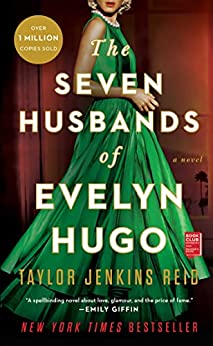
Aging and reclusive Hollywood movie icon Evelyn Hugo is finally ready to tell the truth about her glamorous and scandalous life. But when she chooses unknown magazine reporter Monique Grant for the job, no one is more astounded than Monique herself. Why her? Why now?Monique is not exactly on top of the world. Her husband has left her, and her professional life is going nowhere. Regardless of why Evelyn has selected her to write her biography, Monique is determined to use this opportunity to jumpstart her career.
Summoned to Evelyn’s luxurious apartment, Monique listens in fascination as the actress tells her story. From making her way to Los Angeles in the 1950s to her decision to leave show business in the ‘80s, and, of course, the seven husbands along the way, Evelyn unspools a tale of ruthless ambition, unexpected friendship, and a great forbidden love. Monique begins to feel a very real connection to the legendary star, but as Evelyn’s story near its conclusion, it becomes clear that her life intersects with Monique’s own in tragic and irreversible ways. [from the publisher]
- slight twist at the end
- good for celebrity watchers
- gossipy
- talks quite a bit about how poorly LGBTQ folks have been treated historically—how their human rights have been consistently denied
- probably longer than it needed to be
20 October 2022

Everything casts a shadow. Even the world we live in. And as with every shadow, there is a place where it must touch. A seam, where the shadow meets its source.Olivia Prior has grown up in Merilance School for girls, and all she has of her past is her mother’s journal—which seems to unravel into madness. Then, a letter invites Olivia to come home—to Gallant. Yet when Olivia arrives, no one is expecting her. But Olivia is not about to leave the first place that feels like home, it doesn’t matter if her cousin Matthew is hostile or if she sees half-formed ghouls haunting the hallways.
Olivia knows that Gallant is hiding secrets, and she is determined to uncover them. When she crosses a ruined wall at just the right moment, Olivia finds herself in a place that is Gallant—but not. The manor is crumbling, the ghouls are solid, and a mysterious figure rules over all. Now Olivia sees what has unraveled generations of her family, and where her father may have come from.
Olivia has always wanted to belong somewhere, but will she take her place as a Prior, protecting our world against the Master of the House? Or will she take her place beside him? [from the publisher]
I had no bookmarks available. I can't remember if that was because I didn't find any passages notable or if this was due to Libby failure—either could be the case. [Libby has been making/having problems with bookmarks, reading progress, and syncing between devices on-and-off since August. Their tech support hasn't been successful in discovering the true problem.] When I went to make notes 17 days later, I needed to read the publisher's description in order to remember which book this was—not a good sign. That is, I didn't find it riveting enough to be instantly memorable.
This is only the second of Schwab's books I've read, the first being her wildly popular The Invisible Life of Addie LaRue. While judging on just two books may not be fair or adequate, she doesn't seem to reach me the same way she reaches many.
19 October 2022
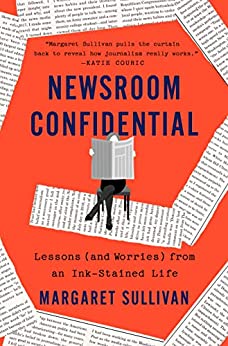
Sullivan began her career at the Buffalo News, where she rose from summer intern to editor in chief. In Newsroom Confidential she chronicles her years in the trenches battling sexism and throwing elbows in a highly competitive newsroom. In 2012, Sullivan was appointed the public editor of The New York Times, the first woman to hold that important role. She was in the unique position of acting on behalf of readers to weigh the actions and reporting of the paper's staff, parsing potential lapses in judgment, unethical practices, and thorny journalistic issues. Sullivan recounts how she navigated the paper’s controversies, from Hillary Clinton's emails to Elon Musk's accusations of unfairness to the need for greater diversity in the newsroom. In 2016, having served the longest tenure of any public editor, Sullivan left for the Washington Post, where she had a front-row seat to the rise of Donald Trump in American media and politics.With her celebrated mixture of charm, sharp-eyed observation, and nuanced criticism, Sullivan takes us behind the scenes of the nation's most influential news outlets to explore how Americans lost trust in the news and what it will take to regain it. [from the publisher]
In Chapter 13, Sullivan suggests that instead of asking who are the winners and losers in the political arena, “Start asking who is serving the democracy and who is undermining it.”
17 October 2022
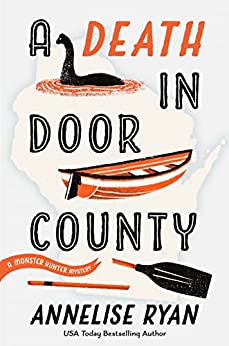
Morgan Carter, owner of the Odds and Ends bookstore in Door County, Wisconsin, has a hobby. When she's not tending the store, she's hunting cryptids—creatures whose existence is rumored, but never proven to be real. It's a hobby that cost her parents their lives, but one she'll never give up on.So when a number of bodies turn up on the shores of Lake Michigan with injuries that look like bites from a giant unknown animal, police chief Jon Flanders turns to Morgan for help. A skeptic at heart, Morgan can't turn down the opportunity to find proof of an entity whose existence she can't definitively rule out. She and her beloved rescue dog, Newt, journey to the Death's Door strait to hunt for a homicidal monster in the lake—but if they're not careful, they just might be its next victims. [from the publisher]
Pros: set in the Midwest (Wisconsin); main character owns a bookstore; a loyal dog sometimes steals the show; bookstore staff have mad skills and are allowed to use them
16 October 2022
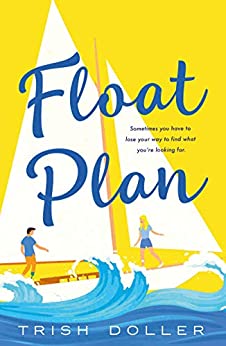
Since the loss of her fiancé, Anna has been shipwrecked by grief—until a reminder goes off about a trip they were supposed to take together. Impulsively, Anna goes to sea in their sailboat, intending to complete the voyage alone.But after a treacherous night’s sail, she realizes she can’t do it by herself and hires Keane, a professional sailor, to help. Much like Anna, Keane is struggling with a very different future than the one he had planned. As romance rises with the tide, they discover that it’s never too late to chart a new course.
. . . starting over doesn't mean letting go of your past, it means making room for your future. [from the publisher]
16 October 2022
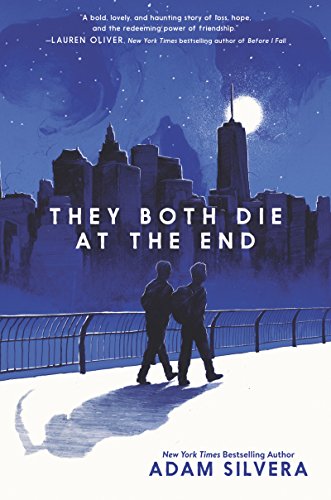
On September 5, a little after midnight, Death-Cast calls Mateo Torrez and Rufus Emeterio to give them some bad news: They’re going to die today.Mateo and Rufus are total strangers, but, for different reasons, they’re both looking to make a new friend on their End Day. The good news: There’s an app for that. It’s called the Last Friend, and through it, Rufus and Mateo are about to meet up for one last great adventure—to live a lifetime in a single day. [from the publisher]
We started our travel day gosh-awful-early—sometimes that's the price one pays. Straight from the airport, we headed to Terry Black's BBQ (my favorite from our BBQ survey in 2018, and still my favorite after trying a couple more BBQ joints this visit) for a late lunch. After we were satiated, we headed to Book People, where we dumped tourist dollars in 2018, via mail since, and again in 2022. Imagine my delight to see Adam Silvera's name on the marquee for an author chat and signing for his new book, The First to Die at the End, which is the prequel to They Both Die at the End. Good timing! Well, yes and no. The signing was that very evening, when we were scheduled for our first dinner with the kids. So, I bought a signed (but not inscribed) first edition of the Silvera prequel/latest release, as well as a signed Neil deGrasse Tyson book—Starry Messenger: Cosmic Perspectives on Civilization, and had a wonderful evening with my loved ones. Anyway, that experience bumped the older book to the top of my TBR (after a couple that were already on my loan shelf), and here we are, on to the review. . . .
I wish I could say I liked this more. I liked Mateo fairly well, especially in his caring for his dad—who is in a coma in the hospital—and his best friend (an unwed teen mom) and her young daughter. I totally didn't relate to Rufus. I get that he's experienced trauma, but his violence just didn't work for me. I liked Rufus better once he and Mateo connected, but that's a relative thing.
The audiobook is well-narrated by Michael Crouch, Robbie Daymond, and Bahni Turpin. Crouch and Turpin are two of my favorite narrators; Daymond is new to me.
My previous exposure to Silvera's work was in cooperation with Becky Albertalli. Even though I didn't love They Both Die at the End, I'm still looking forward to reading the prequel, which will always be a lovely reminder of our second trip to Austin. Travel is always better when bookstores are involved!
14 October 2022
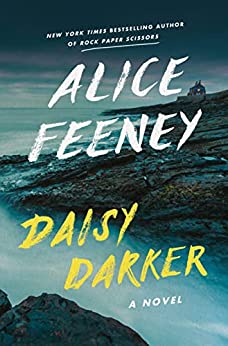
Daisy Darker was born with a broken heart. Now after years of avoiding each other, Daisy Darker’s entire family is assembling for Nana’s 80th birthday party in her crumbling gothic house on a tiny tidal island. The family arrives, each of them harboring secrets. When the tide comes in, they will be cut off from the rest of the world for eight hours.But at the stroke of midnight, as a storm rages, Nana is found dead. And an hour later, the next family member follows. . . .
Trapped on an island where someone is killing them one by one, the Darkers must reckon with their present mystery as well as their past secrets, before the tide goes out and all is revealed. [from the publisher]
Main character Daisy is the youngest of three flower-named daughters of Frank and Nancy, preceded by Rose and Lily. The story is revealed through Daisy's memories (as if we are in her head), various family members' discussions during the party, and several family movies on VHS tapes that are strategically left by the killer to watch at particular times during the night. There's quite the discussion at the end of Chapter 5 about ways to do away with someone without getting caught. Each family member has a different favorite.
I predicted several major things—including the killer's identity—but was surprised by one twist. Still, it's plenty creepy—definitely a good read for October.
Notable quote: “My dear, I’d rather be dead than normal.” —Nana in Chapter 3
12 October 2022
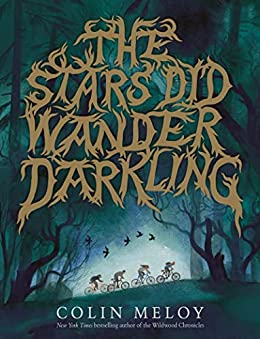
A suspenseful and atmospheric horror set in 1980s Oregon, perfect for fans of Stranger Things, Neil Gaiman, and Margaret Peterson Haddix, from New York Times bestselling author and the Decemberists’ lead singer/songwriter, Colin Meloy.Maybe Archie Coomes has been watching too many horror movies.
All of a sudden, the most ordinary things have taken on a sinister edge: a penny on a doormat. An odd man in a brown suit under a streetlamp. The persistent sound of an ax chopping in the middle of the night.
He keeps telling himself that this is Seaham, a sleepy seaside town where nothing ever happens. Or at least nothing did, until his dad’s construction company opened up the cliff beneath the old—some say cursed—Langdon place.
Soon, though, he and his friends can’t deny it: more and more of the adults in town are acting strangely. An ancient, long-buried evil has been unleashed upon the community, and it’s up to the kids to stop it before it’s too late. . . . [from the publisher]
There is a long build-up, with an interesting additional character appearing too briefly toward the end. I was disappointed by the end of the story, which went off the rails quickly—going from slow-burn creepy to downright bizarre in a big hurry.
9 October 2022
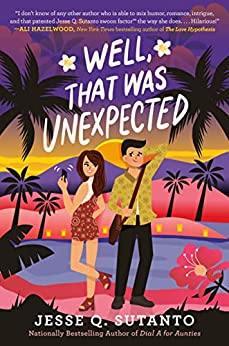
After Sharlot Citra's mother catches her in a compromising position, she finds herself whisked away from LA to her mother's native Indonesia. It'll be exactly what they both need. Or so her mother thinks.To ensure that their children find the right kind of romantic partner, Sharlot's mother and George's father do what any good parent would do: they strike up a conversation online, pretending to be their children.
When the kids find out about their parents' actions, they're horrified. Not even a trip to one of the most romantic places on earth could possibly make Sharlot and George fall for each other. But as the layers peel back and the person they thought they knew from online is revealed, the truth becomes more complicated. As unlikely as it may seem, did their parents manage to find their true match after all? [from the publisher]
6 October 2022
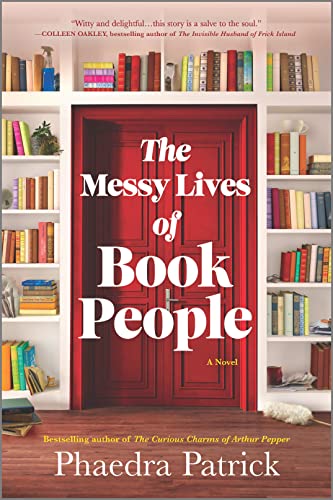
Mother of two Liv Green barely scrapes by as a maid to make ends meet, often finding escape in a good book while daydreaming of becoming a writer herself. So she can't believe her luck when she lands a job housekeeping for her personal hero, megabestselling author Essie Starling, a mysterious and intimidating recluse. The last thing Liv expected was to be the only person Essie talks to, which leads to a tenuous friendship.But when Essie dies suddenly, a devastated Liv is astonished to learn of her last wish: for Liv to complete Essie's final novel. But to do so Liv will have to step into Essie's shoes, and as Liv begins to write, she uncovers secrets from the past that reveal a surprising connection between the two women—one that will change Liv's own story forever. . . . [from the publisher]
There is an important reveal late in the story that could have been disastrous and highly dramatic that was instead written such that Liv is conflicted (at least initially) but not devastated.
I liked this novel more than Patrick's The Curious Charms of Arthur Pepper (her debut in 2016), and much more than her The Library of Lost and Found (2019). She has authored several other titles.
4 October 2022
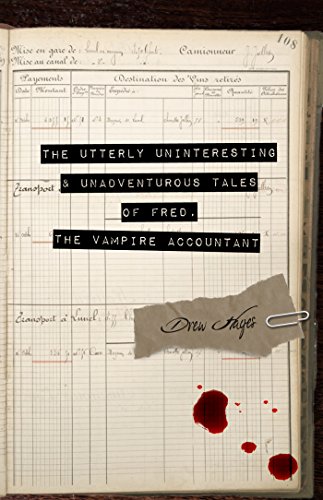
Some people are born boring. Some live boring. Some even die boring. Fred managed to do all three, and when he woke up as a vampire, he did so as a boring one. Timid, socially awkward, and plagued by self-esteem issues, Fred has never been the adventurous sort.One fateful night—different from the night he died, which was more inconvenient than fateful—Fred reconnects with an old friend at his high school reunion. This rekindled relationship sets off a chain of events thrusting him right into the chaos that is the parahuman world, a world with chipper zombies, truck driver wereponies, maniacal necromancers, ancient dragons, and now one undead accountant trying his best to “survive.” Because even after it’s over, life can still be a downright bloody mess. [from the publisher]
3 October 2022
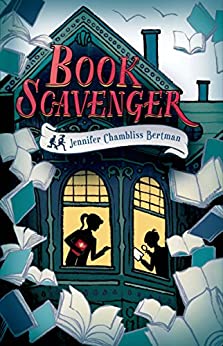
A hidden book. A found cipher. A game begins. . . .Twelve-year-old Emily is on the move again. Her family is relocating to San Francisco, home of her literary idol: Garrison Griswold, creator of the online sensation Book Scavenger, a game where books are hidden all over the country and clues to find them are revealed through puzzles. But Emily soon learns that Griswold has been attacked and is in a coma, and no one knows anything about the epic new game he had been poised to launch. Then Emily and her new friend James discover an odd book, which they come to believe is from Griswold and leads to a valuable prize. But there are others on the hunt for this book, and Emily and James must race to solve the puzzles Griswold left behind before Griswold's attackers make them their next target. [from the publisher]
Emily's family moves often, as they're on a quest to live in all 50 states. What started as a fun adventure and atypical living/learning experience has become less fun and more problematic for Emily and her older brother, Matthew, as they age and mature. [It's more of a problem for Emily, who has a harder time making new friends.] Luckily, in San Francisco, Emily quickly makes friends with James—the grandson of Emily's family's landlord, who lives in the same building. James and Emily send each other coded messages via a bucket on a pulley outside their bedroom windows, and spend lots of time together creating ciphers and trying to solve the mystery of Griswold's game. The action also features a handful of adults who either hinder or help their cause; one classmate who definitely hinders their work by way of competing with James at school; and Matthew, who eventually steps in to help. There's an amusing side story about Matthew's favorite band. The level of violence and peril seems a tad high for a middle grade story, but that may just be my age and sensitivity showing.
The Book Scavenger program bears a striking resemblance to Book Crossing. This was addressed in the Author's Note at the end, along with some background about Edgar Allan Poe and his relationship with one of Griswold's ancestors (also referenced in the story).
Nugget of note: “Don’t mistake shared interests with shared ethics.” —bookseller Hollister to Emily in Chapter 32
1 October 2022
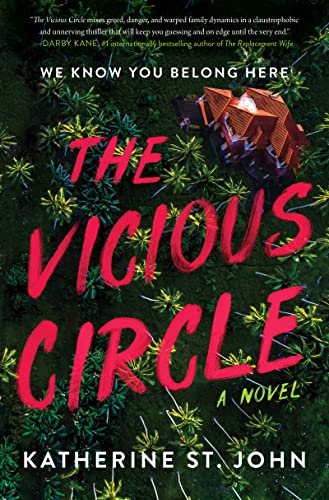
On a river deep in the Mexican jungle stands the colossal villa Xanadu, a wellness center that's home to The Mandala, an ardent spiritual group devoted to self-help guru Paul Bentzen and his enigmatic wife Kali. But when, mysteriously, Paul suddenly dies, his entire estate—including Xanadu—is left to his estranged niece Sveta, a former model living in New York City.Shocked and confused, Sveta travels to Mexico to pay her respects. At first, Xanadu seems like a secluded paradise with its tumbling gardens, beautiful people, transcendent vibe, and mesmerizing de-facto leader Kali. But soon the mystical façade wears thin, revealing a group of brainwashed members drunk on false promises of an impossible utopia and a disturbing, dangerous belief system—and leader—guiding them.
As the sinister forces surrounding Sveta become apparent, she realizes, too late, she can't escape. Frantic and terrified, she discovers her only hope for survival is to put her confidence in the very person she trusts the least. [from the publisher]
30 September 2022
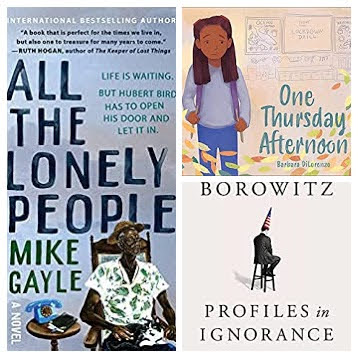
4-star reads
- One Thursday Afternoon, Barbara DiLorenzo (4.66)
- Profiles in Ignorance: How America's Politicians Got Dumb and Dumber, Andy Borowitz (4.5)
- All The Lonely People, Mike Gayle (4.35)
honorable mention (3.5 or 3.66)
- Thank You for Listening, Julia Whelan (3.5)
- Other Birds, Sarah Addison Allen (3.5)
- The Kaiju Preservation Society, John Scalzi (3.5)
- Until Someone Listens: A Story About Borders, Family, and One Girl's Mission, Estela Juarez & Lissette Norman (Illustrator) (3.66)
30 September 2022
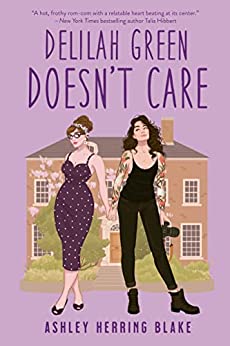
Delilah Green swore she would never go back to Bright Falls—nothing is there for her but memories of a lonely childhood where she was little more than a burden to her cold and distant stepfamily. Her life is in New York, with her photography career finally gaining steam and her bed never empty. Sure, it’s a different woman every night, but that’s just fine with her.When Delilah’s estranged stepsister, Astrid, pressures her into photographing her wedding with a guilt trip and a five-figure check, Delilah finds herself back in the godforsaken town that she used to call home. She plans to breeze in and out, but then she sees Claire Sutherland, one of Astrid’s stuck-up besties, and decides that maybe there’s some fun (and a little retribution) to be had in Bright Falls, after all.
Having raised her eleven-year-old daughter mostly on her own while dealing with her unreliable ex and running a bookstore, Claire Sutherland depends upon a life without surprises. And Delilah Green is an unwelcome surprise . . . at first. Though they’ve known each other for years, they don’t really know each other—so Claire is unsettled when Delilah figures out exactly what buttons to push. When they’re forced together during a gauntlet of wedding preparations—including a plot to save Astrid from her horrible fiancé—Claire isn’t sure she has the strength to resist Delilah’s charms. Even worse, she’s starting to think she doesn’t want to. . . . [from the publisher]
The book is often funny. Also redeeming is Deliliah's art photography work (as opposed to her wedding photography work).
Content warnings for sensitive readers: There are several explicit sex scenes. Profane language is laced throughout.
29 September 2022

We've all heard that our home should be our sanctuary, but most of us fall short of that ideal. Too often, the reality is that our homes are just another place for stress and work. Now trusted HGTV and TLC interior designer Vern Yip is here to guide us on confidently creating a home where we can instantly feel relaxed and rejuvenated, while also reflecting our individual style and needs.In this lush, beautifully illustrated book, Vern shares the tips, tricks, and design principles that 5-star resorts and hotels use to help guests get into vacation mode, and shows how we can duplicate that sense of ease and relaxation (while fitting into our personal design flair). He also opens the doors to some of his clients' homes to show you how these key design principles can vary with different styles, tastes, and locations. With Vern's reassuring tone and clear, easy steps, readers can create spaces that can make everyday feel like vacation! [from the publisher]
28 September 2022
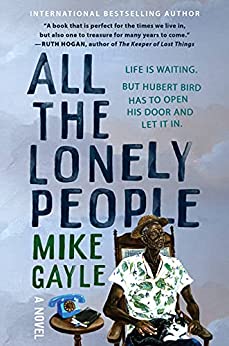
In weekly phone calls to his daughter in Australia, widower Hubert Bird paints a picture of the perfect retirement, packed with fun, friendship and fulfilment.But Hubert Bird is lying.
Now Hubert faces a seemingly impossible task: to make his real life resemble his fake life before the truth comes out.
Along the way Hubert stumbles across a second chance at love, renews a cherished friendship and finds himself roped into an audacious community scheme that seeks to end loneliness once and for all. . . . [from the publisher]
Even though it's been less than a year since my original reading, I had forgotten a couple of (insignificant) points. I'm leaving my rating as it was after my first reading. Despite my familiarity with the story, I was moved once again.
This reading came with the bonus of an author talk with Mike Gayle, in conversation with our PBC Guru book club moderator.
27 September 2022
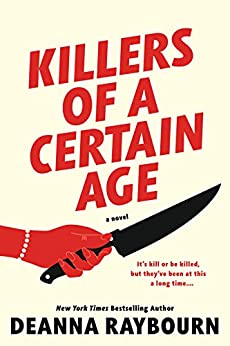
Billie, Mary Alice, Helen, and Natalie have worked for the Museum, an elite network of assassins, for forty years. Now their talents are considered old-school and no one appreciates what they have to offer in an age that relies more on technology than people skills.When the foursome is sent on an all-expenses paid vacation to mark their retirement, they are targeted by one of their own. Only the Board, the top-level members of the Museum, can order the termination of field agents, and the women realize they've been marked for death.
Now to get out alive they have to turn against their own organization, relying on experience and each other to get the job done, knowing that working together is the secret to their survival. They're about to teach the Board what it really means to be a woman—and a killer—of a certain age. [from the publisher]
The story is often funny, yet graphically violent (not at the same time). Swearing abounds.
“I find it hard to take us seriously as agents of vengeance when our plan looks like a kindergarten craft project.” [Chapter Twenty-two]
26 September 2022
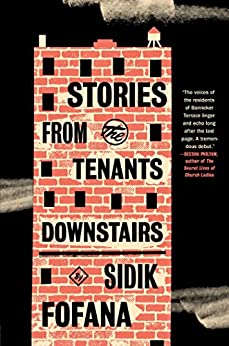
Like Gloria Naylor’s The Women of Brewster Place and Lin Manuel Miranda’s In the Heights, Sidik Fofana’s electrifying collection of eight interconnected stories showcases the strengths, struggles, and hopes of one residential community in a powerful storytelling experience.Each short story follows a tenant in the Banneker Homes, a low-income high rise in Harlem where gentrification weighs on everyone’s mind. There is Swan in apartment 6B, whose excitement about his friend’s release from prison jeopardizes the life he’s been trying to lead. Mimi, in apartment 14D, who hustles to raise the child she had with Swan, waitressing at Roscoe’s and doing hair on the side. And Quanneisha B. Miles, a former gymnast with a good education who wishes she could leave Banneker for good, but can’t seem to escape the building’s gravitational pull. We root for these characters and more as they weave in and out of each other’s lives, endeavoring to escape from their pasts and blaze new paths forward for themselves and the people they love. [from the publisher]
This is a fine debut. The characters are well-developed. Each chapter is written from the point of view of its main character. I liked the connections between the characters and chapters. Several parts were moving.
25 September 2022
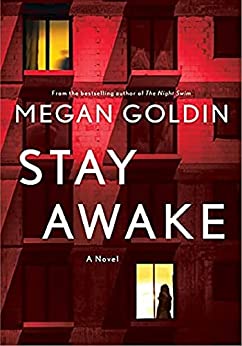
Liv Reese wakes up in the back of a taxi with no idea where she is or how she got there. When she’s dropped off at the door of her brownstone, a stranger answers―a stranger who now lives in her apartment and forces her out in the cold. She reaches for her phone to call for help, only to discover it’s missing, and in its place is a bloodstained knife. That’s when she sees that her hands are covered in black pen, scribbled messages like graffiti on her skin: STAY AWAKE.Two years ago, Liv was living with her best friend, dating a new man, and thriving as a successful writer for a trendy magazine. Now, she’s lost and disoriented in a New York City that looks nothing like what she remembers. Catching a glimpse of the local news, she’s horrified to see reports of a crime scene where the victim’s blood has been used to scrawl a message across a window, the same message that’s inked on her hands. What did she do last night? And why does she remember nothing from the past two years? Liv finds herself on the run for a crime she doesn’t remember committing as she tries to piece together the fragments of her life. But there’s someone who does know exactly what she did, and they’ll do anything to make her forget―permanently. [from the publisher]
18 September 2022

Nina Dean has arrived at her early thirties as a successful food writer with loving friends and family, plus a new home and neighbourhood. When she meets Max, a beguiling romantic hero who tells her on date one that he's going to marry her, it feels like all is going to plan.A new relationship couldn't have come at a better time—her thirties have not been the liberating, uncomplicated experience she was sold. Everywhere she turns, she is reminded of time passing and opportunities dwindling. Friendships are fading, ex-boyfriends are moving on and, worse, everyone's moving to the suburbs. There's no solace to be found in her family, with a mum who's caught in a baffling mid-life makeover and a beloved dad who is vanishing in slow-motion into dementia.
[from the publisher]
16 September 2022
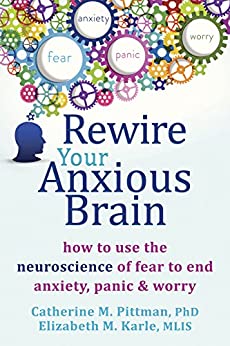
In the book, you will learn how the amygdala and cortex (both important parts of the brain) are essential players in the neuropsychology of anxiety. The amygdala acts as a primal response, and oftentimes, when this part of the brain processes fear, you may not even understand why you are afraid. By comparison, the cortex is the center of “worry.” That is, obsessing, ruminating, and dwelling on things that may or may not happen. In the book, Pittman and Karle make it simple by offering specific examples of how to manage fear by tapping into both of these pathways in the brain.As you read, you’ll gain a greater understanding how anxiety is created in the brain, and as a result, you will feel empowered and motivated to overcome it. The brain is a powerful tool, and the more you work to change the way you respond to fear, the more resilient you will become. Using the practical self-assessments and proven-effective techniques in this book, you will learn to literally “rewire” the brain processes that lie at the root of your fears. [from the publisher]
There are several actual suggestions, including progressive muscle relaxation, coping thoughts to substitute for negative thoughts, and tips for healthy sleep habits. None of these are new or groundbreaking. One piece that I might try: “. . . replace 'I should . . . ' with 'I'd like to. . . .'” [186] It isn't explicitly stated in the book, but I'll choose to apply this in situations that are truly optional—one has to understand the difference between compulsory and discretionary situations.
There's a fair amount of “get back on the horse that threw you”-type advice, suggesting that one voluntarily expose oneself to the fears that trigger them in order to generate a new response in the brain. This does not seem applicable to much of what ails many of us currently and in the recent past.
As is so often the case, I'm thankful that my local library gave me an opportunity to read at no additional charge. I will take what works for me and leave the rest.
15 September 2022
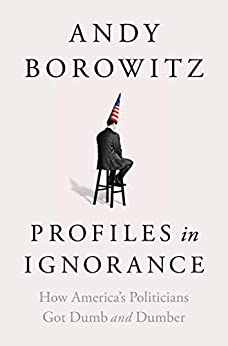
The winner of the first-ever National Press Club award for humor, Andy Borowitz has been called a “Swiftian satirist” (The Wall Street Journal) and “one of the country’s finest satirists” (The New York Times). Millions of fans and New Yorker readers enjoy his satirical news column “The Borowitz Report.” Now, in Profiles in Ignorance, he offers a witty, spot-on diagnosis of our country’s political troubles by showing how ignorant leaders are degrading, embarrassing, and endangering our nation.Borowitz argues that over the past fifty years, American politicians have grown increasingly allergic to knowledge, and mass media have encouraged the election of ignoramuses by elevating candidates who are better at performing than thinking. Starting with Ronald Reagan’s first campaign for governor of California in 1966 and culminating with the election of Donald J. Trump to the White House, Borowitz shows how, during the age of twenty-four-hour news and social media, the US has elected politicians to positions of great power whose lack of the most basic information is terrifying. In addition to Reagan, Quayle, Bush, Palin, and Trump, Borowitz covers a host of congresspersons, senators, and governors who have helped lower the bar over the past five decades.
Profiles in Ignorance aims to make us both laugh and cry: laugh at the idiotic antics of these public figures, and cry at the cataclysms these icons of ignorance have caused. But most importantly, the book delivers a call to action and a cause for optimism: History doesn’t move in a straight line, and we can change course if we act now. [from the publisher]
A hot minute after he told his fans we could order a signed/inscribed (according to our preferences) hardcover book through the Norwich Bookstore, I ordered my copy.
I created almost 50 bookmarks with notes (and I believe I could have marked more) in the borrowed audio. Originally, I was planning to flag up my print edition upon its arrival. Because there are so many bookmarks (and because I want to avoid excessive handling of the inscribed hardcover), I've now purchased the e-book edition as well, so I can search and highlight instead of flag.
Borowitz's column has long consisted of satire in the form of made-up news stories. Sadly, nothing in this book is made-up. The result is sobering, frightening, and infuriating. I've been alive for the bulk of time covered in the book, and politically aware/pretty well-informed for more than 80% of that time. Still, I learned things. The book is well-researched, thorough, and thoughtful. It is incumbent on members of our society to learn the background and development of our current sociopolitical situation if we are to avoid losing our democracy to autocracy. This work is a good (and not overly long or demanding) way to expand one's awareness and understanding. Like the author, I am hopeful.
12 September 2022
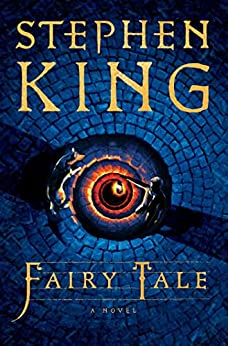
Charlie Reade looks like a regular high school kid, great at baseball and football, a decent student. But he carries a heavy load. His mom was killed in a hit-and-run accident when he was ten, and grief drove his dad to drink. Charlie learned how to take care of himself—and his dad. Then, when Charlie is seventeen, he meets Howard Bowditch, a recluse with a big dog in a big house at the top of a big hill. In the backyard is a locked shed from which strange sounds emerge, as if some creature is trying to escape. When Mr. Bowditch dies, he leaves Charlie the house, a massive amount of gold, a cassette tape telling a story that is impossible to believe, and a responsibility far too massive for a boy to shoulder.Because within the shed is a portal to another world—one whose denizens are in peril and whose monstrous leaders may destroy their own world, and ours. In this parallel universe, where two moons race across the sky, and the grand towers of a sprawling palace pierce the clouds, there are exiled princesses and princes who suffer horrific punishments; there are dungeons; there are games in which men and women must fight each other to the death for the amusement of the “Fair One.” And there is a magic sundial that can turn back time. [from the publisher]
If you're not already a Stephen King fan, please don't start with this. If you are, I imagine you'll take what you like and leave the rest.
9 September 2022
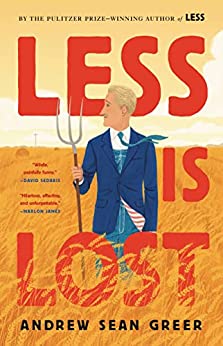
For Arthur Less, life is going surprisingly well: he is a moderately accomplished novelist in a steady relationship with his partner, Freddy Pelu. But nothing lasts: the death of an old lover and a sudden financial crisis has Less running away from his problems yet again as he accepts a series of literary gigs that send him on a zigzagging adventure across the US.Less roves across the “Mild Mild West,” through the South and to his mid-Atlantic birthplace, with an ever-changing posse of writerly characters and his trusty duo—a human-like black pug, Dolly, and a rusty camper van nicknamed Rosina. He grows a handlebar mustache, ditches his signature gray suit, and disguises himself in the bolero-and-cowboy-hat costume of a true “Unitedstatesian” . . . with varying levels of success, as he continues to be mistaken for either a Dutchman, the wrong writer, or, worst of all, a “bad gay.”
We cannot, however, escape ourselves—even across deserts, bayous, and coastlines. From his estranged father and strained relationship with Freddy, to the reckoning he experiences in confronting his privilege, Arthur Less must eventually face his personal demons. [from the publisher]
I don't remember from which character's point of view the first installment was written. In this sequel, the story is told by Less' current lover, Freddy, who isn't even present in the action until around the 80% mark.
As is typical of my preferences, I thought the best parts of the story were relationship-driven. In particular, there's a scene in which Freddy's great uncle gives life/love advice to Less; another in which we receive the wisdom of Thomas's grandma Cookie; and a particularly poignant moment in which Less uses carefully chosen words to make a point to his long-estranged father. [I am not permitted to share quotes from the ARC—they would have to be compared to the finished work.] There is some humor—which is always appreciated and enjoyed—but not hilarity.
This was a fine read—I have no qualms about recommending it. In my mind, though, it pales in comparison to its predecessor.
Thank you, NetGalley, Hachette Audio, and Little, Brown & Company, for the audio ARC of the book in exchange for an honest review. Publication is expected September 20.
8 September 2022
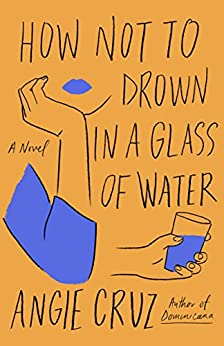
Write this down: Cara Romero wants to work.Cara Romero thought she would work at the factory of little lamps for the rest of her life. But when, in her mid-50s, she loses her job in the Great Recession, she is forced back into the job market for the first time in decades. Set up with a job counselor, Cara instead begins to narrate the story of her life. Over the course of twelve sessions, Cara recounts her tempestuous love affairs, her alternately biting and loving relationships with her neighbor Lulu and her sister Angela, her struggles with debt, gentrification and loss, and, eventually, what really happened between her and her estranged son, Fernando. As Cara confronts her darkest secrets and regrets, we see a woman buffeted by life but still full of fight. [from the publisher]
I didn’t love the one-sided conversation format as many advance readers did; but it moves quickly, so there's no time for boredom. It was hard for me to invest in Cara's situation, given her scattered sessions. I warmed to her slightly at the end, when a different perspective on the session transcripts is offered.
Thank you, NetGalley and Macmillan Audio, for the audio ARC of the book in exchange for an honest review. Publication is expected September 13.
7 September 2022
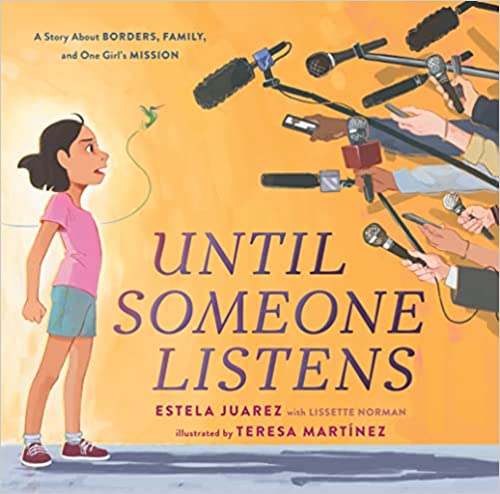
When Estela Juarez's mom is deported to Mexico, Estela knows she has to speak up for her family. Told in Estela's own words, Until Someone Listens is a true story about a young girl finding her voice and using it to make change.Estela’s family lives together in a happy home full of love. Or, at least, they used to… until their home was torn apart.
My mom had to go back,
to the other side of the river,
because she wasn’t born in this country.
For years her family fought and fought for permission for her to stay in the U.S. But no one listened. When Estela was eight, her mother was deported to Mexico.
Estela knew she had to do something. So she wrote letters: to local newspapers, Congress, the President, and anyone else who could help. She wrote and wrote and wrote until, finally . . . someone listened.
In this heart wrenching, autobiographical story, Estela Juarez's letters take her from the local news all the way to the national stage, where she discovers the power in her words and pledges to keep using her voice until her family—and others like hers— are together again. [from the publisher]
The extensive author's note gives more details, including a timeline (under three presidents: Obama, Trump, and Biden) and the ways in which Estela and her family have tried to make change for families like their own.
Thank you, NetGalley and Macmillan Audio, for the audio ARC of the book in exchange for an honest review. Publication is expected September 13.
6 September 2022
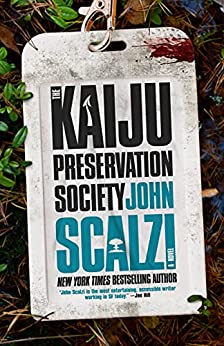
When COVID-19 sweeps through New York City, Jamie Gray is stuck as a dead-end driver for food delivery apps. That is, until Jamie makes a delivery to an old acquaintance, Tom, who works at what he calls “an animal rights organization.” Tom's team needs a last-minute grunt to handle things on their next field visit. Jamie, eager to do anything, immediately signs on.What Tom doesn't tell Jamie is that the animals his team cares for are not here on Earth. Not our Earth, at least. In an alternate dimension, massive dinosaur-like creatures named Kaiju roam a warm and human-free world. They're the universe's largest and most dangerous panda and they're in trouble.
It's not just the Kaiju Preservation Society that's found its way to the alternate world. Others have, too—and their carelessness could cause millions back on our Earth to die. [from the publisher]
5 September 2022
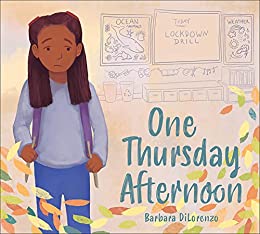
When Granddad picks Ava up from school one Thursday afternoon, she's quiet. She doesn't want to talk about the lockdown drill that has stirred up her worries. How can she be so afraid in a place that has always felt so safe?Granddad doesn’t talk much either; he just offers creativity and companionship. And with his gentle encouragement, Ava begins to sense that although the world can be scary, it is still a beautiful place.
With tender insight, One Thursday Afternoon sheds light on how an unpredictable world can make a child feel, reminding us that big fears can become smaller when we take time together to look, listen, and create. An author’s note about the story’s real-life inspiration and recommendations for how adults can help children overcome fear is included. [from the publisher]
Thank you, NetGalley and Flyaway Books, for the eARC of the book in exchange for an honest review. Publication is expected September 6.
4 September 2022
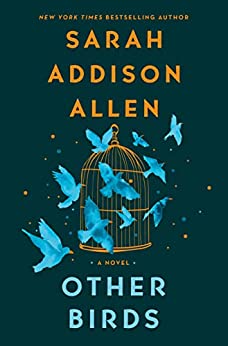
Right off the coast of South Carolina, on Mallow Island, The Dellawisp sits—a stunning old cobblestone building shaped like a horseshoe, and named after the tiny turquoise birds who, alongside its human tenants, inhabit an air of magical secrecy.When Zoey comes to claim her deceased mother’s apartment at the Dellawisp she meets her quirky and secretive neighbors, including a young woman with a past, two estranged middle-aged sisters, and a lonely chef, and three ghosts. The sudden death of one of Zoey's new neighbors sets off a search that leads to the island's famous author and to a long-estranged relative of the sisters.
Each of them has a story, and each story has an ending which hasn't yet been written. [from the publisher]
The author truly surprised me with one identity, earning major bonus points! However, there was another that I guessed so early on that she bungled by awkwardly pretending wasn't a thing and then equally awkwardly admitting it was at the very last minute. A third identity reveal was anticlimactic. When you've read it, let's compare identity reveal notes.
Favorite quote: “He [Mac] hilariously rated their ketchup packets according to ease of opening.” [Chapter 21]
2 September 2022
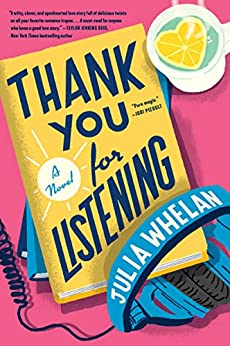
For Sewanee Chester, being an audiobook narrator is a long way from her old dreams, but the days of being a star on film sets are long behind her. She's found success and satisfaction from the inside of a sound booth and it allows her to care for her beloved, ailing grandmother. When she arrives in Las Vegas last-minute for a book convention, Sewanee unexpectedly spends a whirlwind night with a charming stranger.On her return home, Sewanee discovers one of the world's most beloved romance novelists wanted her to perform her last book—with Brock McNight, the industry's hottest, most secretive voice. Sewanee doesn't buy what romance novels are selling—not after her own dreams were tragically cut short—and she stopped narrating them years ago. But her admiration of the late author, and the opportunity to get her grandmother more help, makes her decision for her.
As Sewanee begins work on the book, resurrecting her old romance pseudonym, she and Brock forge a real connection, hidden behind the comfort of anonymity. Soon, she is dreaming again, but secrets are revealed, and the realities of life come crashing down around her once more.
If she can learn to risk everything for desires she has long buried, she will discover a world of intimacy and acceptance she never believed would be hers. [from the publisher]
Seeing the twist coming from miles away didn't detract overall. Parts where Swan was feeling sorry for herself/closing herself off from others, along with the sex scenes (coming across more as perfunctory than sexy), did detract somewhat.
The book is relationship-heavy—a pro, in my mind—including good relationships between Swan and her best friend, colleague(s), mother and her partner, Blah-Blah (beloved grandmother), and author/mentor (now dead).
Whelan is an award-winning audiobook narrator of over 500 titles, and one of my favorites. Of course, she narrates her own books. I liked this better than her debut, My Oxford Year, also fiction.
1 September 2022
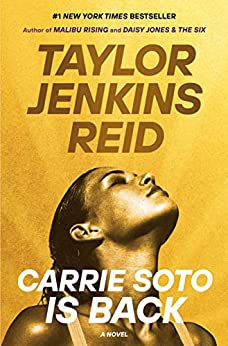
Carrie Soto is fierce, and her determination to win at any cost has not made her popular. But by the time she retires from tennis, she is the best player the world has ever seen. She has shattered every record and claimed twenty Grand Slam titles. And if you ask Carrie, she is entitled to every one. She sacrificed nearly everything to become the best, with her father, Javier, as her coach. A former champion himself, Javier has trained her since the age of two.But six years after her retirement, Carrie finds herself sitting in the stands of the 1994 US Open, watching her record be taken from her by a brutal, stunning player named Nicki Chan.
At thirty-seven years old, Carrie makes the monumental decision to come out of retirement and be coached by her father for one last year in an attempt to reclaim her record. Even if the sports media says that they never liked “the Battle-Axe” anyway. Even if her body doesn’t move as fast as it did. And even if it means swallowing her pride to train with a man she once almost opened her heart to: Bowe Huntley. Like her, he has something to prove before he gives up the game forever.
In spite of it all, Carrie Soto is back, for one epic final season. In this riveting and unforgettable novel, Taylor Jenkins Reid tells her most vulnerable, emotional story yet. [from the publisher]
Favorite quote: “One of the great injustices of this rigged world we live in is that women are considered to be depleting with age, and men are somehow deepening.” [Mid November: Two Months until Melbourne]
31 August 2022
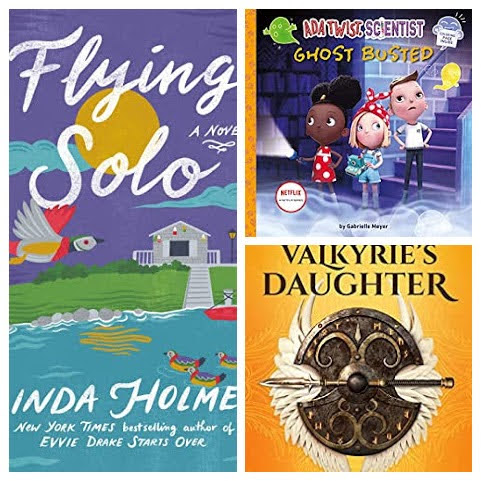
4-star reads
- The Valkyrie's Daughter, Tiana Warner
- Flying Solo, Linda Holmes
- Ada Twist, Scientist: Ghost Busted,Gabrielle Meyer (4.5)
honorable mention (3.5 or 3.66)
- A Killing in Costumes, Zac Bissonnette (3.66)
- The Couple at Number 9, Claire Douglas (3.66)
- Bicycling with Butterflies, Sara Dykman (3.5)
- The Verifiers, Jane Pek (3.5)
30 August 2022

A suburban New Jersey high school teacher confronts a student-body election gone haywire in this darkly comic novel by the author of The Wishbones. Who really cares who gets elected President of Winwood High School? Nobody—except Tracy Flick. Tracy's one of those students of boundless energy and ambition who somehow finds the time to do everything—edit the school paper, star in the musical, sleep with her favorite teacher. Her heart is set on becoming President of Winwood, and what Tracy wants, Tracy gets. With weeks to go before election day, her victory is nearly a foregone conclusion.And that's just the problem, according to Mr. M—a.k.a. Jim McAllister, faculty, advisor to the Student Government Association and a popular Winwood history teacher. In the name of democracy—not to mention a simmering grudge against Tracy Flick—Mr. M recruits the perfect opposition candidate. Paul Warren is a golden boy, a football hero with a brain and a heart, eager to bulk up his meager resume.
As Winwood High experiences election fever, Mr. M is distracted by a sudden attraction to his wife's best friend. The two dramas he has created—one personal and private, the other public and political—unfurl simultaneously, with all the players sharing in a life-altering conclusion.
Part satire, part soap opera, Election is an uncommon look at an ordinary American high school, and the extraordinary people who inhabit it. [from the publisher]
The characters have strong personalities. I will reluctantly accept a degree of bad behavior from the teenage characters, I suppose; but the number of adult characters off the rails was unfortunate (to put it mildly). The story is soap opera–ish.
It's altogether possible that I just don't have patience for this story at this time, with bad behavior among adults in our society running rampant. What are satirists to do when reality is so outrageous? In any event, I need a break from the daily grind when it comes to my reading entertainment.
28 August 2022
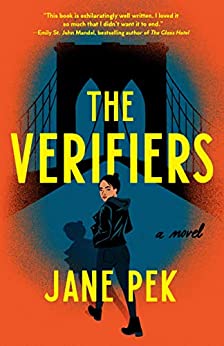
Claudia Lin is used to disregarding her fractious family’s model-minority expectations: she has no interest in finding either a conventional career or a nice Chinese boy. She’s also used to keeping secrets from them, such as that she prefers girls—and that she's just been stealth-recruited by Veracity, a referrals-only online-dating detective agency.A lifelong mystery reader who wrote her senior thesis on Jane Austen, Claudia believes she's landed her ideal job. But when a client goes missing, Claudia breaks protocol to investigate—and uncovers a maelstrom of personal and corporate deceit. Part literary mystery, part family story, The Verifiers is a clever and incisive examination of how technology shapes our choices, and the nature of romantic love in the digital age. [from the publisher]
In Chapter IX, Claudia notes, “. . . I hate being told what to do.” I'm with you, Claudia! I was amused by Claudia's mom's “two out of three” eventual compromise in terms of Claudia finding a nice Chinese boy.
26 August 2022
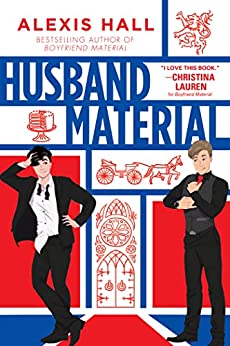
In Boyfriend Material, Luc and Oliver met, pretended to fall in love, fell in love for real, dealt with heartbreak and disappointment and family and friends . . . and somehow figured out a way to make it work. Now it seems like everyone around them is getting married, and Luc’s feeling the social pressure to propose. But it’ll take more than four weddings, a funeral, and a bowl full of special curry to get these two from I don’t know what I’m doing to I do. [from the publisher]
23 August 2022
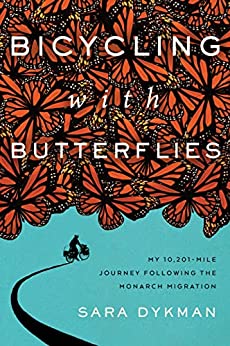
Sara Dykman made history when she became the first person to bicycle alongside monarch butterflies on their storied annual migration—a round-trip adventure that included three countries and more than 10,000 miles. Equally remarkable, she did it solo, on a bike cobbled together from used parts. Her panniers were recycled buckets.In Bicycling with Butterflies, Dykman recounts her incredible journey and the dramatic ups and downs of the nearly nine-month odyssey. We’re beside her as she navigates unmapped roads in foreign countries, checks roadside milkweed for monarch eggs, and shares her passion with eager schoolchildren, skeptical bar patrons, and unimpressed border officials. We also meet some of the ardent monarch stewards who supported her efforts, from citizen scientists and researchers to farmers and high-rise city dwellers.
With both humor and humility, Dykman offers a compelling story, confirming the urgency of saving the threatened monarch migration—and the other threatened systems of nature that affect the survival of us all. [from the publisher]
The book starts out beautifully—descriptive and warm. During the course of the book, Dykman offers educational tidbits and political & social commentary. I think she could have included more of both. I especially liked her interactions with kids, both in the classroom and in the community. Some sections seemed unnecessary, not adding to the otherwise excellent narrative. Very occasionally, the tone became somewhat whiny.
I had an incredible number of bookmarks and notes in my borrowed audio edition that I was planning to transfer to/review in the hardcover edition I had waiting at home (I was out of town). Enter the Great Libby Crisis of August 2022, in which the app deleted all of my reading progress and bookmarks/notes for three books. So, I have no lasting record of passages that struck me—crushing! Still, I greatly enjoyed the presentation and book club discussion.
20 August 2022
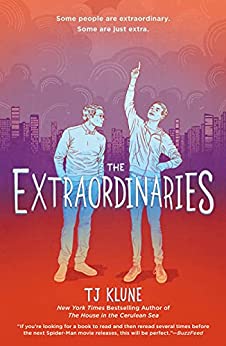
Nick Bell? Not extraordinary. But being the most popular fanfiction writer in the Extraordinaries fandom is a superpower, right?After a chance encounter with Shadow Star, Nova City’s mightiest hero (and Nick’s biggest crush), Nick sets out to make himself extraordinary. And he’ll do it with or without the reluctant help of Seth Gray, Nick's best friend (and maybe the love of his life). [from the publisher]
The book got funnier as it went along, sometimes eliciting audible laughs. In addition to being funny, pros include representation (LGBTQ, Black), intergenerational cooperation, and friendships.
Content warnings include death of parents; violence, including risk to/deaths of bystanders. Depictions of sex mostly consisted of kissing and handholding, though there were some suggestions of more, including in epilogue.
18 August 2022
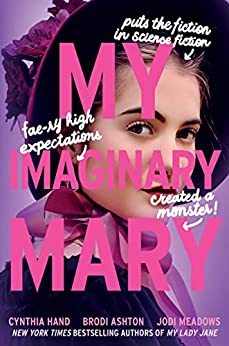
Mary may have inherited the brilliant mind of her late mother, Mary Wollstonecraft, but she lives a drab life above her father’s bookstore, waiting for an extraordinary idea that’ll inspire a work worthy of her parentage—and impress her rakishly handsome (and super-secret) beau, Percy Shelley.Ada Lovelace knows a thing or two about superstar parents, what with her dad being Lord Byron, the most famous poet on Earth. But her passions lie far beyond the arts—in mechanical engineering, to be exact. Alas, no matter how precise Ada’s calculations, there’s always a man willing to claim her ingenious ideas as his own.
Pan, a.k.a. Practical Automaton Number One, is Ada's greatest idea yet: a machine that will change the world, if only she can figure out how to make him truly autonomous . . . or how to make him work at all.
When fate connects our two masterminds, Mary and Ada learn that they are fae—magical people with the ability to make whatever they imagine become real. But when their dream team results in a living, breathing, thinking PAN, Mary and Ada find themselves hunted by a mad scientist who won't stop until he finds out how they made a real boy out of spare parts. [from the publisher]
I absolutely hated the main villain and the Italian accent (at least that's what I think it was supposed to be) the narrator used for him. I liked Ada's mathematical/scientific brain, as well as the friendship between Mary and Ada and between both of them and Pan.
I truly enjoyed My Lady Jane by the same authors, but haven't found the same sparkle in the two Mary series books I've read. I may be done.
15 August 2022
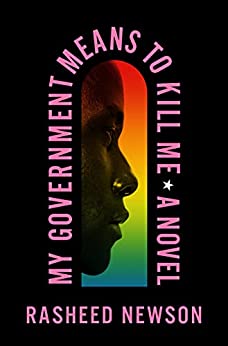
Born into a wealthy Black Indianapolis family, Earl “Trey” Singleton III leaves his overbearing parents and their expectations behind by running away to New York City with only a few dollars in his pocket. In the city, Trey meets up with a cast of characters that changes his life forever. He volunteers at a renegade home hospice for AIDS patients, and after being put to the test by gay rights activists, becomes a member of the AIDS Coalition to Unleash Power (ACT UP). Along the way Trey attempts to navigate past traumas and searches for ways to maintain familial relationships—all while seeking the meaning of life amid so much death.Vibrant, humorous, and fraught with entanglements, Rasheed Newson’s My Government Means to Kill Me is an exhilarating, fast-paced coming-of-age story that lends itself to a larger discussion about what it means for a young gay Black man in the mid-1980s to come to terms with his role in the midst of a political and social reckoning. [from the publisher]
This book serves as a perfect example of why, generally, I'm not a fan of historical fiction: neither the fiction nor the history is well-served. I read a lot of politics, social justice, history, and LGBTQ (primarily fiction, but also nonfiction). In this case, I would have been much more satisfied by reading a historical account of the AIDS crisis (along with race relations and general LGBTQ issues). Here, the significant factual narrative was completely overshadowed by the sexual exploits of the fictional characters. It's like the history was an afterthought. After reading a well-done nonfiction account of the topics, I would also, possibly, be happy to read a purely fictional story about the main character, Trey, if it weren't so sexually explicit. That is, every little detail of the many sexual encounters of several characters is not interesting to me. I don't think it advances the characters' stories. Describe to me how the characters feel and what they're thinking. Make me care. Don't just catalog their sexual positions and acts.
Contrary to the publisher's assertion that the book is “an exhilarating, fast-paced coming-of-age story,” I felt like every minute of the book was a trudge. This is an especially startling disconnect in a book that is relatively short (fewer than 300 pages).
Thank you, NetGalley and Macmillan Audio, for the audio ARC of the book in exchange for an honest review. Publication is expected August 23.
14 August 2022
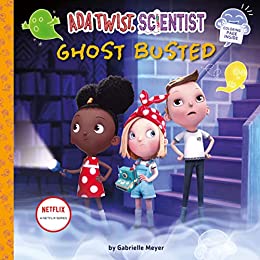
Ada, Iggy, and Rosie are ready for their sleepover, but Iggy warns them of the haunted basement. The Questioneers must investigate using science, bravery, and teamwork. [from the publisher]
Iggy thinks there's a ghost in his dad's basement. He and his friends Ada and Rosie work together, using the scientific method, to determine whether he's right.
I especially like the spirit of cooperation between the friends, the fact that the friends are diverse in gender and race, the presence of a supportive adult, and the use of science.
Thank you, NetGalley and Dreamscape Media, for the audio ARC of the book in exchange for an honest review. Publication is expected August 23.
13 August 2022
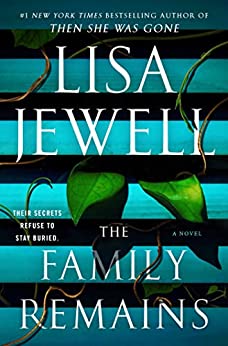
Early one morning on the shore of the Thames, DCI Samuel Owusu is called to the scene of a gruesome discovery. When Owusu sends the evidence for examination, he learns the bones are connected to a cold case that left three people dead on the kitchen floor in a Chelsea mansion thirty years ago.Rachel Rimmer has also received a shock—news that her husband, Michael, has been found dead in the cellar of his house in France. All signs point to an intruder, and the French police need her to come urgently to answer questions about Michael and his past that she very much doesn’t want to answer.
After fleeing London thirty years ago in the wake of a horrific tragedy, Lucy Lamb is finally coming home. While she settles in with her children and is just about to purchase their first-ever house, her brother takes off to find the boy from their shared past whose memory haunts their present.
As they all race to discover answers to these convoluted mysteries, they will come to find that they’re connected in ways they could have never imagined. [from the publisher]
It was long enough ago that I read the first book—The Family Upstairs, which I awarded, albeit without certainty, 4 stars in November 2019—that, while I remembered a surprising amount, I had a hard time keeping track of the adult returning characters in this book and correlating them to the children they were in the first book.
The domestic abuse and rape perpetrated by Michael on Rachel was gratuitous and diminished the book greatly. Of course, I always think this—rape and physical abuse shouldn't be used as entertainment fodder. [Yes, I see that murder mysteries being my favorite genre might produce some confusion in this regard. Let me assure you that I also recognize that murder is wrong and is not entertainment. What I like about mysteries is the problem solving . . . not the murders. Too, the murders aren't typically described graphically, while rape and other forms of physical violence typically are described quite explicitly.]
The timeline flipping around was a bit confusing and entirely unnecessary.
I don't know what this book added. I thought about bailing on it more than once, hence my below-average rating. The first book was good. If the premise of either book appeals to you, I'd recommend that you read the first book and skip this one.
11 August 2022
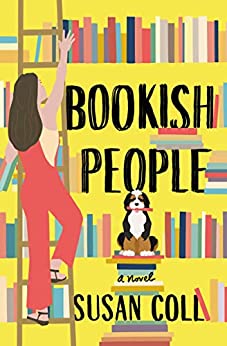
Independent bookstore owner Sophie Bernstein is burned out on books. Mourning the death of her husband, the loss of her favorite manager, her only child’s lack of aspiration, and the grim state of the world, she fantasizes about going into hiding in the secret back room of her store.Meanwhile, renowned poet Raymond Chaucer has published a new collection, and rumors that he’s to blame for his wife’s suicide have led to national cancellations of his publicity tour. He intends to set the record straight—with an ultra-fine-point Sharpie—but only one shop still plans to host him: Sophie’s.
Fearful of potential repercussions from angry customers, Sophie asks Clemi—bookstore events coordinator, aspiring novelist, and daughter of a famed literary agent—to cancel Raymond’s appearance. But Clemi suspects Raymond might be her biological father, and she can’t say no to the chance of finding out for sure.
This big-hearted screwball comedy features an intergenerational cast of oblivious authors and over-qualified booksellers—as well as a Russian tortoise named Kurt Vonnegut Jr.—and captures the endearing quirks of some of the best kinds of people: the ones who love good books. [from the publisher]
I felt this to my core:
Why does everyone think they need to write a book? Why is reading not a sufficient occupation? [Chapter 4]
Throughout the book, Autumn T’s email updates (end of day report) to the rest of the store's staff are, generally, mildly amusing.
9 August 2022
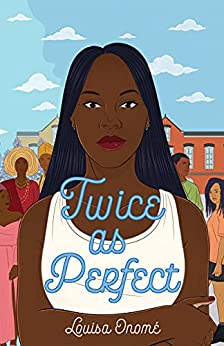
The only things worth doing are those that will lead to success.For seventeen-year-old Adanna Nkwachi, life is all about duty: to school and the debate team, to her Nigerian parents, and even to her cousin Genny as Ada helps prepare Genny’s wedding to Afrobeats superstar Skeleboy (“Skeleboy me, Skeleboy this money, everything na Skeleboy . . . that Skeleboy!”). Because ever since her older brother, Sam, had a fight with their parents a few years ago and disappeared, somebody has to fill the void he left behind. Ada may never know what caused Sam to leave home, but the one thing she’s certain of is that it’s on her to make sure her parents’ sacrifices aren’t in vain.
One day, chance brings the siblings back together. Although she fears how their parents will react if they find out she and Sam are back in touch, Ada’s determined to get answers about the night Sam left—Sam, who was supposed to be an engineer but is now, what, a poet? The more she learns about Sam’s poetry, the more Ada begins to wonder if maybe her own happiness is just as important as doing what’s expected of her. Amid parental pressure, anxiety over the debate competition, a complicated love life, and the Nigerian wedding-to-end-all-weddings, can Ada learn, just this once, to put herself first? [from the publisher]
I liked the Nigerian voices in the audio edition.
7 August 2022
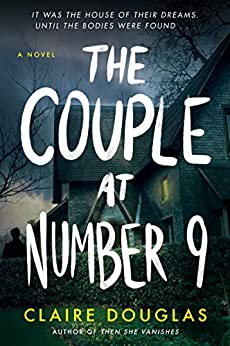
The Victims . . .When pregnant Saffron Cutler moves into 9 Skelton Place with boyfriend Tom and sets about renovations, the last thing she expects is builders uncovering human remains. The remains of two bodies, in fact.
The Investigation . . .
Forensics indicate the bodies have been buried at least thirty years. Saffy has nothing to worry about—until the police launch a murder inquiry and ask to speak to the cottage's former owner. Her grandmother, Rose.
The Witness . . .
Rose is in a nursing home and Alzheimer's means her memory is increasingly confused. She can't help the police, but it's clear she remembers something.
The Killer . . .
As Rose's fragmented memories resurface, and the police dig ever deeper, Saffy fears she and the cottage are being watched.
The Truth . . .
What happened thirty years ago? Why did no one miss the victims? What part did her grandmother play? And is Saffy now in danger? [from the publisher]
I predicted a big piece fairly early (definitely before 45%), but still didn't know the identity of one of the buried bodies until later. The end was anticlimactic given my early prediction. Still, I'm rating this highly—and will recommend it—because it kept me entertained.
4 August 2022
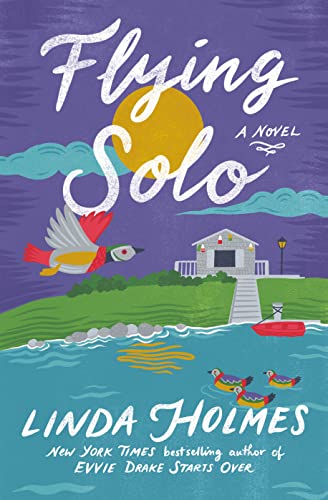
Smarting from her recently cancelled wedding and about to turn forty, Laurie Sassalyn returns to her Maine hometown of Calcasset to handle the estate of her great-aunt Dot, a spirited adventurer who lived to be ninety. Along with boxes of Polaroids and pottery, a mysterious wooden duck shows up at the bottom of a cedar chest. Laurie's curiosity is piqued, especially after she finds a love letter to the never-married Dot that ends with the line, “And anyway, if you're ever desperate, there are always ducks, darling.”Laurie is told that the duck has no financial value. But after it disappears under suspicious circumstances, she feels compelled to figure out why anyone would steal a wooden duck—and why Dot kept it hidden away in the first place. Suddenly Laurie finds herself swept up in a righteous caper that has her negotiating with antiques dealers and con artists, going on after-hours dates at the local library, and reconnecting with her oldest friend and first love. Desperate to uncover her great-aunt's secrets, Laurie must reckon with her past, her future, and ultimately embrace her own vision of flying solo. [from the publisher]
It's refreshing—and all too rare, it seems—to read a book where several of the characters (both Laurie at almost-40 and supporting characters in the two generations before her) are mature in terms of both age and behavior, but also funny, vibrant, strong, smart, sexy, and a host of other positive characteristics.
2 August 2022
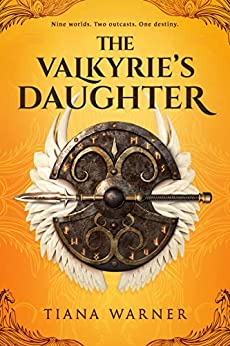
From the time she was born, Sigrid has only ever been ordinary. Being paired at birth with a plain horse―instead of the powerful winged mare of a valkyrie―meant there would be no warrior path for her. No riding the skies, no glory among the nine worlds. Just the simple, unremarkable life of a stable hand.Everything changes when a terrible enemy ambushes Vanaheim and Sigrid sees a vision of herself atop a mythical stallion, leading the valkyries into a harrowing battle. Finally, she can grab her future with her own two hands and become the hero of her own story . . . if she dares.
But her destiny is tied up with Mariam, a fallen valkyrie who’s allied herself with the very enemy Sigrid is trying to stop.
Now Sigrid has left ordinary behind as she begins a journey with the beautiful―if treacherous―valkyrie, each step bringing her closer to answers . . . and to awakened feelings for Mariam.
Only, the life Sigrid has escaped may have been paradise compared to the one she’s racing toward. Because her destination is the realm of the dead: the gates of Hel. [from the publisher]
1 August 2022
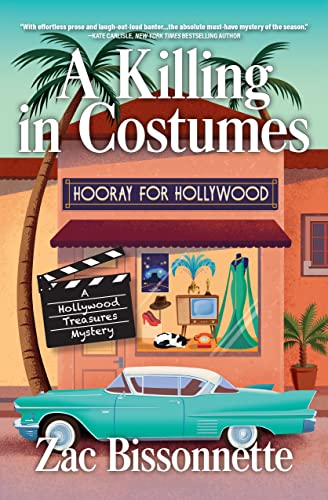
Jay Allan and Cindy Cooper were soap-opera stars in the late 90s, a wholesome young husband-and-wife duo who combined musical talent with humor and charisma. When the truth about their sexual orientations came to light, their marriage and TV careers ended, but decades later they have remained friends. Together, they open Palm Springs’ chicest movie memorabilia store, Hooray for Hollywood, but no customers and dwindling finances spell trouble.A Hail Mary arrives in the form of Yana Tosh, a ninety-year-old diva of the silver screen who has amassed a valuable collection of costumes and props and is looking to sell. But first, Jay and Cindy have to beat their competition, a vice president from a mega-auction house with ten times their resources. And when he winds up dead, they become prime suspects in the murder.
With their freedom and livelihoods on the line, Jay and Cindy desperately need to clear their names. There are plenty of other potential suspects, but they'll have to solve it soon before they're forced to trade in their vintage costume collection for two orange jumpsuits. [from the publisher]
Thank you, NetGalley and Dreamscape Media, for the audio ARC of the book in exchange for an honest review. Publication is expected August 9.
31 July 2022
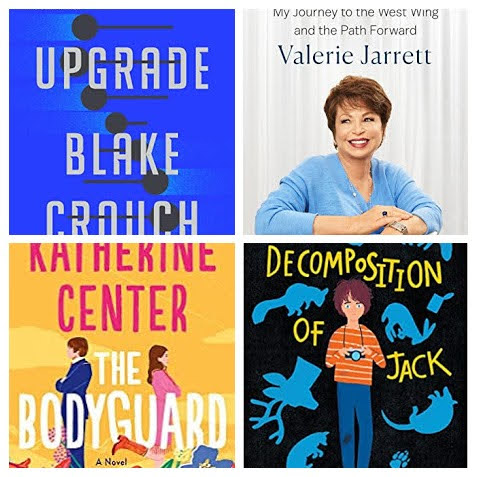
4-star reads
- The Bodyguard, Katherine Center
- Finding My Voice, Valerie Jarrett
- Upgrade, Blake Crouch
- The Decomposition of Jack, Kristin O'Donnell Tubb
honorable mention (3.5)
- The Law of Innocence (Mickey Haller #6), Michael Connelly
- Race and Reckoning, Ellis Cose
30 July 2022
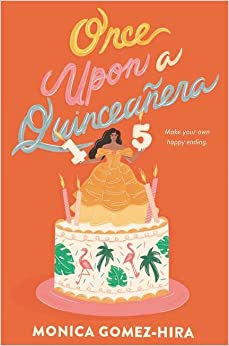
Carmen Aguilar just wants to make her happily ever after come true. Except apparently “happily ever after” for Carmen involves being stuck in an unpaid summer internship! All she has to do is perform! In a ball gown! During the summer. In Miami.Fine. Except that Carmen’s company is hired for her spoiled cousin Ariana’s over the top quinceañera.
And of course, her new dance partner at work is none other than Mauro Reyes, Carmen’s most deeply regrettable ex.
If Carmen is going to move into the future she wants, she needs to leave the past behind. And if she can manage dancing in the blistering heat, fending off Mauro’s texts, and stopping Ariana from ruining her own quinceañera Carmen might just get that happily ever after after all. [from the publisher]
This is the third YA rom-com I read over the course of less than two weeks, and it's the only one in which sex is part of the equation. As the main character has reached the age of majority (in story time—not when she became sexually active), this is not really an issue. However, the sex scene didn't add anything to the story. Though that's not the only factor, this did contribute to the fact that I rated this book lowest of the three.
I didn't find most of the characters particularly appealing. If over-the-top family drama is fun for you, you might enjoy it more.
29 July 2022
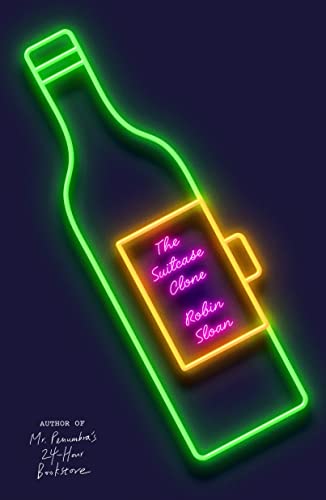
James Bascule is adrift. College beckons—but not quite strongly enough to actually get him to campus. A trip to Europe showed him a world bigger than his Northern California upbringing—and yet, one broken heart later, Northern California is where he’s returned. Back to his old bedroom, paying his bemused parents rent with his new hobby, baking bread with the sourdough starter that is his only souvenir of what was apparently just a summer fling.The future is being built an hour or two down the highway—it’s 1985; the twenty-first century is just around the corner!—but that’s not his world, either. While sitting in a Sonoma County bar, indulging in a little aimless day-drinking with a junior college acquaintance, he meets a man. A man with . . . something like a plan. Has James ever heard of a “suitcase clone”? It’s a cutting of a vine used to clone and propagate noteworthy grapes—say, from a legendary European vineyard to an upstart Napa Valley operation. This man has an operation. He has a suitcase. He just needs an enterprising young accomplice up for an adventure.
Just how deliriously fun and thrillingly mind-expanding an adventure, James can’t yet know. But we, of course, know how Robin Sloan crafts a story. Crossing the international literary-techno-conspiracy of Mr. Penumbra with the delicious experimentation of Sourdough, The Suitcase Clone is a tale that enriches and expands the Penumbraverse in ways you never saw coming, told by a mysterious narrator with an unexpected perspective on the great puzzles of life. Who could it be? [from the publisher]
Regardless, if you're a Sloan fan, you should definitely read The Suitcase Clone. Even if you aren't a generally a short story (or slightly longer short story) fan—as I generally am not—this piece is plenty entertaining and certainly a quick read. There's a surprising level of intrigue and adventure for such a short piece.
Thank you, NetGalley and Macmillan Audio (for their production from Farrar, Straus and Giroux), for the audio ARC of the book in exchange for an honest review. Publication is expected August 2.
28 July 2022
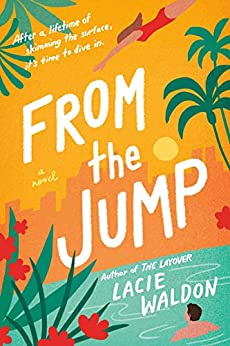
Liv Bakersfield is used to living her life in “shoulds.” Be fit. Be financially responsible. Be your best self. An overworked graphic designer, she’s stretched so thin that she’s about to miss yet another vacation with her beloved group of college friends. But when Liv finally decides to start saying no, it feels good . . . good enough to leap straight into quitting her job and hopping on a plane to join them in South Africa.Amid the exotic landscape and unforgettable sights, Liv expects sun and safari animals and an easy time with her best friends. But such close proximity makes everything more complicated, especially with the emotionally unavailable Lucas Deiss. Their friendship is the only thing in her life that's still solid, and she vows to do anything she can to keep the group together. But once they get back to L.A., Liv discovers that her leap of faith has become a freefall, sending her crashing into Deiss's arms. With the trust of the people she loves most on the line, Liv must decide between doing what she should . . . and risking everything for what she shouldn’t want. [from the publisher]
A major disaster is discovered toward the end of Liv's impromptu South African trip (slightly shy of the halfway point) that is ridiculously implausible, but sets the stage for the rest of the story. Not to worry—I don't think I'll be spoiling anything when I tell you that everyone lives happily ever after.
Befitting a rom-com (vs. a hardcore romance), sex is minimal and not terribly graphic.
26 July 2022
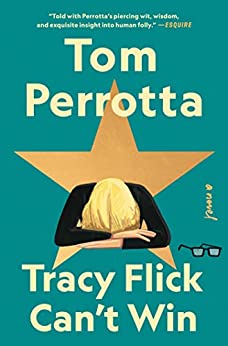
Tracy Flick is a hardworking assistant principal at a public high school in suburban New Jersey. Still ambitious but feeling a little stuck and underappreciated in midlife, Tracy gets a jolt of good news when the longtime principal, Jack Weede, abruptly announces his retirement, creating a rare opportunity for Tracy to ascend to the top job.Energized by the prospect of her long-overdue promotion, Tracy throws herself into her work with renewed zeal, determined to prove her worth to the students, faculty, and School Board, while also managing her personal life—a ten-year-old daughter, a needy doctor boyfriend, and a burgeoning meditation practice. But nothing ever comes easily to Tracy Flick, no matter how diligent or qualified she happens to be.
Among her many other responsibilities, Tracy is enlisted to serve on the Selection Committee for the brand-new Green Meadow High School Hall of Fame. Her male colleagues’ determination to honor Vito Falcone—a star quarterback of dubious character who had a brief, undistinguished career in the NFL—triggers bad memories for Tracy, and leads her to troubling reflections about the trajectory of her own life and the forces that have left her feeling thwarted and disappointed, unable to fulfill her true potential.
As she broods on the past, Tracy becomes aware of storm clouds brewing in the present. Is she really a shoo-in for the Principal job? Is the Superintendent plotting against her? Why is the School Board President’s wife trying so hard to be her friend? And why can’t she ever get what she deserves? [from the publisher]
25 July 2022
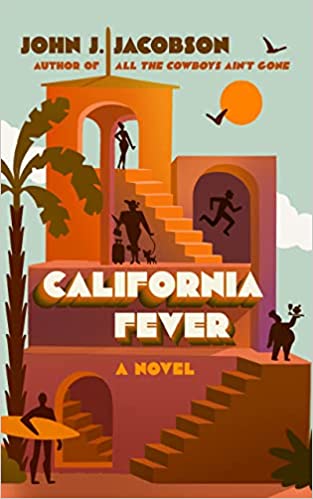
SoCal surfer Dolphin Smoote just wanted to earn quick dough for a date with the brown-eyed beauty . . . what he got was G-men (and G-women), ghosts, and a Colt 45.John Jacobson’s California Fever is the compelling fusion of mystery, crime, and Southern California beach charm. Top surfer Dolphin Smoote gets more than he bargains for when he works up the nerve to ask out the brown-eyed beauty on a date. The search of quick coin without having to work will always lead a surfer to precarious places, and Dolphin is no exception. With the help of his lovable surfer crew who often have more to say about stylishness than anything else, Dolphin finds himself between conmen, ghosts, an impending storm from the coast of Mexico . . . and still no money for a second date. Along the ride, Dolphin finds in himself capacity for storytelling that would make P. G. Wodehouse himself chortle with laughter. [from the publisher]
Thank you, NetGalley and Blackstone Publishing, for the audio ARC of the book in exchange for an honest review. Publication is expected August 2.
24 July 2022
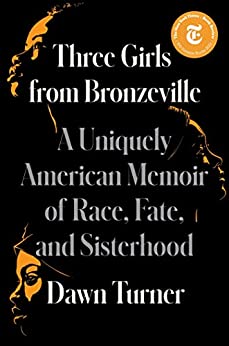
They were three Black girls. Dawn, tall and studious; her sister, Kim, younger by three years and headstrong; and her best friend, Debra, already prom-queen pretty by third grade. They bonded as they roamed the concrete landscape of Bronzeville, a historic neighborhood on Chicago’s South Side, the destination of hundreds of thousands of Black folks who fled the ravages of the Jim Crow South.These third-generation daughters of the Great Migration come of age in the 1970s, in the warm glow of the recent civil rights movement. It has offered them a promise that they will have more opportunities, rights, and freedoms than any generation of Black Americans in history. But the girls have much more immediate concerns: hiding under the dining room table and eavesdropping on grown folks’ business; collecting secret treasures; and daydreaming about their futures. And then fate intervenes, sending them careening in wildly different directions. There’s heartbreak, loss, displacement, and even murder.
Three Girls from Bronzeville is a memoir that chronicles Dawn’s attempt to find answers. It’s a celebration of sisterhood, a testimony to the unique struggles of Black women, and a tour-de-force about the complex interplay of race, class, and opportunity, and how those forces shape our lives and our capacity for resilience and redemption. [from the publisher]
Dawn Turner is an award-winning journalist and novelist. A former columnist and reporter for the Chicago Tribune, Turner spent a decade and a half writing about race, politics, and people whose stories are often dismissed and ignored. Turner, who served as a 2017 and 2018 juror for the Pulitzer Prize in commentary, has written commentary for The Washington Post, PBS NewsHour, CBS Sunday Morning News show, NPR’s Morning Edition show, the Chicago Tonight show, and elsewhere. She has covered national presidential conventions, as well as Barack Obama’s 2008 presidential election and inauguration. Turner has been a regular commentator for several national and international news programs, and has reported from around the world in countries such as Australia, China, France, and Ghana. [from the author's page on publisher website]
The book absolutely makes some important sociopolitical points, but does so almost casually or in passing. I felt like the lessons got lost in Turner's exhaustively detailed retelling of her personal events. There are much more powerful books on the subject—both fiction and nonfiction.
My favorite quote of the book offers some comic relief (I think), when Dawn's sister, Kim, says to her, “Don't leave me with that woman. When she’s old and crazy, how will we know?” [Part 2 Chapter 14]
22 July 2022
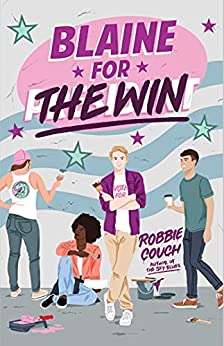
High school junior Blaine Bowers has it all—the perfect boyfriend, a pretty sweet gig as a muralist for local Windy City businesses, a loving family, and awesome, talented friends. And he is absolutely, 100% positive that aforementioned perfect boyfriend—senior student council president and Mr. Popular of Wicker West High School, Joey—is going to invite Blaine to spend spring break with his family in beautiful, sunny Cabo San Lucas.Except Joey breaks up with him instead. In public. On their one-year anniversary.
Because, according to Joey, Blaine is too goofy, too flighty, too . . . unserious. And if Joey wants to go far in life, he needs to start dating more serious guys. Guys like Zach Chesterton.
Determined to prove that Blaine can be what Joey wants, Blaine decides to enter the running to become his successor (and beat out Joey’s new boyfriend, Zach) as senior student council president.
But is he willing to sacrifice everything he loves about himself to do it? [from the publisher]
Representation includes gay, lesbian, Black, and Vietnamese American.
This quote sums up Blaine, but serves many of us well: “Where's the fun in fitting in?” [Chapter 2]
21 July 2022
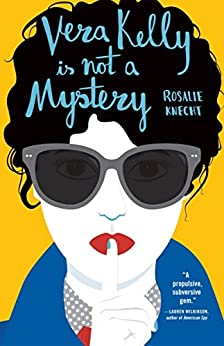
When ex-CIA agent Vera Kelly loses her job and her girlfriend in a single day, she reluctantly goes into business as a private detective. Heartbroken and cash-strapped, she takes a case that dredges up dark memories and attracts dangerous characters from across the Cold War landscape. Before it’s over, she’ll chase a lost child through foster care and follow a trail of Dominican exiles to the Caribbean. Forever looking over her shoulder, she nearly misses what’s right in front of her: her own desire for home, connection, and a new romance at the local bar. [from the publisher]
19 July 2022
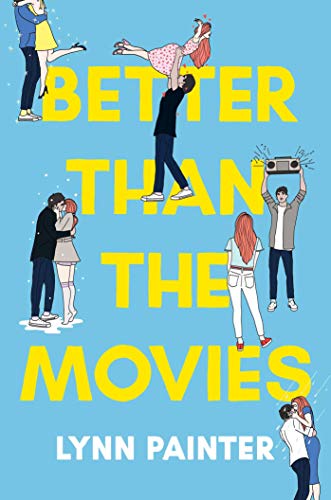
Liz Buxbaum has always known that Wes Bennett was not boyfriend material. You would think that her next-door neighbor would be a prince candidate for her romantic comedy fantasies, but Wes has only proven himself to be a pain in the butt, ever since they were little. Wes was the kid who put a frog in her Barbie Dreamhouse, the monster who hid a lawn gnome's severed head in her little homemade neighborhood book exchange.Flash forward ten years from the Great Gnome Decapitation. It's Liz's senior year, a time meant to be rife with milestones perfect for any big screen, and she needs Wes's help. See, Liz's forever crush, Michael, has just moved back to town, and—horribly, annoyingly—he's hitting it off with Wes. Meaning that if Liz wants Michael to finally notice her, and hopefully be her prom date, she needs Wes. He's her in.
But as Liz and Wes scheme to get Liz her magical prom moment, she's shocked to discover that she actually likes being around Wes. And as they continue to grow closer, she must reexamine everything she thought she knew about love—and rethink her own perception of what Happily Ever After should really look like. [from the publisher]
Con: Libby is painfully slow to come to terms with her true attraction; repetitive; *I didn't like the way Wes masqueraded his affection for Libby by antagonizing her
18 July 2022
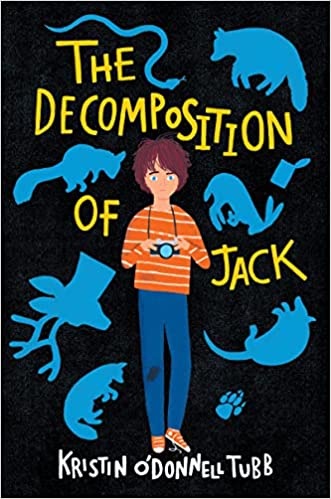
Middle school is always hard, but when you’re known as the Roadkill Kid, well, it’s even harder. Jack’s mom collects roadkill—it’s her job, and she’s very good at it. Ever since Jack’s mom and dad got divorced, Jack has stepped into the role of Mom’s co-scientist.One day while tending to the roadkill garden, Jack believes he spots a cougar in the wilderness beyond his backyard. A cougar in Tennessee? They’re supposed to be extinct. So, when Jack has to choose an animal to research for his Earth Science class, he picks cougar.
As pressure mounts on Jack to complete his project and to be Mom’s business partner, the mystery of the cougar feels too big to solve. Jack knows what the decomposition of an animal—and a family—looks like, so can he figure out how to bring them back to life? [from the publisher]
Thank you to NetGalley and Harper Audio for making this voicegalley (not human-narrated audiobook) ARC of the book available in exchange for an honest review. Publication is expected October 11.
17 July 2022
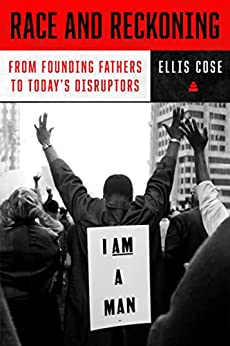
Ranging from chattel slavery, through the New Deal to the Covid pandemic, a groundbreaking work that investigates how pivotal decisions have established and perpetuated discriminatory practices, even as the rise of disinformation and other modern advertising techniques have plunged democracy into an ever-deepening crisis.Throughout our nation's history, numerous racialized decisions have solidified the fates of generations of citizens of color. Some of the earliest involved race-based slavery, the removal of Indigenous peoples from their lands, and the exclusion of most Asians. More have proliferated over time. While America grew into a superpower in the twentieth century, it continued to discriminate against people of color—both soldiers who served overseas and civilians on the home front, herding Japanese Americans into internment camps during World War II and denying Black citizens their right to vote.
American Politicians have waxed eloquently and endlessly about bettering the nation. But bettering it for whom? journalist and cultural commentator Ellis Cose asks. From Reconstruction to the New Deal to the unceasing fight for civil rights, Cose reveals how the hopes of many Americans for a true multicultural democracy have been repeatedly frustrated by white nationalists skilled at weaponizing racial anxieties of other whites.
In Race and Reckoning Cose dissects chapter-by-chapter how America's overall narrative breeds racial resentment rooted in conjecture over fact. Through rigorous research and with astute detail, Cose uncovers how, at countless points in history, America's leaders have upheld a narrative of American greatness rooted in racism, as he offers a hopeful yet clear-eyed vision of American possibility.
It is a story grounded in history, and it demolishes the myths that ultimately allowed one of the most ill-prepared, unethical, vindictive, and truth-challenged politicians in history to position himself as America's savior by tapping into the nation's darkest tendencies. [from the publisher]
15 July 2022
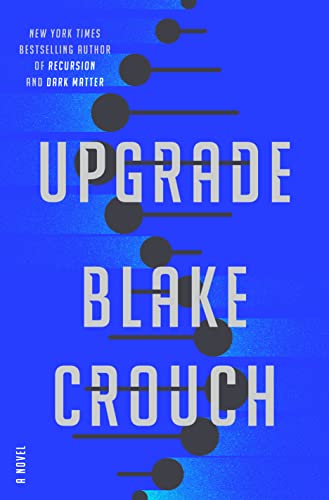
“You are the next step in human evolution.”At first, Logan Ramsay isn’t sure if anything’s different. He just feels a little . . . sharper. Better able to concentrate. Better at multitasking. Reading a bit faster, memorizing better, needing less sleep.
But before long, he can’t deny it: Something’s happening to his brain. To his body. He’s starting to see the world, and those around him—even those he loves most—in whole new ways.
The truth is, Logan’s genome has been hacked. And there’s a reason he’s been targeted for this upgrade. A reason that goes back decades to the darkest part of his past, and a horrific family legacy.
Worse still, what’s happening to him is just the first step in a much larger plan, one that will inflict the same changes on humanity at large—at a terrifying cost.
Because of his new abilities, Logan’s the one person in the world capable of stopping what’s been set in motion. But to have a chance at winning this war, he’ll have to become something other than himself. Maybe even something other than human.
And even as he’s fighting, he can’t help wondering: what if humanity’s only hope for a future really does lie in engineering our own evolution? [from the publisher]
After the huge disappointment of my previous read—which was billed as a science fiction mystery/thriller [though I believe it's really a sci-fi mystery (not thriller)—I've discussed the differences before]—I debated whether to read Upgrade—a science fiction thriller—immediately or to put a book or more between. I'm glad that I dove in immediately. This book is longer than Scarecrow, but has a much better pace—there's less repetition (if any) and much more depth, action, and excitement. In fact, perhaps Upgrade could have been even slightly longer without diminishing its effect. I've read and very-much-enjoyed two other books of Crouch's previously—he'll stay on my radar as a preferred author.
13 July 2022
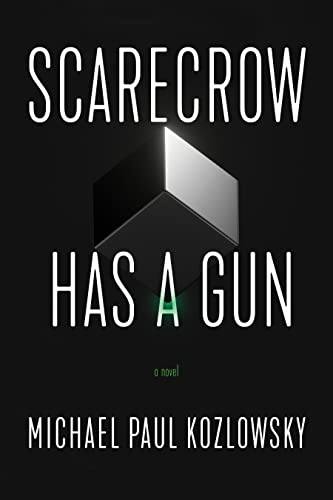
Never trust other people’s memories, and watch out for your own.Although we’ve all seen The Wizard of Oz, few of us recall that the Scarecrow is holding a gun in the haunted forest. Strange it may seem, but this sort of thing happens all the time. Something jarring—something right in front of our faces—escapes our memory altogether, no matter how many times we witnessed it.
This new novel is the story of a man’s ongoing struggle with tormenting lacunae in his own memory. Tortured by his inability to remember details of his wife’s murder—even though he was an eyewitness—Sean Whittlesea pins hopes on a high-tech device purportedly able to provide him with accurate access to every detail of his past.
A haunting question emerges through Sean’s quest for answers. Are we the masters of our memories, or are we their helpless pawns? [from the publisher]
The book is classified as a science fiction mystery/thriller. Given that mystery has always been my favorite genre, and that I also read heavily in science fiction, I jumped at the chance to request to read it as soon as I saw it in early April. Sadly, not only did I not love the book, I actively disliked it. Here are just a few of the reasons:
- The Widowers' Club contests were creepy. At best, one was voyeuristic. At worst, most of the contents were extremely violent.
- All of the characters and relationships are highly unpleasant.
- I predicted the murderer before the 25% mark.
- The book is relatively short, but felt sooooooooooo long. It was a trudge.
- The book is full of violence, misogyny, and psychological manipulation. It's not limited to one character, event, or purpose—it's just pervasive and oppressive.
As always, I'll point out that your mileage may vary, and I welcome discussion with other readers.
Thank you, NetGalley and Imbrifex Audio, for the audio ARC of the book in exchange for an honest review. Publication is expected August 2.
10 July 2022

When Valerie Jarrett interviewed a promising young lawyer named Michelle Robinson in July 1991 for a job in Chicago city government, neither knew that it was the first step on a path that would end in the White House. Jarrett soon became Michelle and Barack Obama's trusted personal adviser and family confidante; in the White House, she was known as the one who got him and helped him engage his public life. Jarrett joined the White House team on January 20, 2009 and departed with the First Family on January 20, 2017, and she was in the room—in the Oval Office, on Air Force One, and everywhere else—when it all happened. No one has as intimate a view of the Obama Years, nor one that reaches back as many decades, as Jarrett shares in Finding My Voice.Born in Iran (where her father, a doctor, sought a better job than he could find in segregated America), Jarrett grew up in Chicago in the 60s as racial and gender barriers were being challenged. A single mother stagnating in corporate law, she found her voice in Harold Washington's historic administration, where she began a remarkable journey, ultimately becoming one of the most visible and influential African-American women of the twenty-first century.
From her work ensuring equality for women and girls, advancing civil rights, reforming our criminal justice system, and improving the lives of working families, to the real stories behind some of the most stirring moments of the Obama presidency, Jarrett shares her forthright, optimistic perspective on the importance of leadership and the responsibilities of citizenship in the twenty-first century, inspiring readers to lift their own voices. [from the publisher]
It's no wonder that Jarrett is so determined, intelligent, and accomplished—she comes from a long line of super-high-achievers. [I would have liked to meet several of her ancestors, as well.] Jarrett and I both grew up in Hyde Park/Kenwood, but our age difference kept us from meeting then. Both her personal and professional lives are fascinating.
Incidentally, Justin and Hannah gave me The Ultimate Reading Challenge: Complete a goal, open an envelope, and reveal your bookish prize! for my birthday this year. This book opened the envelope “Read a book that's been sitting on your shelf, unread, for more than a year.” The book was published on April 2, 2019; I shelved it six days later. This was a good pick for this week—it was inspiring and fun.
8 July 2022
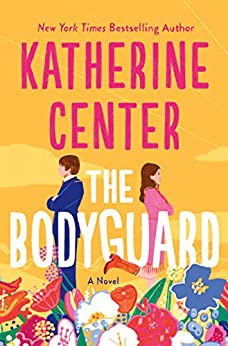
She's got his back.Hannah Brooks looks more like a kindergarten teacher than somebody who could kill you with a wine bottle opener. Or a ballpoint pen. Or a dinner napkin. But the truth is, she’s an Executive Protection Agent (aka “bodyguard”), and she just got hired to protect superstar actor Jack Stapleton from his middle-aged, corgi-breeding stalker.
He’s got her heart.
Jack Stapleton’s a household name—captured by paparazzi on beaches the world over, famous for, among other things, rising out of the waves in all manner of clingy board shorts and glistening like a Roman deity. But a few years back, in the wake of a family tragedy, he dropped from the public eye and went off the grid.
They’ve got a secret.
When Jack’s mom gets sick, he comes home to the family’s Texas ranch to help out. Only one catch: He doesn’t want his family to know about his stalker. Or the bodyguard thing. And so Hannah—against her will and her better judgment—finds herself pretending to be Jack’s girlfriend as a cover. Even though her ex, like a jerk, says no one will believe it.
What could possibly go wrong???
Hannah hardly believes it, herself. But the more time she spends with Jack, the more real it all starts to seem. And there lies the heartbreak. Because it’s easy for Hannah to protect Jack. But protecting her own, long-neglected heart? That’s the hardest thing she’s ever done. [from the publisher]
Besides the absence of the above-mentioned offensive items, I enjoyed The Bodyguard because of these positive inclusions: humor; a strong, independent, skillful female protagonist (yes, Hannah has some insecurities—she's human); Jack's warm family (for the most part); and acknowledgment of the importance of event-suitable footwear.
Thank you, NetGalley and Macmillan Audio, for the audio ARC of the book in exchange for an honest review. Publication is expected July 19.
6 July 2022
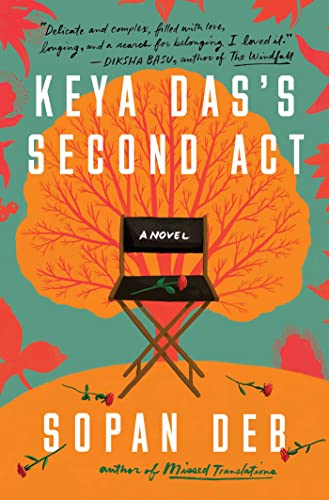
Shantanu Das is living in the shadows of his past. In his fifties, he finds himself isolated from his traditional Bengali community after a devastating divorce from his wife, Chaitali; he hasn’t spoken to his eldest daughter Mitali in months; and most painfully, he lives each day with the regret that he didn’t accept his teenaged daughter Keya after she came out as gay. As the anniversary of Keya’s death approaches, Shantanu wakes up one morning utterly alone in his suburban New Jersey home and realizes it’s finally time to move on.This is when Shantanu discovers a tucked-away box in the attic that could change everything. He calls Mitali and pleads with her to come home. She does so out of pity, not realizing that her life is about to shift.
Inside the box is an unfinished manuscript that Keya and her girlfriend were writing. It’s a surprising discovery that brings Keya to life briefly. But Neesh Desai, a new love interest for Mitali with regrets of his own, comes up with a wild idea, one that would give Keya more permanence: what if they are to stage the play? It could be an homage to Keya’s memory, and a way to make amends. But first, the Dases need to convince Pamela Moore, Keya’s girlfriend, to give her blessing. And they have to overcome ghosts from the past they haven’t met yet. [from the publisher]
3 July 2022
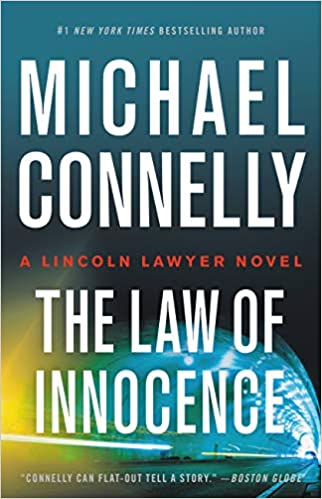
Defense attorney Mickey Haller is pulled over by police, who find the body of a client in the trunk of his Lincoln. Haller is charged with murder and can't make the exorbitant $5 million bail slapped on him by a vindictive judge.Mickey elects to defend himself and must strategize and build his defense from his jail cell in the Twin Towers Correctional Center in downtown Los Angeles, all the while looking over his shoulder—as an officer of the court he is an instant target.
Mickey knows he's been framed. Now, with the help of his trusted team, he has to figure out who has plotted to destroy his life and why. Then he has to go before a judge and jury and prove his innocence. [from the publisher]
The sixth book is in keeping with its predecessors in terms of tone and formula. It's set near the beginning of the COVID-19 pandemic. There were fewer appearances by Lorna and Cisco. Mickey & Maggie's daughter is now in college (or law school, maybe?). Mickey's love interest from the previous book makes an appearance. As always, there's a little surprise toward the end.
As far as I can tell, Connelly has written 23 Hieronymus “Harry” Bosch books so far. When I start that series, I'll try to show greater restraint and not consume them all in the space of a month . . . or even six of them in a month. [I started The Lincoln Lawyer (book 1) on June 3. I finished The Law of Innocence (book 6) on July 3.] I have only watched an episode or two of the Bosch television series. Binge opportunities abound!
30 June 2022
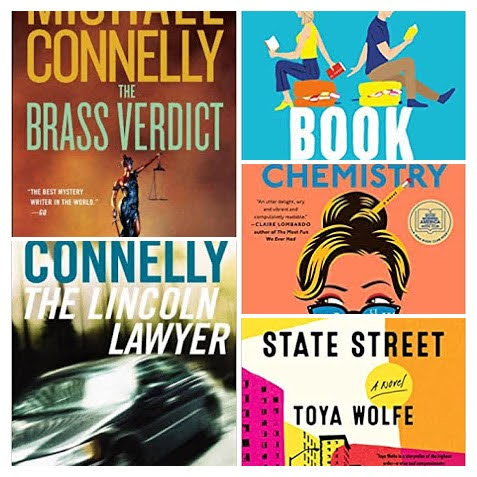
4-star reads
- The Lincoln Lawyer, Michael Connelly
- The Brass Verdict, Michael Connelly
- Book Lovers, Emily Henry
- Lessons in Chemistry, Bonnie Garmus (4.66)
- Last Summer on State Street, Toya Wolfe
honorable mention
- The Reversal, Michael Connelly (3.66)
- Things to Look Forward To, Sophie Blackall (3.5)
- The Fifth Witness, Michael Connelly (3.5)
- The Gods of Guilt, Michael Connelly (3.5)
- Adult Assembly Required, Abbi Waxman (3.66)
30 June 2022
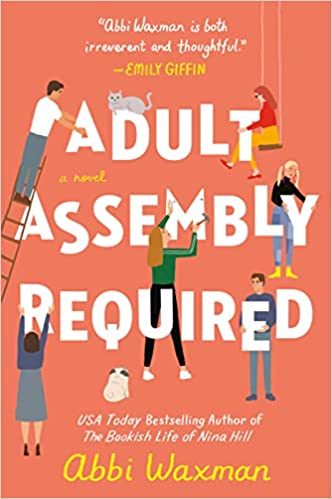
When Laura Costello moves to Los Angeles, trying to escape an overprotective family and the haunting memories of a terrible accident, she doesn’t expect to be homeless after a week. (She’s pretty sure she didn’t start that fire—right?) She also doesn't expect to find herself adopted by a rogue bookseller, installed in a lovely but completely illegal boardinghouse, or challenged to save a losing trivia team from ignominy . . . but that’s what happens. Add a regretful landlady, a gorgeous housemate and an ex-boyfriend determined to put himself back in the running and you’ll see why Laura isn’t really sure she’s cut out for this adulting thing. Luckily for her, her new friends Nina, Polly and Impossibly Handsome Bob aren't sure either, but maybe if they put their heads (and hearts) together they’ll be able to make it work for them. [from the publisher]
There's so much of Waxman's trademark gentle, often bookish humor that I can't possibly share all my bookmarks. Here's just a taste.
- In a note from landlord Maggie to Laura: “Animals have all been fed. Don't listen to their lies.” [Chapter Four]
- This interchange between Nina and her boyfriend, Tom, in front of their friends in Chapter Twenty-Nine:
“Tell the normal people what you moved out of your schedule to make room for both me and trivia.”
“Additional reading,” said Nina defiantly.
“Which was additional to. . . ?”
“Work reading,” she said in a slightly quieter voice.
“Which was on top of. . . ?”
“Regular reading,” she muttered.
Tom turned up his palms and grinned at Bob.
- Nina sings the praises of Reese's peanut butter pumpkins in Chapter Thirty-Nine: “They're the best of the shapes. . . . It's the perfect ratio of chocolate to peanut butter.” young Claire echoes the sentiment in Chapter 40. [I prefer the ratio in Reese's peanut butter eggs, in case you were curious.]
In addition to the humor, the many various relationships in the book are key. [Toward the end, the romantic denial between Laura and Impossibly Handsome Bob became just too much, in my opinion; but it didn't sour me on the book overall.] I typically like Waxman's books (though—shockingly—I did bail on one), and the latest is no exception. They're easy and comforting to read—my drug of choice to counter the currently atrocious happenings in real life.
28 June 2022
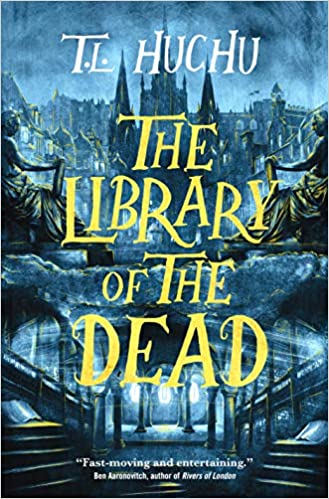
When a child goes missing in Edinburgh's darkest streets, young Ropa investigates. She'll need to call on Zimbabwean magic as well as her Scottish pragmatism to hunt down clues. But as shadows lengthen, will the hunter become the hunted?When ghosts talk, she will listen. . . .
Ropa dropped out of school to become a ghostalker. Now she speaks to Edinburgh's dead, carrying messages to the living. A girl's gotta earn a living, and it seems harmless enough. Until, that is, the dead whisper that someone's bewitching children—leaving them husks, empty of joy and life. It's on Ropa's patch, so she feels honor-bound to investigate. But what she learns will change her world.
She'll dice with death (not part of her life plan . . .), discovering an occult library and a taste for hidden magic. She'll also experience dark times. For Edinburgh hides a wealth of secrets, and Ropa's gonna hunt them all down. [from the publisher]
MC Ropa is a reader after my own heart, though—she is an audiobook devotee. “I walk around all day, and the way I see it, if I'm walking and learning, then I'm doubling time.” [Chapter 2]
27 June 2022

Allison Brody is thirty-two and newly arrived on the East Coast after just managing to flee her movie producer boyfriend. She has some money, saved up from years of writing and waitressing, and so she spends it, buying a small house on the beach. But then a Category 3 hurricane makes landfall and scatters her home up and down the shore, leaving Allison adrift.Should she go home from the bar with the strange cameraman and stay in his guest room? Is that a glass vase he smashed on her skull? Can she wipe the blood from her eyes, get in her car, and drive to her mother's? Does she really love the brain surgeon who saved her, or is she just using him for his swimming pool? And is it possible to ever truly heal without seeking some measure of revenge?
A gripping, provocative novel that walks a knife's edge between comedy and horror, Hurricane Girl is the work of a singular talent, a novelist unafraid to explore the intersection of love, sex, violence, and freedom—while celebrating the true joy that can be found in a great swim and a good turkey sandwich. [from the publisher]
The writing is choppy and basic. My overwhelming feeling during the entire book was boredom. [I was going to say “ennui”, but it doesn't merit the more interesting word.] I often omit the final paragraph in the publisher's description—you know, the money shot—but I had to include this one because the book falls so very short on both the promised comedy and horror sides of the knife's edge. Allison is uninspired and immature. The (non-)surprise ending didn't elicit even the tiniest gasp from this horror lightweight.
As is not infrequently the case, my opinion is in the minority for this recent release. If you read it, let me know how it worked for you. I hope the answer is “better!”
26 June 2022
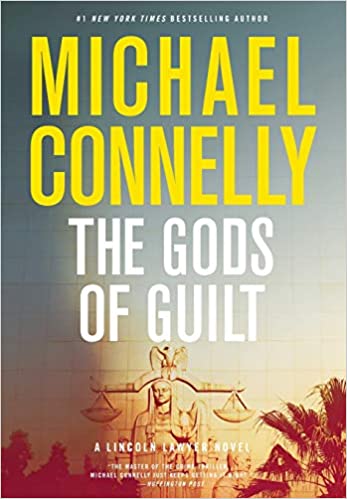
Mickey Haller gets the text, "Call me ASAP—187," and the California penal code for murder immediately gets his attention. Murder cases have the highest stakes and the biggest paydays, and they always mean Haller has to be at the top of his game.When Mickey learns that the victim was his own former client, a prostitute he thought he had rescued and put on the straight and narrow path, he knows he is on the hook for this one. He soon finds out that she was back in LA and back in the life. Far from saving her, Mickey may have been the one who put her in danger.
Haunted by the ghosts of his past, Mickey must work tirelessly and bring all his skill to bear on a case that could mean his ultimate redemption or proof of his ultimate guilt. [from the publisher]
24 June 2022
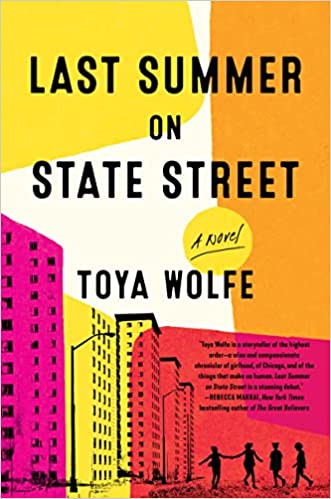
Felicia “Fe Fe” Stevens is living with her vigilantly loving mother and older teenaged brother, whom she adores, in building 4950 of Chicago's Robert Taylor Homes. It's the summer of 1999, and her high-rise is next in line to be torn down by the Chicago Housing Authority. She, with the devout Precious Brown and Stacia Buchanan, daughter of a Gangster Disciple Queen-Pin, form a tentative trio and, for a brief moment, carve out for themselves a simple life of Double Dutch and innocence. But when Fe Fe welcomes a mysterious new friend, Tonya, into their fold, the dynamics shift, upending the lives of all four girls.As their beloved neighborhood falls down around them, so too do their friendships and the structures of the four girls' families. Fe Fe must make the painful decision of whom she can trust and whom she must let go. Decades later, as she remembers that fateful summer—just before her home was demolished, her life uprooted, and community forever changed—Fe Fe tries to make sense of the grief and fraught bonds that still haunt her and attempts to reclaim the love that never left. [from the publisher]
There wasn’t enough caution tape in the world for our neighborhood. [Chapter 18: Salvation]
My favorite passage (probably) comes just a hair before the very end, so I won't share it with you—I'll leave it for you to discover and sit with when you get there. The ending was just right.
23 June 2022
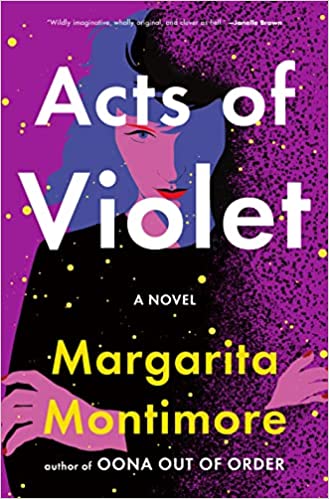
Nearly a decade ago, iconic magician Violet Volk performed her greatest trick yet: vanishing mid-act. Though she hasn’t been seen since, her hold on the public hasn’t wavered. While Violet sought out the spotlight, her sister Sasha, ever the responsible one, took over their mother’s salon and built a quiet life for her daughter, Quinn. But Sasha can never seem to escape her sister’s orbit or her memories of their unresolved, tumultuous relationship. Then there’s Cameron Frank, determined to finally get his big break hosting a podcast devoted to all things Violet—though keeping his job hinges on an exclusive interview with Sasha, the last person who wants to talk to him.As the ten-year anniversary approaches, the podcast picks up steam, and Cameron’s pursuit of Sasha becomes increasingly intrusive. He isn’t the only one wondering what secrets she might be keeping: Quinn, loyal to the aunt she always idolized, is doing her own investigating. Meanwhile, Sasha begins to experience an unsettling series of sleepwalking episodes and coincidences, which all lead back to Violet. Pushed to her emotional limits, Sasha must finally confront the most painful truths about her sister, and herself, even at the risk of losing everything.
Alternating between Sasha’s narration and Cameron’s podcast transcripts, interspersed with documents that offer a tantalizing peek at Violet herself, Acts of Violet is an utterly original, propulsive story of fame, deception, and forgiveness that will make you believe in magic. [from the publisher]
This work is especially well-served by reading with one's ears because it varies in style from chapter to chapter, told as regular narrative, podcasts, interviews, and letters. The audio edition boasts 10 narrators, which also enhances the variety of chapter formats. I'm not a podcast follower or true-crime fan—if you are either/both, the audio edition of this book may be especially fun for you. Mystery is the predominant genre.
In addition to Violet, Sasha, Quinn, and Cameron, as mentioned in the publisher's summary, Sasha's husband/Quinn's dad is a key character, and there are several segments featuring an older magician who perhaps served as a mentor to Violet. Overall, my favorite chapters were those in the present day, primarily starring Sasha and her family.
Thank you, NetGalley and Macmillan Audio, for the audio ARC of the book in exchange for an honest review. Publication is expected July 5.
22 June 2022
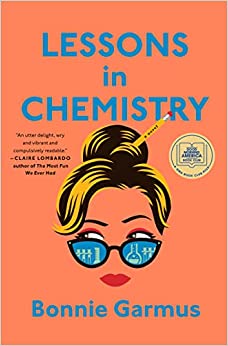
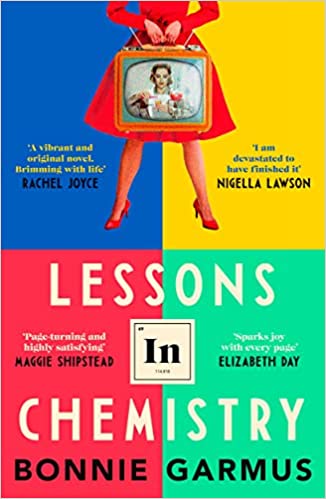
Chemist Elizabeth Zott is not your average woman. In fact, Elizabeth Zott would be the first to point out that there is no such thing as an average woman. But it's the early 1960s and her all-male team at Hastings Research Institute takes a very unscientific view of equality. Except for one: Calvin Evans; the lonely, brilliant, Nobel-prize nominated grudge-holder who falls in love with—of all things—her mind. True chemistry results.But like science, life is unpredictable. Which is why a few years later Elizabeth Zott finds herself not only a single mother, but the reluctant star of America's most beloved cooking show Supper at Six. Elizabeth's unusual approach to cooking (“combine one tablespoon acetic acid with a pinch of sodium chloride”) proves revolutionary. But as her following grows, not everyone is happy. Because as it turns out, Elizabeth Zott isn't just teaching women to cook. She's daring them to change the status quo. [from the publisher]
As long as I've started out with the bad . . . content warnings include beating, rape, domestic abuse, child neglect and abuse, death, and death threats.
Less bad than misleading: the book cover pictured above on the top is the American edition, which makes the book look like fluffy “chick lit” (a term for which I don't care, as you know). It's not that. The cover pictured on the bottom is the British edition. An exclusive Waterstones edition (with the British cover) also has the paper edges stamped with elements, periodic table–style. Like most of my bookish friends who have read the book, I find the American marketing choices curious at best.
Now that we've got the negatives out of the way, let's get down to the good stuff! Lessons In Chemistry very much appealed to and resonated with me. I saw myself, friends, and family in multiple parts of the story—good and bad.
In addition to Elizabeth and Mad Zott, several characters are prominent in and especially important to the story, including Elizabeth's neighbor, Harriet Sloane; Walter Pine, Elizabeth's TV boss and the father of one of Mad's classmates; and Elizabeth's rescue dog, Six-Thirty, who understands a phenomenal number of English words and uses his knowledge to great end. There's also a priest (whose name escapes me at the moment) who is helpful to Mad when she is searching for information about her late father, Calvin. The relationships between these characters are developed beautifully. I cared about them and their stories.
There were so many weighty and infuriating topics in the book, which made it a heavy read overall (again, not a book that deserves the cover pictured above top). There's also humor, vulnerability, hope, and love, rounding out the experience. It's rare that I enjoy a work of fiction quite this much—let alone one that includes so much injustice and violence.
I bookmarked 16 passages to revisit later (again, good and bad), including the following response from the author about the importance of rowing to the story—and life—in the bonus interview at the end of the audiobook.
In terms of rowing, I wanted it in there because . . . rowing is a metaphor for balance. It's a metaphor for collaboration and cooperation. It's the art of working together, of recognizing our commonalities. And, while those are strengths—for everyone they're strengths—but, in a boat, how well you cooperate with each other is the difference between winning and losing. It's not who's the biggest; it's who cooperates best with their teammates. Everyone rows as one, and that is hard. The author-cited statistic by Elizabeth that we're 99% the same happens to be true, and it's also part of rowing. Things like systemic racism and misogyny and religious zealotry are divisive elements, and they're not based in science. They're cultural constructs, and they're usually used to control people—to keep some in charge and others under their thumbs. Imbalance in a boat spells failure, and the same is true in everyday life. So, when we choose to create situations dominated by one race, one gender, one religion, one outlook, we create imbalance, and the result is havoc. —Interview with Bonnie Garmus, conducted by British journalist and speaker Pandora Sykes
21 June 2022
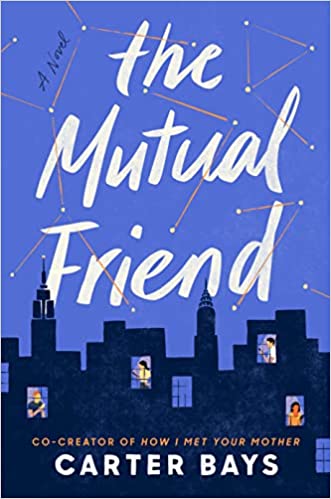
It's the summer of 2015, and Alice Quick needs to get to work. She's twenty-eight years old, grieving her mother, barely scraping by as a nanny, and freshly kicked out of her apartment. If she can just get her act together and sign up for the MCAT, she can start chasing her dream of becoming a doctor . . . but in the Age of Distraction, the distractions are so distracting. There's her tech millionaire brother's religious awakening. His picture-perfect wife's emotional breakdown. Her chaotic new roommate's thirst for adventure. And, of course, there's the biggest distraction of all: Love. [from the publisher]
I had high expectations because of the overwhelmingly glowing reviews (granted, there aren't that many yet) and because the author is a co-creator of the TV series How I Met Your Mother. Several reviewers promised that it would all come together in a spectacular end. I'll grant that the ending is somewhat successful in terms of connecting the dots and bringing things to a satisfying close. However, it doesn't make up for the fact that it's too fluffin' long! If the story were a lot more engaging and the characters were significantly more appealing, the length might be warranted. But the vast majority of the characters are over-the-top: too superficial, self-absorbed, petty, and jealous. The story finally started getting mildly interesting at the 90% mark—roughly page 432 is a little long to wait for a reward, isn't it? [One of the worst characters performs an act of kindness only slightly before this point—again, it's too little too late in my book.] In the entire almost 500 pages, I only marked three passages for additional reflection. There are much shorter works in which I have wanted to remember much more.
If you use my less-stellar reviews as your marker for a promising book, you like taking the scenic route, or you have nothing but time to read, this one could be for you.
19 June 2022
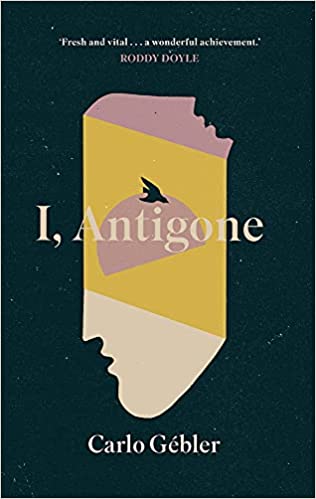
The mythical Greek king, Oedipus, is no stranger to tragedy. As a baby, he is left to die on the mountainside of Thebes by his royal parents after the Oracle of Delphi prophesies that he will kill his father and marry his mother. Pitied by the shepherd tasked with leaving him, Oedipus is given to another royal family and grows up ignorant of his past as a foreign prince.Returning to Thebes by chance many years later, he defeats the Sphinx terrorising the city by answering her riddle and becomes king. From here on a series of tragic events begin to unfurl. . . .
Many years later, his daughter Antigone takes on the role of biographer and is determined to set the record straight about her father's life and death.
In a beautiful retelling of the popular myth, Antigone meditates on the illusion of free will, the power of fate, and her powerful family's demise. An astonishing contribution to the reclaimed classics, "I, Antigone" is perfect for fans of Madeleine Miller, Jennifer Saint and Elodie Harper. [from the publisher]
Antigone is barely more than the narrator. There is next-to-nothing relating to her personal actions or feelings. [Contrast this to Miller's Circe, the retelling of which I enjoyed and rated highly.]
Rape and murder abound. This shouldn't be a surprise to anyone who has read Greek mythology. Zeus abducts and rapes Europa, and Laius (Oedipus' father/Antigone's grandfather) rapes a young servant boy. Both are described graphically to no real “benefit” to this story, in my opinion. In the murder department: Laius orders that his infant son (later named Oedipus by his adoptive parents) be murdered (obviously, that doesn't happen); years later, Oedipus murders Laius (whom he doesn't know is his birth father), as prophesied; and there are other “less important” murders as well. Multiple suicides and maims are also described.
The most interesting and only possibly decent characters end up being the servants who care for Queen Jocasta (Oedipus' mother/later wife; Antigone's grandmother and mother) during her pregnancy and beyond, and who facilitate the rescue of the infant Oedipus. These servants are present throughout the story—they appear toward the end as Oedipus' true identity is discovered/revealed, bringing the story full-circle.
Thank you, NetGalley and Saga Egmont Audio, for the audio ARC of the book in exchange for an honest review. Publication is expected July 1.
17 June 2022
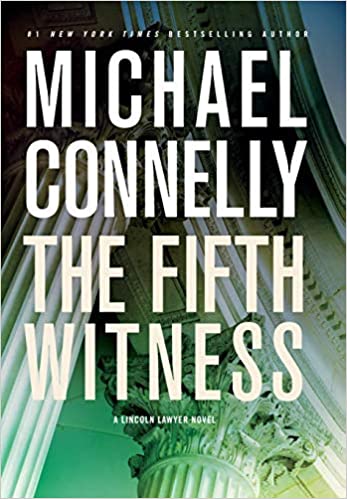
Mickey Haller has fallen on tough times. He expands his business into foreclosure defense, only to see one of his clients accused of killing the banker she blames for trying to take away her home.Mickey puts his team into high gear to exonerate Lisa Trammel, even though the evidence and his own suspicions tell him his client is guilty. Soon after he learns that the victim had black market dealings of his own, Haller is assaulted, too—and he's certain he's on the right trail.
Despite the danger and uncertainty, Haller mounts the best defense of his career in a trial where the last surprise comes after the verdict is in. [from the publisher]
16 June 2022
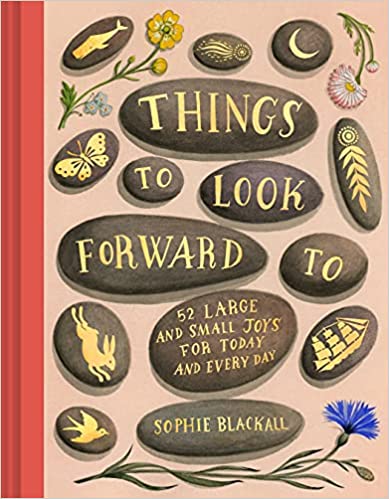
Everyone needs things to look forward to: big things and small things, on good days and on bad days, whether we actively create delight for ourselves or simply allow it to enter our lives.In these pages, beloved author and illustrator Sophie Blackall has gathered a collection of joys for all of us—reminders that every day the sun comes up and new babies are born. She includes suggestions that you bake muffins for a friend, or draw a face on an egg and put it in the fridge where it will smile at you each time you open the door. With wisdom, whimsy, and compassion, the 52 illustrated ideas in this book offer moments of uplift and serendipity for yourself and your loved ones.
A message of hope and solace in hard times and of joyful anticipation at times of new beginnings—whether you're grieving a loss or starting a new chapter—and for all the days in between—Things to Look Forward To is full of gentle reminders of the objects, occasions, gestures, and ideas that warm our hearts. There is always something bright on the horizon, and sometimes that horizon can be a lot closer than we think. [from the publisher]
Here are a couple of my favorites:
No. 27: Collecting Pebbles: But I live with someone who, much as he appreciates pebbles, believes that there is a limit to the number of pebbles you can keep in a home. That number is 288, apparently. So, if you have more than 288 pebbles, you can give them away. But first you can paint whales and comets and rabbits and moons on them. [62]
No. 31: Moving the Furniture Around: My grandmother, who never went on vacation, used to say, “A change is as good as a holiday.” [72]
15 June 2022
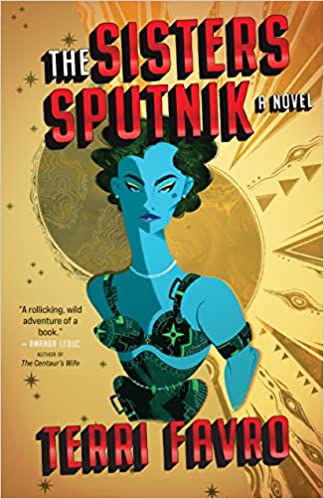
The Sisters Sputnik are a time-traveling trio of storytellers-for-hire who are much in demand throughout the multiverse of 2,052 alternate worlds. Each world was created by the detonation of a nuclear bomb in Earth Standard Time, home of the Sisters’ leader, aging comic book creator Debbie Reynolds Biondi, her 20-something apprentice Unicorn Girl, and their pop culture–loving AI, Cassandra. Tales of Earth Standard Time-That-Was, from World Wars to the space race to Hollywood celebrities, have turned the Sisters into storytelling rock stars.In a distant reality where books and music have disappeared, Debbie finds herself in bed with an old Earth Standard Time lover who begs her to tell him a story. Over one long, eventful night, she spins the epic of the Sisters’ adventures in alternate realities, starting with the theft of a book of evil comic strips in a post-pandemic Toronto full of ghost kitchens and robot-worshipping lost children known as junksters, to a disco-era purgatory where synthetic people are sending humans into the past through a reverse-engineered Statue of Liberty, to a version of the 1950s where the Sisters meet a rising star named Frank Sinatra and his girlfriend, the once-and-future Queen of England. [from the publisher]
At the start, I thought it was going to be great fun—perhaps in a similar vein to John Scalzi, Douglas Adams, or Dennis E. Taylor's Bobiverse series—science fiction with a little social commentary and a lot of humor. Well before the end, I felt like it was too heavy on the social commentary and trauma (however accurate and well-deserved) and far lighter on the humor. Most likely, it's just not the book for me at this time—though it is a fine book for this time. The acknowledgments indicate that the author started building one of the dystopian storylines before it became a reality in which we are currently living. While I have read heavily in the areas of politics and social and racial justice, I find myself currently needing more entertainment for entertainment's sake. That is, while I'm not ignoring that we are living in a tenuous time socially, politically, and historically (I read news every day), I need to have a break from that each day, too. Recreational reading needs to be my break time for now.
Cons: drags on; doesn't seem to trust that we'll get references unless we're hit over the head with them
Pros: many strong, clever, creative, daring, loyal, task- and team-oriented female characters; diversity in humans and other species (imagined or real—who am I to say?); quest to save life in multiple universes and times; interesting connections made between the times/universes
Thank you, NetGalley and ECW Press Audio, for the audio ARC of the book in exchange for an honest review. Publication is expected June 30.
13 June 2022
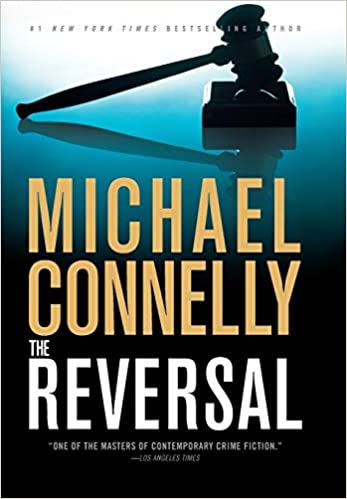
Longtime defense attorney Mickey Haller finds himself recruited to change stripes and prosecute the high-profile retrial of a brutal child murder.After 24 years in prison, new DNA evidence means convicted killer Jason Jessup has been granted another trial. Haller takes the case on the condition that he gets to choose his investigator, LAPD Detective Harry Bosch.
Haller becomes convinced Jessup is guilty. Together, Bosch and Haller set off on a case fraught with political and personal danger. Opposing them is Jessup, now out on bail, his defense attorney who excels at manipulating the media, and a runaway eyewitness reluctant to testify after so many years.
With the odds and the evidence against them, Bosch and Haller must nail a sadistic killer once and for all. What does Bosch think? If he's sure of anything, it's that Jason Jessup plans to kill again. [from the publisher]
As in all the series installments so far, this one exposes some of the challenges of the criminal justice system. Everyone is entitled to a defense, and the defense attorney must defend their client even if they know the client is guilty. In the series so far, we've met clients who were found guilty but were actually innocent and clients who were found innocent but were actually guilty. In each book, we read about the investigators' searches, Mickey's thought process and courtroom performance, and the goings-on inside the courtroom and in the community. [Fun fact: As a tween, I thought I wanted to be a lawyer, and I thought quite a bit, with ambivalence, about these very things. Sadly, I didn't have particularly good advisors/guidance on the vocations to which I might have been best-suited.]
I'm rating this installment ever-so-slightly lower. It was more gruesome and threatening overall. Content warnings include child abduction, murder of a child, sexual assault of children, drug abuse and addiction, and mass murder.
11 June 2022
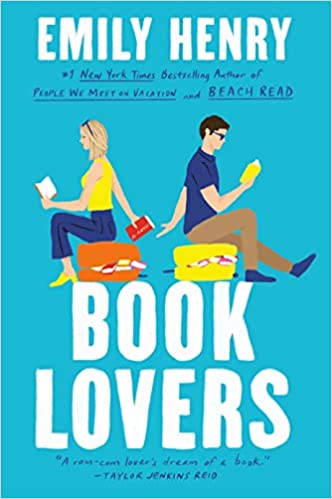
One summer. Two rivals. A plot twist they didn't see coming. . . .Nora Stephens’ life is books—she’s read them all—and she is not that type of heroine. Not the plucky one, not the laidback dream girl, and especially not the sweetheart. In fact, the only people Nora is a heroine for are her clients, for whom she lands enormous deals as a cutthroat literary agent, and her beloved little sister Libby.
Which is why she agrees to go to Sunshine Falls, North Carolina for the month of August when Libby begs her for a sisters’ trip away—with visions of a small-town transformation for Nora, who she’s convinced needs to become the heroine in her own story. But instead of picnics in meadows, or run-ins with a handsome country doctor or bulging-forearmed bartender, Nora keeps bumping into Charlie Lastra, a bookish brooding editor from back in the city. It would be a meet-cute if not for the fact that they’ve met many times and it’s never been cute.
If Nora knows she’s not an ideal heroine, Charlie knows he’s nobody’s hero, but as they are thrown together again and again—in a series of coincidences no editor worth their salt would allow—what they discover might just unravel the carefully crafted stories they’ve written about themselves. [from the publisher]
At the risk of beating a dead horse, I want to talk about the romance genre and books about books/libraries/bookshops. Both of these tend to disappoint me, but I keep on reading them because I'm determined in my belief that some author is capable of doing them right (for me).
First, let's talk about romance as a genre. I am of an age that thinks of the romance genre in terms of Harlequin romances and the like—the paperbacks with racy pictures on the cover, churned out to titillate bored housewives. The whole point of those is the sex. There's not a lot of plot required, and I imagine that they're quite formulaic (which isn't always a bad thing, of course—when one finds what they like, why not have more?). If that's your bag, cool—enjoy! Fast forward some decades, and now it seems that anything that includes a romantic relationship is considered part of the romance genre. Really?! That's so disappointing to me. I hope that romantic relationships are part of all adults' lives, if they so desire. I like to read about romantic relationships . . . as part of an interesting, well-rounded work of fiction. That is, I need more than the sex—I want to know about the whole lives. Incidentally, I looked up some much older works of fiction that include romantic relationships (e.g. Wuthering Heights, Jane Eyre, and Pride and Prejudice), and while there are a shocking number of readers who classify those as romance, there are significantly more who classify them both as classics and fiction. That's what I'm talking about! From now on, I'm not going to classify what I read as belonging to the romance genre unless it's just about sex. Instead, I will classify more fully-plotted books as fiction . . . and occasionally, if the shoe fits, also as a rom-com.
Now, on to books about books/libraries/bookshops. Don't tease a bookdragon with a bookish title or location if it's not pertinent to the plot. That is all.
Back to Book Lovers, there was a slightly irritating and angsty section of the book that dragged for me. Luckily, it's not the greatest portion of the book. I'm not a huge fan of the “we just can't make this relationship work for ridiculous and superficial reasons, so we mustn't ever see each other again” trope. Then again, if the characters were completely mature and secure, I guess it would be too easy? I don't know.
On a brighter and stronger note, here are some of the things that satisfied me in terms of “fiction that doesn't belong in the romance genre, but includes romantic relationship(s) as an element of the story” as well as book-themed books:
- As I've mentioned in reviews of other misclassified books that I've enjoyed (however rare), the characters don't fall into bed instantaneously—a relationship develops.
- It's funny! Really funny! Sometimes punny. Sometimes dark. Sometimes snarky. Lots of humor! Who doesn't need more of that right now?
- Books, bookish locations, and bookish people are prominent and believable. Nora is a book agent. Charlie is a book editor. Nora and Libby are lifelong readers. Charlie's mom owns a bookstore. One of Nora's clients (a writer) figures into several aspects of the story.
The bottom line is that Book Lovers was a winner for me. It was definitely worth the hold spot it hogged.
9 June 2022
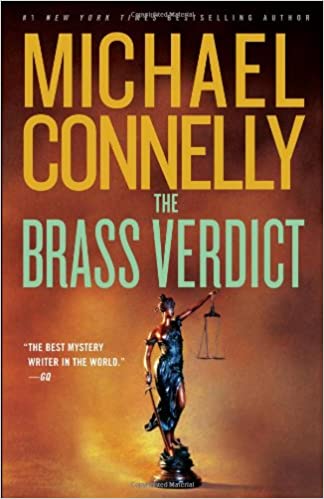
Things are finally looking up for defense attorney Mickey Haller. After two years of wrong turns, Haller is back in the courtroom. When Hollywood lawyer Jerry Vincent is murdered, Haller inherits his biggest case yet: the defense of Walter Elliott, a prominent studio executive accused of murdering his wife and her lover. But as Haller prepares for the case that could launch him into the big time, he learns that Vincent's killer may be coming for him next.Enter Harry Bosch. Determined to find Vincent's killer, he is not opposed to using Haller as bait. But as danger mounts and the stakes rise, these two loners realize their only choice is to work together. [from the publisher]
For those who are living vicariously through my dive into all things Lincoln Lawyer, here are the updates since my review of book one:
- I read two unrelated books between LL books one and two. I read one unrelated book between book two (that I am reviewing now) and book three (my current read, as I'm writing).
- I was able to borrow books two through six—hooray! Now the challenge is to read them all before they're due, while keeping up with my NetGalley list and my other library holds coming available. It's a good challenge!
- We rewatched the 2011 movie—based on the first book—on date night this week. Overall, I think the movie was more true to the book than the Netflix series was. There was one point toward the end of the movie in which I was disappointed with a plot point adaptation. I didn't think the tension in the movie was as high as in the first book—also a slight disappointment. Still, rewatching the movie was a treat—no regrets.
- The temptation is high to discuss the differences between the visual adaptations and the original books. I think I did pretty well resisting sharing with my partner this week, but he might beg to differ. He doesn't read as voraciously as I do—he has other responsibilities and interests—so it will be a while before he catches up with me in the book series. Please wish us both luck.
I'll see you again in a couple/few days to talk about book three!
7 June 2022
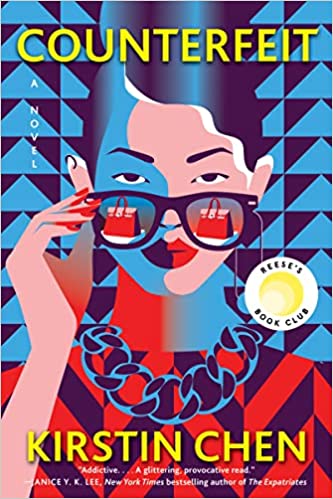
Money can't buy happiness... but it can buy a decent fake.Ava Wong has always played it safe. As a strait-laced, rule-abiding Chinese American lawyer with a successful surgeon as a husband, a young son, and a beautiful home—she's built the perfect life. But beneath this façade, Ava's world is crumbling: her marriage is falling apart, her expensive law degree hasn't been used in years, and her toddler's tantrums are pushing her to the breaking point.
Enter Winnie Fang, Ava's enigmatic college roommate from Mainland China, who abruptly dropped out under mysterious circumstances. Now, twenty years later, Winnie is looking to reconnect with her old friend. But the shy, awkward girl Ava once knew has been replaced with a confident woman of the world, dripping in luxury goods, including a coveted Birkin in classic orange. The secret to her success? Winnie has developed an ingenious counterfeit scheme that involves importing near-exact replicas of luxury handbags and now she needs someone with a U.S. passport to help manage her business—someone who'd never be suspected of wrongdoing, someone like Ava. But when their spectacular success is threatened and Winnie vanishes once again, Ava is left to face the consequences. [from the publisher]
5 June 2022
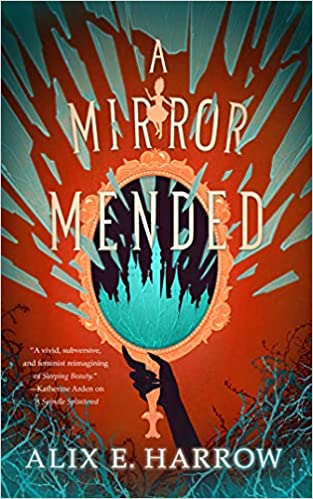
Zinnia Gray, professional fairy-tale fixer and lapsed Sleeping Beauty is over rescuing snoring princesses. Once you’ve rescued a dozen damsels and burned fifty spindles, once you’ve gotten drunk with twenty good fairies and made out with one too many members of the royal family, you start to wish some of these girls would just get a grip and try solving their own narrative issues.Just when Zinnia’s beginning to think she can't handle one more princess, she glances into a mirror and sees another face looking back at her: the shockingly gorgeous face of evil, asking for her help. Because there’s more than one person trapped in a story they didn’t choose. Snow White's Evil Queen has found out how her story ends and she's desperate for a better ending. She wants Zinnia to help her before it’s too late for everyone. Will Zinnia accept the Queen's poisonous request, and save them both from the hot iron shoes that wait for them, or will she try another path? [from the publisher]
Thank you, NetGalley and Macmillan Audio, for the audio ARC of the book in exchange for an honest review. Publication is expected June 14.
4 June 2022
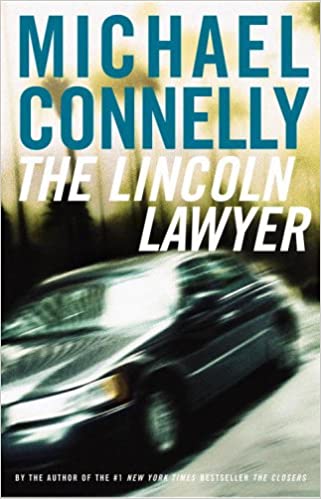
Mickey Haller has spent all his professional life afraid that he wouldn’t recognize innocence if it stood right in front of him. But what he should have been on the watch for was evil.Haller is a Lincoln Lawyer, a criminal defense attorney who operates out of the back seat of his Lincoln Town Car, traveling between the far-flung courthouses of Los Angeles to defend clients of every kind. Bikers, con artists, drunk drivers, drug dealers—they’re all on Mickey Haller’s client list. For him, the law is rarely about guilt or innocence—it’s about negotiation and manipulation. Sometimes it’s even about justice.
A Beverly Hills playboy arrested for attacking a woman he picked up in a bar chooses Haller to defend him, and Mickey has his first high-paying client in years. It is a defense attorney’s dream, what they call a franchise case. And as the evidence stacks up, Haller comes to believe this may be the easiest case of his career.
Then someone close to him is murdered and Haller discovers that his search for innocence has brought him face-to-face with evil as pure as a flame. To escape without being burned, he must deploy every tactic, feint, and instinct in his arsenal—this time to save his own life. [from the publisher]
- Read the entire book series in order. A more patient person might have waited three-or-so months in the library line for the audiobook. I just couldn't—I used one of my precious Audible credits on the first installment. [In all honesty, I hoard those—I still had three-quarters of my annual credits remaining to spend in the one-quarter of my membership year remaining, so it wasn't exactly a crisis that I parted with a credit.] I'm hoping to be able to read the rest of them on loan, but that's going to mean a breakneck pace. Hold on, folks! [I read Gods of Guilt, which is the fifth book, in May of 2014. I will reread it when its turn comes up.]
- Rewatch the 2011 movie The Lincoln Lawyer. I can't tell you how long it's been since I watched it, and I can hardly wait to watch it again. I typically either read the book or watch the movie, but some things are cool enough to consume both and appreciate on their own merits.
- Risk irritating my loved ones by dissecting miniscule to ginormous variations in plot points between the books and the TV series and movie.
On to the book. . . . Despite my understanding that the Netflix series is based on the second book, there was a storyline that was drawn from the first book. The details are not identical, but they're fairly close. I enjoyed meeting the characters in Mickey's inner circle. I was on the edge of my seat several times during the story, as exciting, tense, sad, or scary events played out. I enjoyed watching Mickey (and select other characters) put the puzzle pieces together. I'm a fan, so far. Bring on book two!
2 June 2022
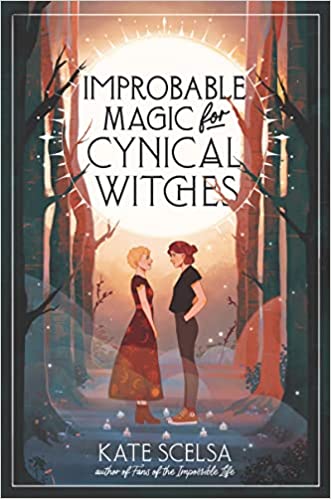
Seventeen-year-old Eleanor is the least likely person in Salem to believe in witchcraft—or think that her life could be transformed by mysterious forces. Ostracized by her classmates after losing her best friend and first love, Chloe, Eleanor has spent the past year in a haze, vowing to stay away from anything resembling romance.But when a handwritten guide to tarot arrives in the mail at the witchy souvenir store where Eleanor works, it seems to bring with it the message that magic is about to enter her life. Cynical Eleanor is quick to dismiss this promise, until real-life witch Pix shows up with an unusual invitation. Inspired by the magic and mystery of the tarot, Eleanor decides to open herself up to making friends with Pix and her coven of witches, and even to the possibility of a new romance.
But Eleanor’s complicated history in Salem continues to haunt her, and she is desperate to keep Pix from finding out the truth. Eleanor will have to reckon with the old ghosts that threaten to destroy everything, even her chance at new love. [from the publisher]
The Favorite Funny Quote of the Book Award goes to: “She must spend half her day rolling her eyes at him.” [refers to minor characters Jillian and Simon (a couple) in Chapter Nineteen]
Pros: Eleanor's mom and boss (mom's friend) are supportive of Eleanor; other supportive adults include chef and artist parents of a minor character; Pix is (mostly) appealing—sweet, tender, and sincere; a little bit of history; a smidge of social justice
Cons: Eleanor is whiny and self-pitying throughout; too many slow and repetitive flashback scenes
Content warnings include bullying; teenage alcohol and marijuana abuse; violence (mild to moderate); homophobia; stalking
1 June 2022
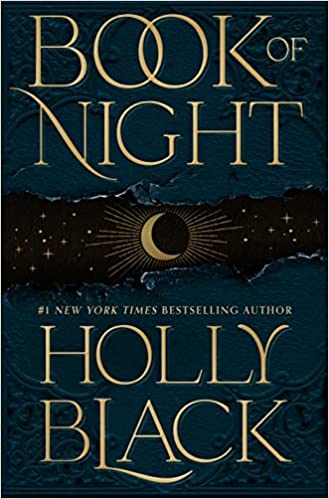
In Charlie Hall’s world, shadows can be altered, for entertainment and cosmetic preferences—but also to increase power and influence. You can alter someone’s feelings—and memories—but manipulating shadows has a cost, with the potential to take hours or days from your life. Your shadow holds all the parts of you that you want to keep hidden—a second self, standing just to your left, walking behind you into lit rooms. And sometimes, it has a life of its own.Charlie is a low-level con artist, working as a bartender while trying to distance herself from the powerful and dangerous underground world of shadow trading. She gets by doing odd jobs for her patrons and the naive new money in her town at the edge of the Berkshires. But when a terrible figure from her past returns, Charlie’s present life is thrown into chaos, and her future seems at best, unclear—and at worst, non-existent. Determined to survive, Charlie throws herself into a maelstrom of secrets and murder, setting her against a cast of doppelgängers, mercurial billionaires, shadow thieves, and her own sister—all desperate to control the magic of the shadows. [from the publisher]
31 May 2022

4-star reads
- Remarkably Bright Creatures, Shelby Van Pelt
- The Marlow Murder Club, Robert Thorogood
- Yerba Buena, Nina LaCour
- The Agathas, Kathleen Glasgow & Liz Lawson
- Bellweather Rhapsody, Kate Racculia
honorable mention
- Let's Dance, David Bowie (original lyrics) & Hannah Marks (Illustrator) (3.5)
- The Murder Rule, Dervla McTiernan (3.5)
- The Secret Life of Albert Entwistle, Matt Cain (3.5)
- The Gatekeeper, James Byrne (3.66)
30 May 2022
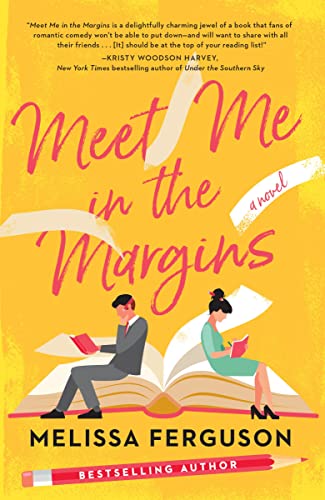
Savannah Cade is a low-level editor at Pennington Publishing, a prestigious publisher producing only the highest of highbrow titles. And while editing the latest edition of The Anthology of Medieval Didactic Poetry may be her day job, she has two secrets she’s hiding.One: She’s writing a romance novel.
Two: She’s discovered the Book Nook—a secret room in the publishing house where she finds inspiration for her “lowbrow” hobby.
After leaving her manuscript behind one afternoon, she returns to the nook only to discover someone has written notes in the margins. Savannah’s first response to the criticism is defensive, but events transpire that force her to admit that she needs the help of this shadowy editor after all. As the notes take a turn for the romantic, and as Savannah’s madcap life gets more complicated than ever, she uses the process of elimination to identify her mysterious editor—only to discover that what she truly wants and what she should want just might not be the same. [from the publisher]
Pro: the tiniest smattering of humor; a secret room; a loyal friend; a bar called Oxford Commas
Con: Savannah's supposedly loyal family that is actually totally toxic, including her nasty, selfish, narcissistic sister/roommate who is engaged to Savannah's ex of eight years, and their completely insensitive parents; Savannah's incredible and irritating lack of self-esteem and maturity; general tediousness
28 May 2022
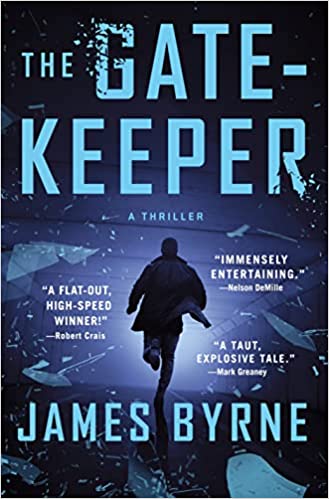
A highly trained team of mercenaries launches a well-planned, coordinated attack on a well-guarded military contractor—but they didn't count on one thing, the right man being in the wrong place at the right time.Desmond Aloysius Limerick (“Dez” to all) is a retired mercenary, and enthusiastic amateur musician, currently in Southern California, enjoying the sun and sitting in on the occasional gig, when the hotel he's at falls under attack. A skilled team attempts to kidnap the Chief legal counsel of Triton Expeditors, a major military contractor—in fact, Petra Alexandris is the daughter of the CEO—but their meticulously-planned, seamlessly executed scheme runs into the figurative 'spanner-in-the-works,' Dez himself.
After foiling the attack, and with nothing better to do, Dez agrees to help Alexandris with another problem she’s having—someone has embezzled more than a billion dollars from her company and left very few tracks behind. But Dez is a gatekeeper—one who opens doors and keeps them open—and this is just a door of another kind. And the door he opens leads to a dangerous conspiracy involving media manipulation, militias, an armed coup, and an attempt to fracture the United States themselves. There’s only one obstacle between the conspirators and success—and that is Dez, The Gatekeeper. [from the publisher]
The book is action-packed and fast-paced. There are new and old relationships that come into play for Dez and other characters, which makes things more interesting. There are numerous characters representing women and people of color in powerful positions, which is more refreshing than it should be. There's a fair amount of teamwork involved, even though Dez is star of the show.
There is explicit and graphic violence, blood, and gore at a level common to contemporary thrillers. It's gross while it's happening, but it doesn't comprise the bulk of the book.
I hope that Byrne continues writing. I would read another novel from him.
Thank you, NetGalley and Macmillan Audio, for the audio ARC of the book in exchange for an honest review. Publication is expected June 7.
26 May 2022
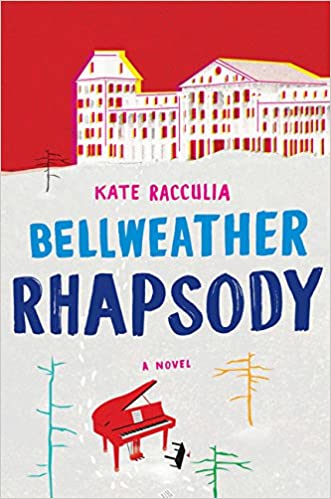
Fifteen years ago, a murder-suicide in room 712 rocked the grand old Bellweather Hotel and the young bridesmaid who witnessed it, Minnie Graves. Now hundreds of high school musicians have gathered at the Bellweather for the annual Statewide festival; Minnie has returned to face her demons; and a blizzard is threatening to trap them all inside. When a young prodigy disappears from infamous room 712, the search for her entwines an eccentric cast of conductors and caretakers, teenagers on the verge and adults haunted by memories. This is a genre-bending page-turner, full of playful nods to pop-culture classics from The Shining to Agatha Christie to Glee. [from the publisher]
I don't remember how long the book was on my TBR list, nor who recommended it to me. I found it so much more enjoyable than Racculia's Tuesday Mooney Talks to Ghosts, which I read immediately after its publication (as opposed to eight years after publication as is the case here).
I marked five passages, but won't share them for fear of ruining your fun. If you read it, let's chat!
24 May 2022
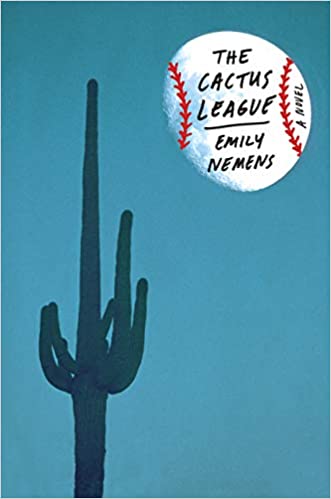
Jason Goodyear is the star outfielder for the Los Angeles Lions, stationed with the rest of his team in the punishingly hot Arizona desert for their annual spring training. Handsome, famous, and talented, Goodyear is nonetheless coming apart at the seams. And the coaches, writers, wives, girlfriends, petty criminals, and diehard fans following his every move are eager to find out why—as they hide secrets of their own.Humming with the energy of a ballpark before the first pitch, Emily Nemens' The Cactus League unravels the tightly connected web of people behind a seemingly linear game. Narrated by a sportscaster, Goodyear's story is interspersed with tales of Michael Taylor, a batting coach trying to stay relevant; Tamara Rowland, a resourceful spring-training paramour, looking for one last catch; Herb Allison, a legendary sports agent grappling with his decline; and a plethora of other richly drawn characters, all striving to be seen as the season approaches. It's a journey that, like the Arizona desert, brims with both possibility and destruction. [from the publisher]
Liking baseball (as I do) is not a prerequisite for reading this book. There are so many different characters beyond the team members. Does one have to be interested in Texas oil to enjoy the TV series Dallas, or in forensic anthropology to enjoy Kathy Reichs' Temperance Brennan book series (or the resultant TV series)? The baseball team just provides a framework.
Overall, the feel is vaguely soap opera–ish. Every character or situation is extreme or overly dramatic. Few, if any, of the characters are especially appealing or sympathy-inducing. There was one character of whom I might have liked to have seen more, though there is a related storyline with different characters.
I was adequately entertained. But this is definitely an audiobook I wish I could have borrowed.
22 May 2022
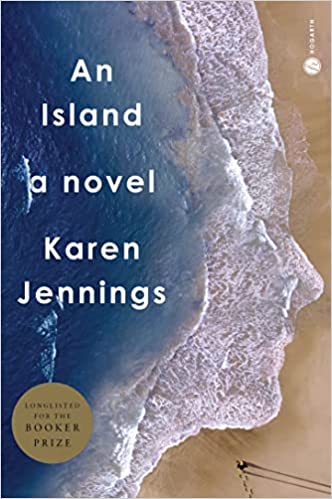
Samuel has lived alone on a small island off the coast of an unnamed African country for more than two decades. He tends to his garden, his lighthouse, and his chickens, content with a solitary life. Routinely, the nameless bodies of refugees wash ashore, but Samuel—who understands that the government only values certain lives, certain deaths—always buries them himself.One day, though, he finds that one of these bodies is still breathing. As he nurses the stranger back to life, Samuel—feeling strangely threatened—is soon swept up in memories of his former life as a political prisoner on the mainland. This was a life that saw his country exploited under colonial rule, followed by a period of revolution and a brief, hard-won independence—only for the cycle of suffering to continue under a cruel dictator. And he can't help but recall his own shameful role in that history. In this stranger's presence, he begins to consider, as he did in his youth: What does it mean to own land, or to belong to it? And what does it cost to have, and lose, a home? [from the publisher]
Did they not care about those who had put them in power with blood and sweat? Did they care nothing for their people? Power made men hateful. Power made men forget everyone but themselves. [The Third Day]
21 May 2022
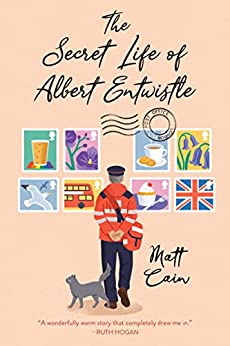
Every day, Albert Entwistle makes his way through the streets of his small English town, delivering letters and parcels and returning greetings with a quick wave and a “how do?” Everyone on his route knows Albert, or thinks they do—a man of quiet routines, content to live alone with his cat, Gracie.Three months before his sixty-fifth birthday, Albert receives a letter from the Royal Mail thanking him for decades of service and stating that he is being forced into retirement. At once, Albert’s simple life unravels. Without the work that fills his days, what will he do? He has no friends, family, or hobbies—just a past he never speaks of, and a lost love that fills him with regret. And so, rather than continue his lonely existence, Albert forms a brave plan to start truly living, to be honest about who he is . . . and to find George, the man with whom he spent one perfect spring and summer long ago.
One painful yet exhilarating step at a time, Albert begins searching for George and revealing his story to those around him. As he does, something extraordinary happens. Albert finds unlikely allies, new friends, and the courage to help others—even as he seeks the happiness he’s always denied himself. [from the publisher]
The story is quite predictable and somewhat formulaic, but the journey is pleasant. When Albert shows the least bit of attention to others—asking after their loved ones, sometimes sharing advice, and delivering treats—they feel good, he feels good, and relationships blossom. Especially notable supporting characters include Nicole—a black, teenage, single mom to toddler daughter Rini; and neighbor Edith—in her 80s—who used to design costumes for the local theatre. Also appearing are Nicole's boyfriend and his parents, various of Albert's coworkers, a new (and gay) couple in the neighborhood, someone from Edith's past, and a motley crew of people who aid in Albert's quest to find George.
There is an excessive amount of internal dialogue on the part of several characters, which is somewhat awkward and disconcerting. The book is occasionally repetitive, giving an almost-verbatim description of certain characters or situations several times. Simon Vance—who has narrated an incredible number and variety of books—does a fine job on this work (better with male voices than female, but not horrid even with the latter).
Content warnings include homophobia, violence, racism, isolation, emotional abuse from a parent, and death of a beloved pet.
Thank you, NetGalley and RB Media, for the audio ARC of the book in exchange for an honest review. Publication is expected May 31.
18 May 2022

Come of age in the credit crunch. Be civil in a hostile environment. Go to college, get an education, start a career. Do all the right things. Buy an apartment. Buy art. Buy a sort of happiness. But above all, keep your head down. Keep quiet. And keep going.The narrator of Assembly is a black British woman. She is preparing to attend a lavish garden party at her boyfriend’s family estate, set deep in the English countryside. At the same time, she is considering the carefully assembled pieces of herself. As the minutes tick down and the future beckons, she can’t escape the question: is it time to take it all apart?
Assembly is a story about the stories we live within—those of race and class, safety and freedom, winners and losers. And it is about one woman daring to take control of her own story, even at the cost of her life. [from the publisher]
17 May 2022
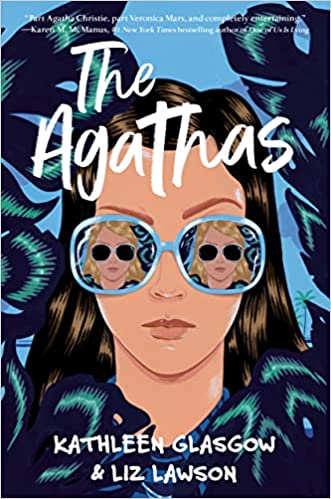
Last summer, Alice Ogilve’s basketball-star boyfriend Steve dumped her. Then she disappeared for five days. Where she went and what happened to her is the biggest mystery in Castle Cove, because she’s not talking. Or it was, at least. But now, another one of Steve’s girlfriends has vanished: Brooke Donovan, Alice’s ex–best friend. And it doesn’t look like Brooke will be coming back. . . .Enter Iris Adams, Alice’s tutor. Iris has her own reasons for wanting to disappear, though unlike Alice, she doesn’t have the money or the means. That could be changed by the hefty reward Brooke’s grandmother is offering to anyone who can share information about her granddaughter’s whereabouts. The police are convinced Steve is the culprit, but Alice isn’t so sure, and with Iris on her side, she just might be able to prove her theory.
In order to get the reward and prove Steve’s innocence, they need to figure out who killed Brooke Donovan. And luckily Alice has exactly what they need—the complete works of Agatha Christie. If there’s anyone that can teach the girls how to solve a mystery it’s the master herself. But the town of Castle Cove holds many secrets, and Alice and Iris have no idea how much danger they're about to walk into. [from the publisher]
Alice and Iris are from wildly different backgrounds and social groups. While neither is thrilled with their forced tutoring arrangement, they find their way to working well together and, eventually, caring for each other. The broad collection of characters all contribute something. Nothing/no one is presented without cause. It makes for a more interesting search for clues in the case.
While the book is targeted at teens, and the tone of the book isn't particularly intense as murder mysteries go, the subject matter (main and subplots) is quite serious, including underage drinking, drug use, and sex; murder; domestic abuse; neglect; poverty; gambling addiction; and corruption. This is noted at the end of the book, and resources for handling some of these issues is provided.
15 May 2022

When Sara Foster runs away from home at sixteen, she leaves behind not only the losses that have shattered her world but the girl she once was, capable of trust and intimacy. Years later, in Los Angeles, she is a sought-after bartender, renowned as much for her brilliant cocktails as for the mystery that clings to her. Across the city, Emilie Dubois is in a holding pattern. In her sixth year and fifth major as an undergraduate, she yearns for the beauty and community her Creole grandparents cultivated but is unable to commit. On a whim, she takes a job arranging flowers at the glamorous restaurant Yerba Buena and embarks on an affair with the married owner.When Sara catches sight of Emilie one morning at Yerba Buena, their connection is immediate. But the damage both women carry, and the choices they have made, pulls them apart again and again. When Sara's old life catches up to her, upending everything she thought she wanted just as Emilie has finally gained her own sense of purpose, they must decide if their love is more powerful than their pasts. [from the publisher]
Upon completion, I unexpectedly went breathless and sobbed. I'm not quite sure how much of that strong reaction can be assigned to the book and how much credit is due to the current state of our world on top of a week of woefully insufficient sleep. Either way, I was deeply moved by the story, and tentatively awarded it an even higher rating than the one on which I have settled after some days removed from the experience. The bottom line is that if you are interested and emotionally resilient enough to be immersed in a deeply emotional and powerful story, I would recommend this one. If you aren't up to it (or just plain aren't interested in the plot description), you won't get any shade from me.
Pro: I was cheering for Emilie and Sara throughout the story, hopeful that they would find their way to happiness and fulfillment, individually and together. Rich language, intricate backstories, and adequate character development are present. I was interested in various characters' creativity and skills. Representation includes biracial, lesbian, and bisexual main characters, as well as LGBTQ and multicultural supporting characters. The audio edition is narrated by Julia Whelan.
Con: Content warnings include (but are not necessarily limited to) drug abuse and addiction, including overdose; prostitution, including minors; child neglect (at least); and infidelity.
Thank you, NetGalley and Macmillan Audio, for the audio ARC of the book in exchange for an honest review. Publication is expected May 31.
13 May 2022
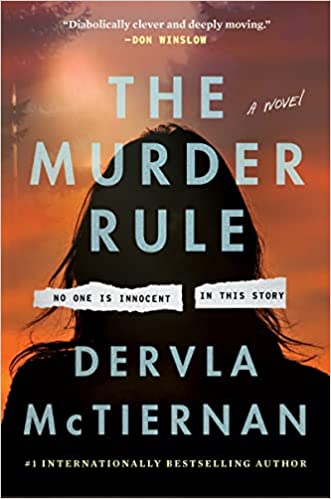
First Rule: Make them like you.Second Rule: Make them need you.
Third Rule: Make them pay.
They think I’m a young, idealistic law student, that I’m passionate about reforming a corrupt and brutal system.
They think I’m working hard to impress them.
They think I’m here to save an innocent man on death row.
They're wrong. I’m going to bury him.
[from the publisher]
Law student Hannah joins the Innocence Project at the University of Virginia in order to sabotage the case of a client with whom her alcoholic mother has a bad past—a fact that Hannah learns by reading her mom's secret diary. There is plenty of action propelling the story.
I'm having a hard time deciding how to rate this, as I'm torn between appreciating how well the story kept my attention and being irritated at some of the writing tactics leading to the reveal.
Content warnings include brutal beatings and multiple sexual assaults.
12 May 2022
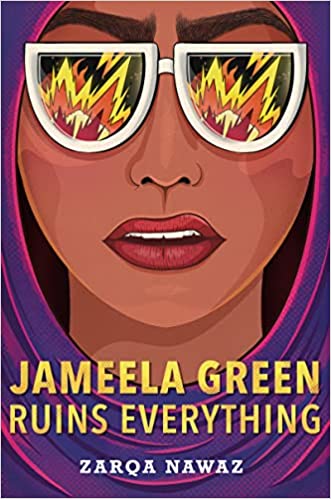
Jameela Green only has one wish.To see her memoir on the New York Times bestseller list. When her dream doesn’t come true, she seeks spiritual guidance at her local mosque. New imam and recent immigrant Ibrahim Sultan is appalled by Jameela’s shallowness, but agrees to assist her on one condition: that she perform a good deed.
Jameela reluctantly accepts his terms, kicking off a chain of absurd and unfortunate events. When the person the two do-gooders try to help is recruited by a terrorist group called D.I.C.K.—Dominion of the Islamic Caliphate and Kingdoms—the federal authorities become suspicious of Ibrahim, and soon after, the imam mysteriously disappears.
Certain that the CIA have captured Ibrahim for interrogation via torture, Jameela decides to set off on a one-woman operation to rescue him. Her quixotic quest soon finds her entangled in an international plan targeting the egomaniacal leader of the terrorist organization—a scheme that puts Jameela, and countless others, including her hapless husband and clever but disapproving daughter, at risk. [from the publisher]
I probably should have bailed fairly early on. When I got to about the 70% mark [Chapter 32, in which Jameela is talking to a leader in the terrorist organization she has tried to infiltrate/been captured by about the (unarguable) harms caused by the American government], I figured I might as well finish it and see if it redeemed itself. It didn't. In Chapter 47 (93%), Jameela meets a social media influencer who tells her “You don't have to be rich or powerful or white to mobilize people and create massive global awareness.” These two examples are about as deep as the narrative gets.
The characters are, generally, horribly unappealing. Jameela is immature and narcissistic (as is a former classmate/rival of Jameela's who is brought into the story multiple times at no benefit to the story or reader). Her husband is portrayed as completely ineffectual. There are a bunch of government agency–types and terrorists who, of course, aren't meant to be positive characters. The closest we get to someone for whom a reader could root are Ibrahim (though he comes off as so very naive that I question his position as a religious leader—where are the wisdom and experience needed to counsel his congregants?) and Jameela's teenage daughter, who is a talented food preparer and caretaker of others (especially those who should be caring for her). Even these two get caught up in/tainted by the ridiculous plot.
For others who like to read with their ears: The narrator has possibly the worst-ever British accent. In terms of how the narrator used her voice to differentiate characters, it was sometimes difficult to understand which character was speaking.
10 May 2022
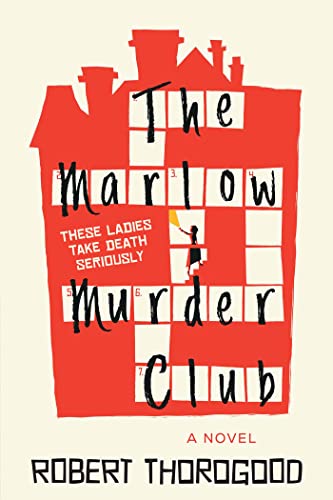
Judith Potts is seventy-seven years old and blissfully happy. She lives on her own in a faded mansion just outside Marlow, there’s no man in her life to tell her what to do or how much whisky to drink, and to keep herself busy she sets crosswords for The Times newspaper.One evening, while out swimming in the Thames, Judith witnesses a brutal murder. The local police don’t believe her story, so she decides to investigate for herself, and is soon joined in her quest by Suzie, a salt-of-the-earth dog-walker, and Becks, the prim and proper wife of the local Vicar.
Together, they are the Marlow Murder Club.
When another body turns up, they realise they have a real-life serial killer on their hands. And the puzzle they set out to solve has become a trap from which they might never escape. . . . [from the publisher]
All the heroes of the book are female. The friendships formed between the three members of the Marlow Murder Club—all from different backgrounds—are the main attraction. Tanika, the police detective (I can't remember her exact title) in charge of the case has her work cut out for her—not only leading the investigation and being away from her family extra hours, but also trying to manage the civilians who keep trying to insert themselves. Emma the dog becomes a character of some import.
During the course of the story, among the amateur sleuthing trio, there are secrets revealed, untapped or unrecognized talents emerging, and a fair amount of whiskey drinking.
My favorite quote of the book is in Chapter 8: “If we only did what was wise, nothing would ever get done, would it?”
8 May 2022
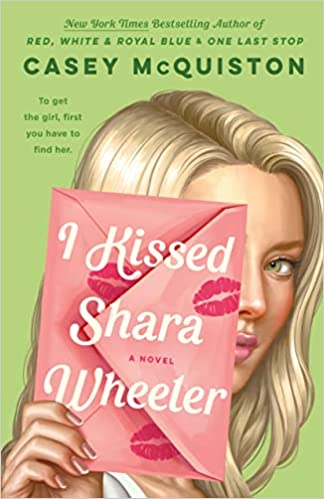
Chloe Green is so close to winning. After her moms moved her from SoCal to Alabama for high school, she’s spent the past four years dodging gossipy classmates and a puritanical administration at Willowgrove Christian Academy. The thing that’s kept her going: winning valedictorian. Her only rival: prom queen Shara Wheeler, the principal’s perfect progeny.But a month before graduation, Shara kisses Chloe and vanishes.
On a furious hunt for answers, Chloe discovers she’s not the only one Shara kissed. There’s also Smith, Shara’s longtime quarterback sweetheart, and Rory, Shara’s bad boy neighbor with a crush. The three have nothing in common except Shara and the annoyingly cryptic notes she left behind, but together they must untangle Shara’s trail of clues and find her. It’ll be worth it, if Chloe can drag Shara back before graduation to beat her fair-and-square.
Thrown into an unlikely alliance, chasing a ghost through parties, break-ins, puzzles, and secrets revealed on monogrammed stationery, Chloe starts to suspect there might be more to this small town than she thought. And maybe—probably not, but maybe—more to Shara, too. [from the publisher]
I liked the mystery of Shara's clues left behind for Chloe, Smith, and Rory, but didn't find Chloe's obsession to the point of risking her academic record plausible. Smith was probably my favorite character in the book, but he could have been developed more. Chloe's best friend, Georgia, could have been better developed, as well.
There is some humor, which helps. In Chapter 10, when Rory and Chloe are on the hunt for clues, Chloe says about Principal Wheeler (Shara's dad), “There’s no way his job is that hard. All he does is cut the arts budget and misinterpret the Bible. How many hours can that possibly take?” The most feel-good part of the book comes at the end in the forms of a reveal about/potential comeuppance for one character and a group grand event.
6 May 2022
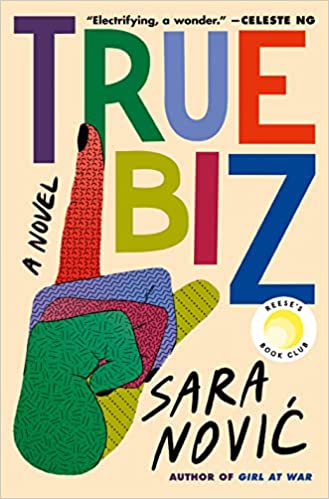
True biz (adj/exclamation; American Sign Language): really, seriously, definitely, real-talkTrue biz? The students at the River Valley School for the Deaf just want to hook up, pass their history final, and have doctors, politicians, and their parents stop telling them what to do with their bodies. This revelatory novel plunges readers into the halls of a residential school for the deaf, where they'll meet Charlie, a rebellious transfer student who's never met another deaf person before; Austin, the school's golden boy, whose world is rocked when his baby sister is born hearing; and February, the headmistress, who is fighting to keep her school open and her marriage intact, but might not be able to do both. As a series of crises both personal and political threaten to unravel each of them, Charlie, Austin, and February find their lives inextricable from one another—and changed forever.
This is a story of sign language and lip-reading, cochlear implants and civil rights, isolation and injustice, first love and loss, and, above all, great persistence, daring, and joy. [from the publisher]
The fictional story was less compelling. There is little progress made throughout the book, and there's a fair amount of repetition. Some of the side storylines were distracting at worst and unnecessary at best.
Still, I'm glad I read True Biz. I appreciate being given the opportunity to learn about this history and present.
4 May 2022
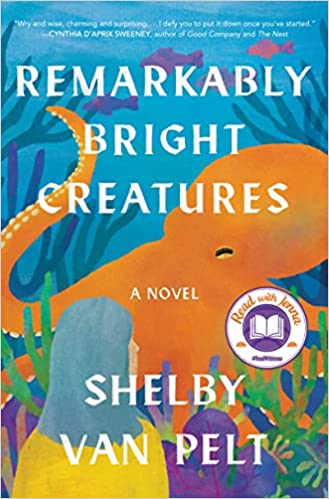
After Tova Sullivan's husband died, she began working the night shift at the Sowell Bay Aquarium, mopping floors and tidying up. Keeping busy has always helped her cope, which she's been doing since her eighteen-year-old son, Erik, mysteriously vanished on a boat in Puget Sound over thirty years ago.Tova becomes acquainted with curmudgeonly Marcellus, a giant Pacific octopus living at the aquarium. Marcellus knows more than anyone can imagine but wouldn't dream of lifting one of his eight arms for his human captors—until he forms a remarkable friendship with Tova.
Ever the detective, Marcellus deduces what happened the night Tova's son disappeared. And now Marcellus must use every trick his old invertebrate body can muster to unearth the truth for her before it's too late. [from the publisher]
I would have liked more Marcellus. I was slightly frustrated a couple of times when Tova did something counter to achieving the appropriate ending, or Cameron was especially petulant (not attractive on a 30-something). Occasionally I wanted to urge a character to “Get there faster!” Overall, though, it was a charming, warm story.
The audiobook is skillfully narrated by actors Marin Ireland (Sissy in 10 episodes of The Umbrella Academy, among other credits; also a prolific narrator of such books as Hoffman's The Rules of Magic, Wilson's Nothing to See Here, and Backman's Anxious People) and the adorable and fantastic Michael Urie (Marc St. James in 85 episodes of Ugly Betty, among other credits; also narrator of such books as Rowley's Lily and the Octopus and The Editor).
3 May 2022
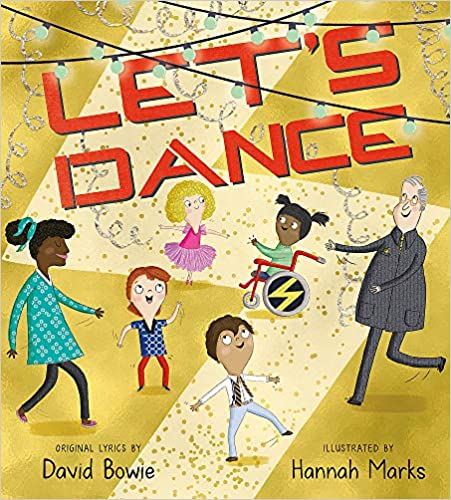
I can see what non-Bowie-fan reviewers are saying about not understanding the appeal of the book. I couldn't read the book without singing the text in my head. Sadly, I can also relate to what Bowie-fan reviewers are saying about the lyrics not translating well to this platform.
So, let's focus on the absolutely delightful and joyous illustrations. People (and quite a few animals) of different ages, skin tones, religions, and cultures move their bodies in a variety of environments. The drawings are so colorful and vivid that one can see and feel the energy and emotion.
2 May 2022
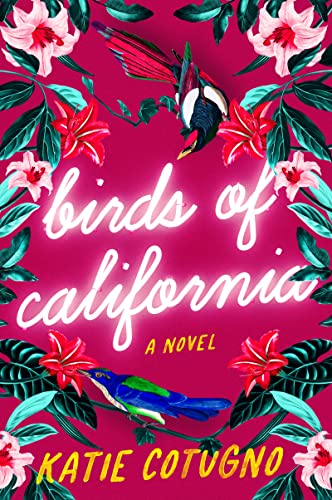
Former child actor Fiona St. James dropped out of the spotlight after a spectacularly public crash and burn. The tabloids called her crazy and self-destructive and said she'd lost her mind. Now in her late twenties, Fiona believes her humiliating past is firmly behind her. She's finally regained a modicum of privacy, and she won't let anything—or anyone—mess it up.Unlike Fiona, Sam Fox, who played her older brother on the popular television show Birds of California, loves the perks that come with being a successful Hollywood actor: fame, women, parties, money. When his current show gets cancelled and his agent starts to avoid his calls, the desperate actor enthusiastically signs on for a Birds of California revival. But to make it happen, he needs Fiona St. James.
Against her better judgment, Fiona agrees to have lunch with Sam. What happens next takes them both by surprise. Sam is enthralled by Fiona's take-no-prisoners attitude, and Fiona discovers a lovable goofball behind Sam's close-up-ready face. Long drives to the beach, late nights at dive bars . . . theirs is the kind of kitschy romance Hollywood sells. But just like in the rom-coms Fiona despises, there's a twist that threatens her new love. Sam doesn't know the full story behind her breakdown. What happens when she reveals the truth? [from the publisher]
There are several reasons Birds of California makes it into the former category.
- There isn't the ridiculous enemies to lovers trope. While Fiona and Sam played siblings on their television show, there was a clear off-screen attraction that wasn't realized fully at the time. That doesn't mean that it's clear sailing for their romance during the course of the story—from the outset, it's clear that Fiona has experienced trauma that stands in the way of getting romantically involved with Sam in the present. [We'll come back to this.]
- The main characters don't fall straight into bed—their romantic relationship is slow to develop. In the meantime, instead of hopping into bed at the drop of a hat, they go to the beach, go out to eat, or talk about books.
- It's funny! In Chapter 4, something is described as being “. . . so long and eclectic it makes the menu at The Cheesecake Factory look like an exercise in restraint.” There's a lot of witty banter, as well (when it doesn't disintegrate into insults).
- There are several appealing supporting characters, including Sam's friend/former roommate, Erin, and Fiona's sister and their elderly next-door neighbor, Estelle. There's also a community theatre troupe that plays a small, but not insignificant role. These characters add interest to the story, and there are substantive interactions between them and the main characters
As for Fiona's trauma, there is more than one source that could have led to her public meltdowns. One is obvious from the beginning. The other—the one that's most to blame for getting in the way of her developing relationship with Sam—is drawn out until the very last few pages of the book. On the one hand, after a while, this made the story drag something fierce. On the other hand, in real life, it legitimately takes a long time to process and deal with trauma. I'm glad I stuck with the story when I started getting impatient with the pace. For some reviewers, that was a deal-breaker.
30 April 2022
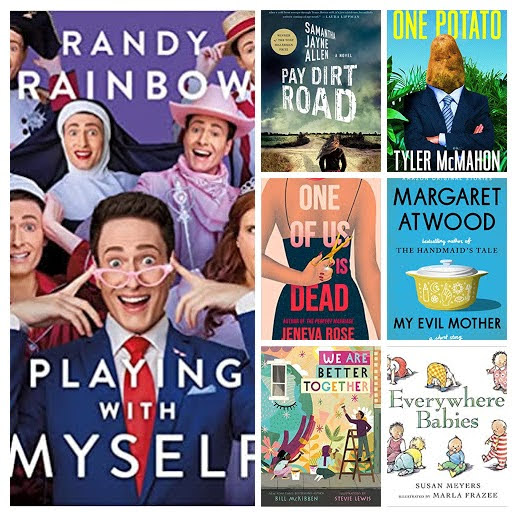
5-star read
- Everywhere Babies, Susan Meyers & Marla Frazee (Illustrator)
4-star reads
- My Evil Mother, Margaret Atwood
- Pay Dirt Road, Samantha Jayne Allen (4.35)
- One Potato, Tyler Mcmahon
- We Are Better Together, Bill McKibben & Stevie Lewis (Illustrator)
- Playing with Myself, Randy Rainbow (4.35)
- One of Us Is Dead, Jeneva Rose (4.35)
honorable mention (3.5)
- From Hollywood with Love: The Rise and Fall (and Rise Again) of the Romantic Comedy, Scott Meslow
- Suburban Dicks, Fabian Nicieza
- Like a Sister, Kellye Garrett
30 April 2022
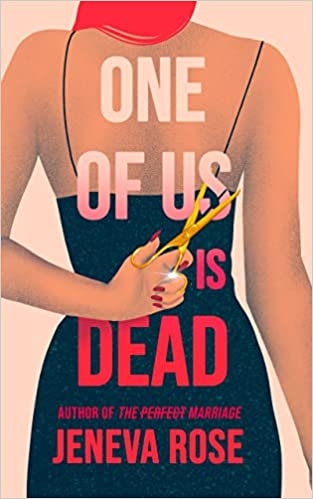
Opulence. Sex. Betrayal. Sometimes friendship can be deadly.Meet the women of Buckhead—a place of expensive cars, huge houses, and competitive friendships.
Shannon was once the queen bee of Buckhead. But she’s been unceremoniously dumped by Bryce, her politician husband. When Bryce replaces her with a much younger woman, Shannon sets out to take revenge. . . .
Crystal has stepped into Shannon’s old shoes. A young, innocent Texan girl, she simply has no idea what she’s up against. . . .
Olivia has waited years to take Shannon’s crown as the unofficial queen of Buckhead. Finally, her moment has come. But to take her rightful place, she will need to use every backstabbing, manipulative, underhand trick in the book. . . .
Jenny owns Glow, the most exclusive salon in town. Jenny knows all her clients’ secrets and darkest desires. But will she ever tell?
Who amongst these women will be clever enough to survive Buckhead—and who will wind up dead? They say that friendships can be complex, but no one said it could ever be this deadly. [from the publisher]
It's true that the characters are almost all completely despicable. Yet, I was glued to the story. I got to the end and said “Wow!” out loud. I really can't share anything about the plot without spoiling it. So, if you are game for a quick, nasty, trashy drama with a bit of mystery, give this a try.
Content warning: Beyond the expected murder found in most mysteries, there are other acts of violence—including human trafficking—briefly depicted.
28 April 2022
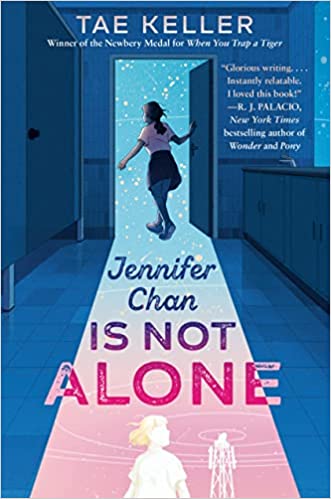
Sometimes middle school can make you feel like you're totally alone in the universe . . . but what if we aren't alone at all?Thanks to her best friend, Reagan, Mallory Moss knows the rules of middle school. The most important one? You have to fit in to survive. But then Jennifer Chan moves in across the street, and that rule doesn't seem to apply. Jennifer doesn't care about the laws of middle school, or the laws of the universe. She believes in aliens—and she thinks she can find them.
Then Jennifer goes missing. Using clues from Jennifer's journals, Mallory goes searching. But the closer she gets, the more Mallory has to confront why Jennifer might have run . . . and face the truth within herself. [from the publisher]
The long author's note at the end reveals her personal experience of being bullied when she was 12 years old. Her experience sounds extremely frightening—so violent that she couldn't share all of her experience in this book targeted at middle-schoolers.
Obviously, I am not in the target audience. As always, I'm interested in hearing what you thought of the book, whether or not you're in the target audience, though I'm especially interested in hearing from some tweens about their reading experiences.
26 April 2022
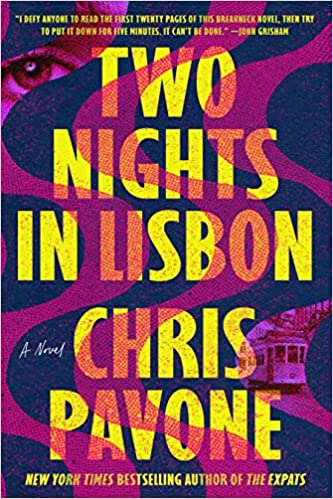
You think you know a person. . . .Ariel Price wakes up in Lisbon, alone. Her husband is gone—no warning, no note, not answering his phone. Something is wrong.
She starts with hotel security, then the police, then the American embassy, at each confronting questions she can’t fully answer: What exactly is John doing in Lisbon? Why would he drag her along on his business trip? Who would want to harm him? And why does Ariel know so little about her new—much younger—husband?
The clock is ticking. Ariel is increasingly frustrated and desperate, running out of time, and the one person in the world who can help is the one person she least wants to ask. [from the publisher]
The good:
There are moments of comic relief.
There's some timely political and social commentary.
The plot kept me engaged and uncertain for much of the book (though the ending was not a complete surprise to me).
The in-between:
Characters, location, and timeline change frequently. This may be intended to portray things happening simultaneously or in real-time. It was sometimes confusing.
There are several unreliable narrators.
I am left questioning the author's motives on several plot points. He'll make a bold comment on the status quo, and then write a character or situation that seems to invalidate that point.
The bad:
Sexual assault is alluded to many times from early on in the book. Ariel thwarts an attempted attack fairly early on (not the first attack on her), but the violence against women is so pervasive in the book that it's hardly a victory. There is one rape that is so brutally and graphically depicted that it truly gave me pause. What is the value of presenting this extreme violence in such detail? Are readers going to change their viewpoint or understanding of rape because of this description? If so, will they change their behaviors or act in some way to change our culture and legislation? Is this entertainment? Does this add to or distract from the main plotline of John's kidnapping and Ariel's quest to gain his release?
So, I am faced with a rating conundrum. . . . Much of the story would put my rating at at least 4 stars, but the gratuitously graphic rape scenes and the excessive length (leading to some repetition or unnecessary filler material—somewhat surprising in light of one character's well-deserved dig at Charles Dickens early in the book) significantly diminished my overall enjoyment.
Thank you, NetGalley and Macmillan Audio, for the audio ARC of the book in exchange for an honest review. Publication is expected May 24.
24 April 2022
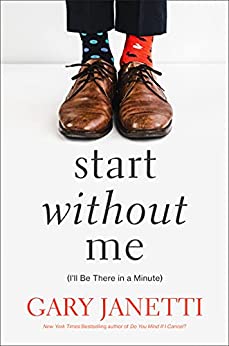
Gary Janetti is bothered. By a lot of things. And thank God he's here to tell us.In Start Without Me, Gary returns with his acid tongue firmly in cheek to the moments and times that defined him. He takes us by the hand as we follow him through the summers he spends in his twenties, pursuing both the perfect tan and the perfect man to no avail and much regret. At his Catholic high school, he strikes up an unlikely friendship with a nun who shares Gary's love of soap operas, which becomes a salvation to them both. And don't get him started on how a bad hotel room can ruin even the best vacation. This laugh-out-loud collection of true-life stories from the man “behind his generation's greatest comedy” (The New York Times) is for anyone who has felt the joy in holding a decade-long grudge. [from the publisher]
Early in this volume, Janetti talks about the importance of The Carol Burnett Show to his childhood (as did Randy Rainbow in his memoir released this week; I loved it as a child, too—I often watched with Granny). Other topics include piano lessons, his sneaky method of getting out of gym class during the football unit, how we contacted friends before texting was a thing, and differences in childrearing between the 1970s and now. A few times, I laughed out loud . . . loud enough for my partner to hear from another room and check on me.
Janetti's narration was inconsistent—sometimes spirited and conversational; often dull, almost robotic. Regardless, the memoir is a quick, fun read.
Thank you, NetGalley and Macmillan Audio, for the audio ARC of the book in exchange for an honest review. Publication is expected April 26.
23 April 2022
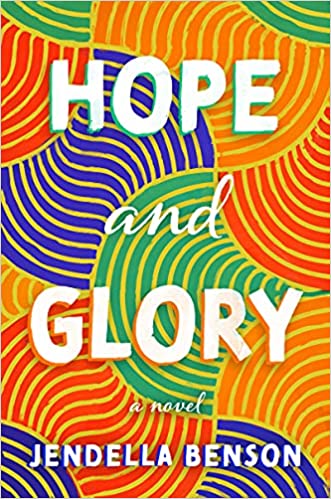
Glory Akindele returns to London from her seemingly glamorous life in LA to mourn the sudden death of her father, only to find her previously close family has fallen apart in her absence. Her brother, Victor, is in jail and won't speak to her because she didn't come home for his trial. Her older sister, Faith, once a busy career woman, appears to have lost her independence and ambition, and is instead channeling her energies into holding together a perfect suburban family. Worst of all, their mother, Celeste, is headed toward a breakdown after the death of her husband and the shame of her son's incarceration.Rather than returning to America, Glory decides to stay and try to bring them all together again. It's a tall order given that Glory's life isn't exactly working out according to plan either, and she's acutely aware that she's not so sure who she is and what she wants.
A chance reunion with a man she'd known in her teens—the perceptive but elusive Julian—gives her the courage to start questioning why her respectable but obsessively private Nigerian immigrant family is the way it is. But then Glory's questioning unearths a massive secret that shatters the family's fragile peace—and she risks losing everyone she deeply cares about in her pursuit of the truth and a reunited family. [from the publisher]
For what it's worth, I very much liked the narrator. The debut was engaging enough that I expect to read Benson's future work.
23 April 2022

On World Book and Copyright Day, especially in uncertain times, we must cherish and defend books as symbols of hope and dialogue.Books have long embodied the human capacity to conjure up worlds, both real and imagined, giving voice to the diversity of human experience. They help us share ideas, obtain information, and inspire admiration for different cultures, enabling far-reaching forms of dialogue between people across space and time.
In 2022, the Mexican city of Guadalajara is taking up the mantle of World Book Capital, with a year-long programme that focuses on the role of books and reading in triggering social change, combating violence, and building a culture of peace.
On World Book and Copyright Day, UNESCO calls on its partners to share the message that books are a force to address contemporary challenges, to understand political and economic realities, and to combat inequalities and misinformation.
Storytelling is an incredibly effective tool when it comes to educating younger generations. Indeed, books are vital vehicles to access, transmit and promote education, science, culture, and information worldwide. For this reason, every year, on 23 April—a date that marks the departure of three great authors of universal literature, Miguel de Cervantes, William Shakespeare, and Inca Garcilaso de la Vega—we celebrate their captivating power to spark innovation, generate knowledge and change minds.
—https://en.unesco.org/commemorations/worldbookday
Happy World Book Day, my friends! I started my celebration off strong, reading in bed before facing a day of household projects. I'm currently reading Hope and Glory, a debut by British-Nigerian author Jendella Benson. What are you reading and how are you celebrating?
#WorldBookDay #23April #EveryDayIsDebbyBookDay
22 April 2022
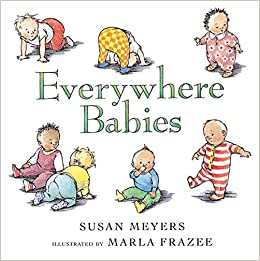
Every day, everywhere, babies are born. They're kissed and dressed and rocked and fed—and completely adored by the families who love them. With an irresistible rhyming text and delightfully endearing illustrations, here is an exuberant celebration of playing, sleeping, crawling, and of course, very noisy babies doing all the wonderful things babies do best. [from the publisher]
Why did I read this book today? Because Florida's Walton County School Superintendent Russell Hughesit banned it recently, saying it was “necessary in this moment for me to make that decision and I did it for just a welfare of all involved, including our constituents, our teachers, and our students.”
So, what's the fuss about? You should read it—or have it read to you online—and decide for yourself. To those who ban this (and other) book(s): your ignorance and intolerance are showing—shame on you!
20 April 2022
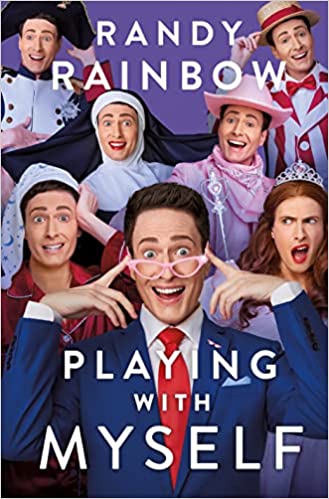
Randy Rainbow, the man who conquered the Internet with a stylish pair of pink glasses, an inexhaustible knowledge of Broadway musicals, and the most gimlet-eyed view of American politics this side of Mark Twain finally tells all in Playing with Myself, a memoir sure to cause more than a few readers to begin singing one of his greatest hits like “A Spoonful of Clorox” or “Cover Your Freakin' Face.”As Randy has said, “There's so much fake news out there about me. I can't wait to set the record straight and finally give people a peek behind the green screen.” And set the record straight he does. Playing with Myself is a first-hand account of the journey that led Randy Rainbow from his childhood as the over-imaginative, often misunderstood little boy who carried a purse in the second grade to his first job on Broadway as the host at Hooters and on to the creation of his trademark comedy character. In chapters titled “Pajama Bottoms” (a look back at the days when he wore pajama bottoms on his head to pretend he was Dorothy in The Wizard of Oz), “Yes, It's My Real Name, Shut Up!” (no explanation necessary . . . ) and “Pink Glasses” (a rose-colored homage to his favorite accessory), Playing with Myself is a memoir that answers the question “Can an introverted musical theatre nerd with a MacBook and a dream save the world, one show tune at a time?” [from the publisher]
Wednesday 3/9: I recommended the audiobook to my library's Overdrive, subsequently becoming the first one on the hold list. Sweet!
Monday 4/11: I preordered the signed hardcover. [I'm anxiously awaiting its arrival. I can hardly wait to tag (nondestructively, natch!) my audio bookmarks in the hardcover and enjoy them again.]
Monday 4/18: I attended the live virtual book signing that was a benefit of preordering—approximately 45 minutes of RR goodness.
Tuesday 4/19—publication day: My audiobook hold was fulfilled and I started reading.
Wednesday 4/20: I continued to revel in all things RR. The party was over all-too-soon.
Randy Rainbow and I are kindred spirits. Just a few of our similarities include being super-introverted only children of Jewish mothers; our especially close relationships with our maternal grandmothers; and our love of musical theatre, Carol Burnett, color-coded index cards, cats, coffee ice cream, and certain swear words (not necessarily in that order).
Rainbow's memoir is everything this fan expected—funny, warm, self-deprecating, and sincere. His chapter about losing his cat, Mushi, was delivered with emotion. I cried along with him. He does a lot of name-dropping, but one can hardly fault him, considering his meteoric rise to fame. Too, in each case, Rainbow is sharing his delight in meeting and developing relationships with so many people he has admired.
Reading this memoir felt much like hanging out together over coffee, mango margaritas, or martinis. It was comfortable and fun.
19 April 2022
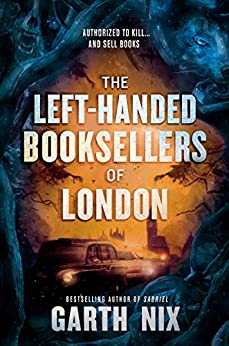
In a slightly alternate London in 1983, Susan Arkshaw is looking for her father, a man she has never met. Crime boss Frank Thringley might be able to help her, but Susan doesn’t get time to ask Frank any questions before he is turned to dust by the prick of a silver hatpin in the hands of the outrageously attractive Merlin.Merlin is a young left-handed bookseller (one of the fighting ones), who with the right-handed booksellers (the intellectual ones), are an extended family of magical beings who police the mythic and legendary Old World when it intrudes on the modern world, in addition to running several bookshops.
Susan’s search for her father begins with her mother’s possibly misremembered or misspelt surnames, a reading room ticket, and a silver cigarette case engraved with something that might be a coat of arms.
Merlin has a quest of his own, to find the Old World entity who used ordinary criminals to kill his mother. As he and his sister, the right-handed bookseller Vivien, tread in the path of a botched or covered-up police investigation from years past, they find this quest strangely overlaps with Susan’s. Who or what was her father? Susan, Merlin, and Vivien must find out, as the Old World erupts dangerously into the New. [from the publisher]
18 April 2022
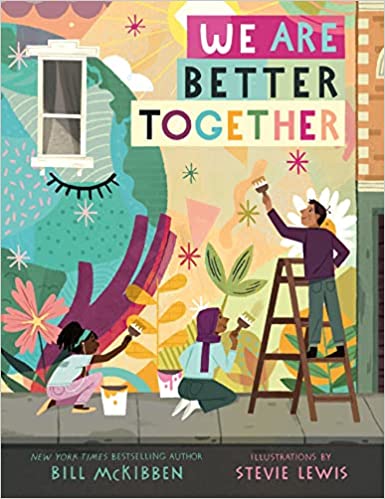
When we work together, we humans can do incredible things.We share the responsibility to address climate change and our changing planet. It is critical that we act collectively to protect our beautiful, fragile world. [from the publisher]
I've placed a hold on the print edition from my library so I'll be able to enjoy the illustrations accompanying the text.
Thank you, NetGalley and Macmillan Audio (from Henry Holt and Company), for the audio ARC of the book in exchange for an honest review. Publication is expected April 19.
17 April 2022
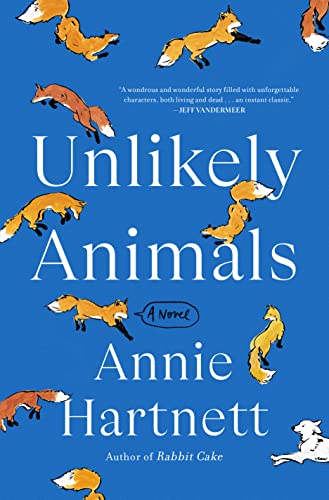
Natural-born healer Emma Starling once had big plans for her life, but she's lost her way. A med school dropout, she's come back to small-town Everton, New Hampshire to care for her father, dying from a mysterious brain disease. Clive Starling has been hallucinating small animals, as well as visions of the ghost of a long-dead naturalist, Ernest Harold Baynes, once known for letting wild animals live in his house. This ghost has been giving Clive some ideas on how to spend his final days.Emma arrives home knowing she must face her dad's illness, her mom's judgement, and her younger brother's recent stint in rehab, but she's unprepared to find that her former best friend from high school is missing, with no one bothering to look for her. The police say they don't spend much time looking for drug addicts. Emma's dad is the only one convinced the young woman might still be alive, and Emma is hopeful he could be right. Someone should look for her, at least. Emma isn't really trying to be a hero—but somehow she and her father set in motion just the kind of miracle the town needs.
Set against the backdrop of a small town in the throes of a very real opioid crisis, Unlikely Animals is a tragicomic novel about familial expectations, imperfect friendships, and the possibility of resurrecting that which had been thought irrevocably lost. [from the publisher]
15 April 2022
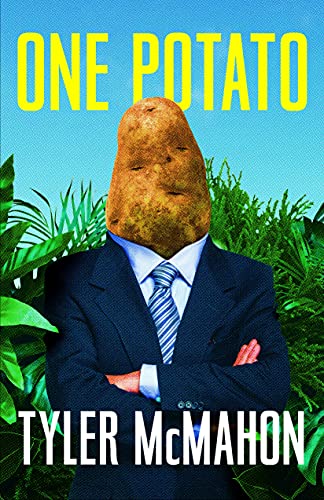
Eddie Morales finds his lowly R&D life completely upended when his Boise-based biotech firm dispatches him to Puerto Malogrado, a tiny but tumultuous country in South America where the international media is accusing their experimental potatoes of causing a bizarre medical crisis. Eddie unwillingly arrives in South America only to find his plans for a quick resolution thwarted when he gets caught between the two sides of an impending revolution, each hoping to capitalize on the potato scandal in order to seize power.Eddie stumbles into a conspiracy that reveals just how far his company will go to advance its potato empire. He is forced to make a choice. What―and who―will he sacrifice to preserve his own future in this brave new world of biotechnology? [from the publisher]
What I got was a little bit of a lot of things: political and social commentary, GMO debate from both sides, relationships galore (family, friends, enemies, colleagues, romantic, community), tenderness, lots of humor, a little mystery, intrigue, action, war, and suspense.
When the story opens, Eddie is working in his corporate lab on a French fry vending machine. The president of the company demands that he go manage the company's crisis in South America purportedly because he speaks Spanish. Eddie doesn't realize until departure that a journalist/blogger, Raven, is accompanying him. Through the course of the story, we meet a big cast of characters, each contributing something to the adventure.
The book was a nonstop comedy of errors—never dull. I greatly enjoyed the ride.
Thank you, NetGalley and Dreamscape Media, for the audio ARC of the book—even after publication day of April 12—in exchange for an honest review.
14 April 2022
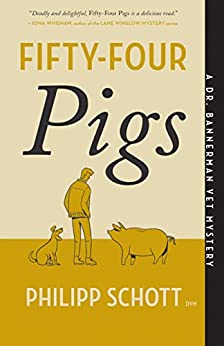
A swine barn explodes near a lakeside Manitoba town, putting veterinarian Dr. Peter Bannerman on a collision course with murder and a startling conspiracy. Peter is an odd duck, obsessed with logic and measurable facts, an obsession he puts to good use in his veterinary practice. When a murder is connected to the swine barn explosion and his friend Tom becomes the prime suspect, Peter feels compelled to put his reasoning skills, and his dog Pippin's remarkable nose, to use to help clear him. The situation darkens with a second murder and a series of break-ins, including at Peter's house and clinic, but Peter has a hard time knowing when he is out of his depth, despite warnings from his brother-in-law Kevin, an RCMP officer. It becomes increasingly clear that something extraordinary is behind all this, possibly international in scope. Ultimately Peter finds himself out in the middle of frozen Lake Winnipeg during a blizzard, fighting for his life and confronting a horrifying realization he had been blind to all along. [from the publisher]
The set-up progressed slowly. Much of the book was low-key. The action and excitement are limited to quite a short time near the story's conclusion. When the pace finally picks up, it's a big escalation.
I especially liked Peter's relationship with his dog, Pippin; the fact that Peter and his wife, Laura, are introverts (noting that she is a more social introvert than he); that Laura is a professional knitter; and that there are LGBTQ representation, discussion of nonbinary pronouns, and characters from multiple countries/cultures. It's not important to the story, but the fact that Peter and Laura play the cooperative board game Pandemic tickled me. We were introduced to it by Number One Son and Darling-In-Law, who received it from dear friends as a creative wedding gift.
Thank you, NetGalley and ECW Press Audio, for the audio ARC of the book in exchange for an honest review. Publication is expected April 19.
12 April 2022
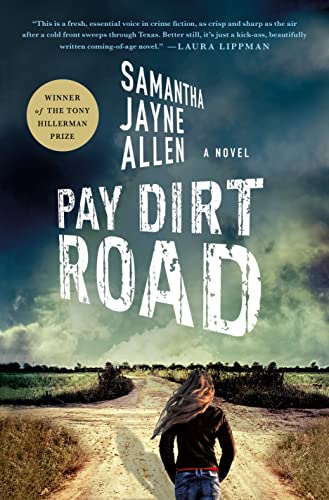
Annie McIntyre has a love/hate relationship with Garnett, Texas.Recently graduated from college and home waitressing, lacking not in ambition but certainly in direction, Annie is lured into the family business—a private investigation firm—by her supposed-to-be-retired grandfather, Leroy, despite the rest of the clan’s misgivings.
When a waitress at the café goes missing, Annie and Leroy begin an investigation that leads them down rural routes and haunted byways, to noxious-smelling oil fields and to the glowing neon of local honky-tonks. As Annie works to uncover the truth she finds herself identifying with the victim in increasing, unsettling ways, and realizes she must confront her own past—failed romances, a disturbing experience she’d rather forget, and the trick mirror of nostalgia itself—if she wants to survive this homecoming. [from the publisher]
Right out of the gate, the story is told with rich, descriptive language. The author didn't waste a minute starting to develop the characters and their relationships, without being longwinded, boring, or tedious. Family (close and extended), friends, coworkers, and townsfolk are all fully created and interconnected in both expected and surprising ways. Story elements were well-conceived as well, leading to a satisfying and comprehensive ending.
The violence level wasn't exceedingly graphic or unrelenting for the genre. However, content warnings include murder; alcohol abuse, including by minors; use of date-rape drugs; sexual assault, including involving minors.
Thank you, NetGalley and RB Media, for the audio ARC of the book in exchange for an honest review. Publication is expected April 19.
11 April 2022
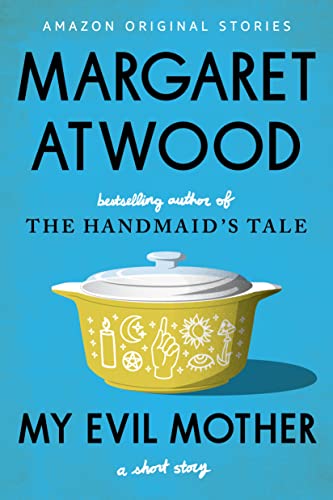
Life is hard enough for a teenage girl in 1950s suburbia without having a mother who may—or may not—be a witch. A single mother at that. Sure, she fits in with her starched dresses, string of pearls, and floral aprons. Then there are the hushed and mystical consultations with neighborhood women in distress. The unsavory, mysterious plants in the flower beds. The divined warning to steer clear of a boyfriend whose fate is certainly doomed. But as the daughter of this bewitching homemaker comes of age and her mother’s claims become more and more outlandish, she begins to question everything she once took for granted. [from the publisher]
10 April 2022
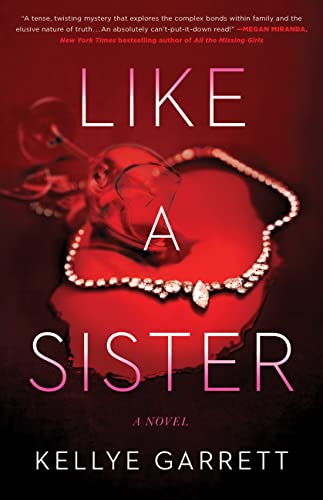
When the body of disgraced reality TV star Desiree Pierce is found on a playground in the Bronx the morning after her 25th birthday party, the police and the media are quick to declare her death an overdose. It’s a tragedy, certainly, but not a crime.But Desiree’s half-sister Lena Scott knows that can’t be the case. A graduate student at Columbia, Lena has spent the past decade forging her own path far from the spotlight, but some facts about Desiree just couldn’t have changed since their childhood. And Desiree would never travel above 125th Street. So why is no one listening to her?
Despite the bitter truth that the two haven’t spoken in two years, torn apart by Desiree’s partying and by their father, Mel, a wealthy and influential hip-hop mogul, Lena becomes determined to find justice for her sister, even if it means untangling her family’s darkest secrets—or ending up dead herself. [from the publisher]
There are many secondary and lower level characters, including Lena's elderly aunt with whom she lives, Desiree's best friend/social media influencer buddy, a reporter, a former partner/current rival of Lena's dad's, a classmate of Lena's, hotel staff, and so many more. Similarly, there are also quite a few candidates for Desiree's murderer. It was interesting to follow Lena's thought-process during her investigation.
8 April 2022
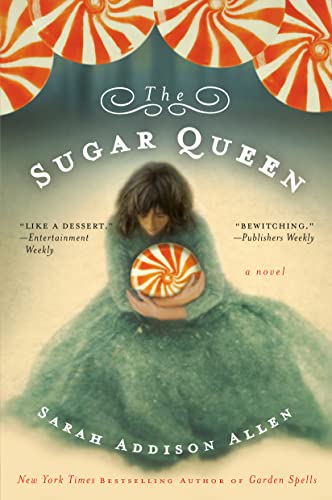
Josey Cirrini is sure of three things: winter is her favorite season, she’s a sorry excuse for a Southern belle, and sweets are best eaten in the privacy of her closet. For while Josey has settled into an uneventful life in her mother’s house, her one consolation is the stockpile of sugary treats and paperback romances she escapes to each night. . . . Until she finds her closet harboring Della Lee Baker, a local waitress who is one part nemesis—and two parts fairy godmother. With Della Lee’s tough love, Josey’s narrow existence quickly expands. She even bonds with Chloe Finley, a young woman who is hounded by books that inexplicably appear when she needs them—and who has a close connection to Josey’s longtime crush. Soon Josey is living in a world where the color red has startling powers, and passion can make eggs fry in their cartons. And that’s just for starters.Brimming with warmth, wit, and a sprinkling of magic, here is a spellbinding tale of friendship, love—and the enchanting possibilities of every new day. [from the publisher]
6 April 2022
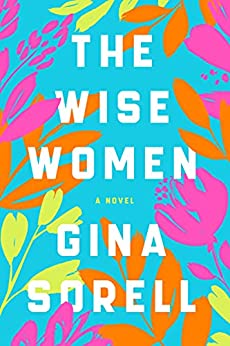
Popular advice columnist Wendy Wise has been skillfully advising the women who write to her seeking help for four decades, so why are her own daughters’ lives such a mess? Clementine, the working mother of a six-year-old boy, has just discovered that she is actually renting the Queens home that she thought she owned, because her husband Steve secretly funneled their money into his flailing start-up. Meanwhile, her sister Barb has overextended herself at her architecture firm and reunited semi-unhappily with her cheating girlfriend.When Steve goes MIA and Clementine receives an eviction notice, Wendy swoops in to save the day, even though her daughters, who are holding onto some resentments from childhood, haven’t asked for her help. But as soon as Wendy sets her sights on hunting down her rogue son-in-law, Barb and Clementine quickly discover that their mother has been hiding more than a few problems of her own.
As the three women confront the disappointments and heartaches that have accumulated between them over the years, they discover that while the future may look entirely different from the one that they’ve expected, it may be even brighter than they’d hoped. [from the publisher]
5 April 2022
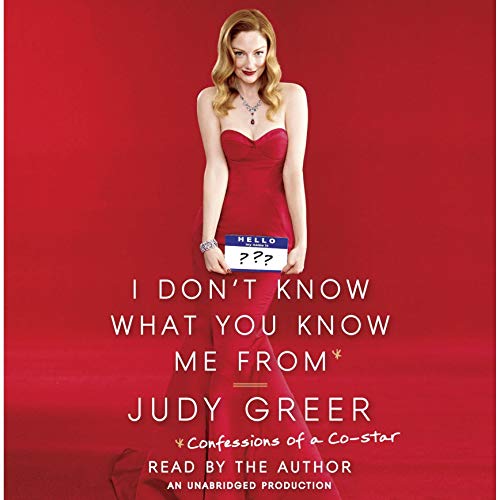
In her first book of essays, I Don’t Know What You Know Me From, Greer writes about everything you would hope to hear from your best friend: how a midnight shopping trip to Walgreens can cure all; what it’s like to wake up one day with stepchildren; and how she really feels about fans telling her that she’s prettier in person. Yes, it’s all here—from the hilarious moments to the intimate confessions.But Judy Greer isn’t just a regular friend—she’s a celebrity friend. Want to know which celebs she’s peed next to? Or what the Academy Awards are actually like? Or which hot actor gave her father a Harley-Davidson? Don’t worry; Greer reveals all of that, too. You’ll love her because, besides being laugh-out-loud funny, she makes us genuinely feel like she’s one of us. Because even though she sometimes has a stylist and a makeup artist, she still wears (and hates!) Spanx. Because even after almost twenty years in Hollywood, she still hasn’t figured everything out—except that you should always wash your face before bed. Always. [from the publisher]
I picked up this book because Greer comes up in From Hollywood with Love.
4 April 2022
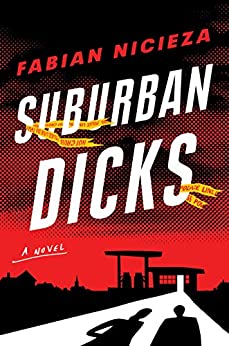
Andie Stern thought she’d solved her final homicide. Once a budding FBI profiler, she gave up her career to raise her four (soon to be five) children in West Windsor, New Jersey. But one day, between soccer games and trips to the local pool, Andie pulls into a gas station—and stumbles across a murder scene. An attendant has been killed, and the bumbling local cops are in way over their heads. Suddenly, Andie is obsessed with the case, and back on the trail of a killer, this time with kids in tow.She soon crosses paths with disgraced local journalist Kenny Lee, who also has everything to prove in solving the case. A string of unusual occurrences—and, eventually, body parts—surfaces around town, and Andie and Kenny uncover simmering racial tensions and a decades-old conspiracy. [from the publisher]
2 April 2022
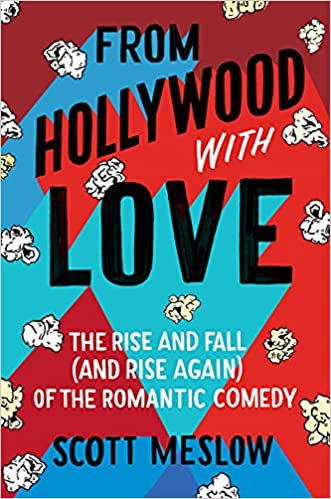
No Hollywood genre has been more misunderstood—or more unfairly under-appreciated—than the romantic comedy. Funny, charming, and reliably crowd-pleasing, rom-coms were the essential backbone of the Hollywood landscape, launching the careers of many of Hollywood's most talented actors and filmmakers, such as Julia Roberts and Matthew McConaughey, and providing many of the yet limited creative opportunities women had in Hollywood. But despite—or perhaps because of—all that, the rom-com has routinely been overlooked by the Academy Awards or snobbishly dismissed by critics. In From Hollywood with Love, culture writer and GQ contributor Scott Meslow seeks to right this wrong, celebrating and analyzing rom-coms with the appreciative, insightful critical lens they've always deserved.Beginning with the golden era of the romantic comedy—spanning from the late '80s to the mid-'00s with the breakthrough of films such as When Harry Met Sally—to the rise of streaming and the long-overdue push for diversity setting the course for films such as the groundbreaking, franchise-spawning Crazy Rich Asians, Meslow examines the evolution of the genre through its many iterations, from its establishment of new tropes, the Austen and Shakespeare rewrites, the many love triangles, and even the occasional brave decision to do away with the happily ever after. [from the publisher]
In addition to so many romantic comedies that readily come to mind, Meslow brings up a few that I wouldn't have placed in the genre. Even better—and more importantly—there are several essays that discuss institutional racism in Hollywood and the unequal treatment of women actors.
31 March 2022
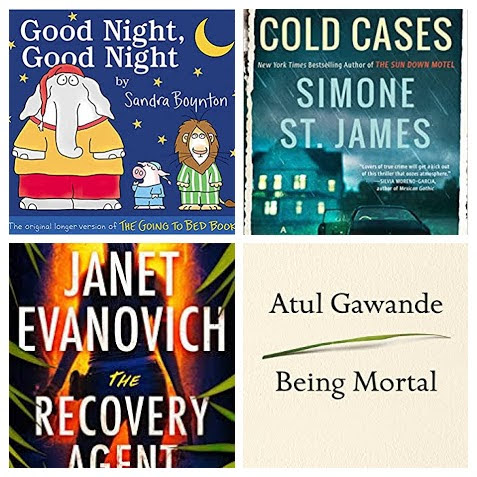
4 (or more)-star reads
- Being Mortal, Atul Gawande (reread)
- The Book of Cold Cases, Simone St. James
- Good Night, Good Night, Sandra Boynton (4.66)
- The Recovery Agent, Janet Evanovich
honorable mention
- Citizen K-9 (The K Team #3), David Rosenfelt (3.5)
- The Night Shift, Alex Finlay (3.5)
- The Thursday Murder Club, Richard Osman (3.5)
- Frogkisser!, Garth Nix (3.5)
31 March 2022
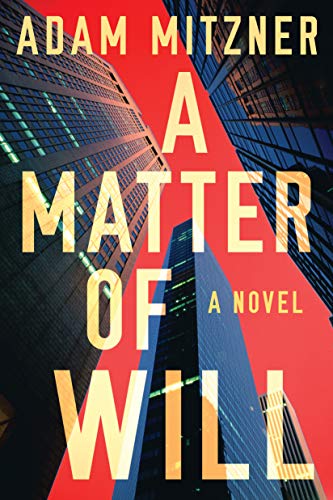
Will Matthews came to Wall Street with hopes and dreams of hitting it big. But things have not been going as expected. He’s on the verge of being fired when he meets the devilishly mysterious and fabulously wealthy Sam Abaddon.Winning Sam’s business answers Will’s prayers, catapulting the young stockbroker into the privileged world of money and luxury. Not only that, but Will also has met his dream girl, ambitious attorney Gwen Lipton.
All at once, it seems as if Will’s life couldn’t get any better.
And it doesn’t.
When Will witnesses a shocking act of violence, his charmed new existence is revealed to be a waking nightmare as the truth about his benefactor—and his own complicity in criminal conduct—becomes devastatingly clear. As the noose draws tighter, Will faces an impossible choice: feast upon the poisonous fruit of his bloody business or defy his patron and face dire consequences.
Then again, maybe there’s a third option. . . . [from the publisher]
29 March 2022
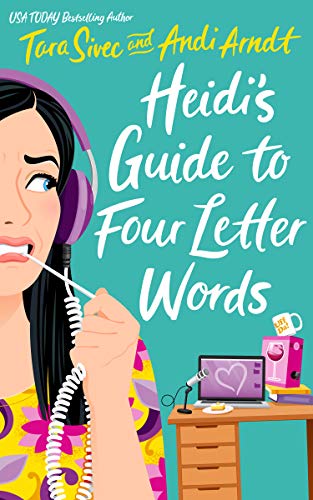
Nothing good ever comes from drinking a box of wine alone. So when I decided to entertain my drunken self by setting up some hand-me-down podcasting equipment and reading the steamy parts from romance novels, I never thought anyone would actually listen. The fact that I admitted my huge crush on my sexy next door neighbor made the whole thing even more mortifying. But sometimes life surprises you, and that’s how my podcast, Heidi’s Discount Erotica, was born.Now I, Heidi Larsen, a sweet former kindergarten teacher in Waconia, Minnesota, lead a scandalous double life reading erotic novels to the listening world. And with each episode, I find myself embracing my new alter ego more and more. Now I’m starting to feel more comfortable in my own skin and do things I never would have dreamed of—like kissing my neighbor. [from the publisher]
Where’s the dinner? Where’s the dancing? Where’s the freaking romance? They’re just going to get right down to it in chapter one?Heidi's mom gives every little detail on the way to her point in conversation—which is a little tedious. On the plus side, I enjoyed the Minnesota accent and expressions.
I'm giving Heidi a slight rating boost because of the abundance of humor, including reference to the four seasons in Minnesota: winter, more winter, still more winter, and that one day of summer. That sounds a lot like the Chicago area, doesn't it?
As expected, content warnings include explicit sex and mature language.
28 March 2022
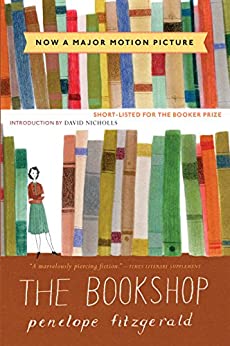
In 1959 Florence Green, a kindhearted widow with a small inheritance, risks everything to open a bookshop - the only bookshop - in the seaside town of Hardborough. By making a success of a business so impractical, she invites the hostility of the town's less prosperous shopkeepers. By daring to enlarge her neighbors' lives, she crosses Mrs. Gamart, the local arts doyenne. Florence's warehouse leaks, her cellar seeps, and the shop is apparently haunted. Only too late does she begin to suspect the truth: a town that lacks a bookshop isn't always a town that wants one. [from the publisher]
27 March 2022
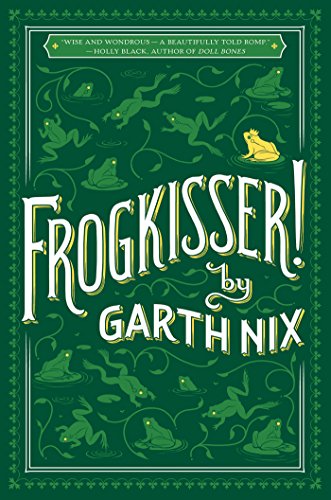
Poor Princess Anya. Forced to live with her evil stepmother’s new husband, her evil stepstepfather. Plagued with an unfortunate ability to break curses with a magic-assisted kiss. And forced to go on the run when her stepstepfather decides to make the kingdom entirely his own.Aided by a loyal talking dog, a boy thief trapped in the body of a newt, and some extraordinarily mischievous wizards, Anya sets off on a Quest that, if she plays it right, will ultimately free her land—and teach her a thing or two about the use of power, the effectiveness of a well-placed pucker, and the finding of friends in places both high and low. [from the publisher]
26 March 2022
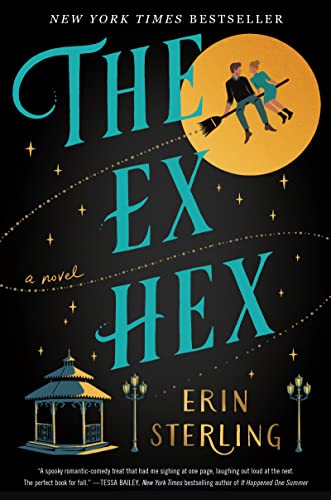
Nine years ago, Vivienne Jones nursed her broken heart like any young witch would: vodka, weepy music, bubble baths . . . and a curse on the horrible boyfriend. Sure, Vivi knows she shouldn’t use her magic this way, but with only an “orchard hayride” scented candle on hand, she isn’t worried it will cause him anything more than a bad hair day or two.That is until Rhys Penhallow, descendent of the town’s ancestors, breaker of hearts, and annoyingly just as gorgeous as he always was, returns to Graves Glen, Georgia. What should be a quick trip to recharge the town’s ley lines and make an appearance at the annual fall festival turns disastrously wrong. With one calamity after another striking Rhys, Vivi realizes her silly little Ex Hex may not have been so harmless after all.
Suddenly, Graves Glen is under attack from murderous wind-up toys, a pissed off ghost, and a talking cat with some interesting things to say. Vivi and Rhys have to ignore their off the charts chemistry to work together to save the town and find a way to break the break-up curse before it’s too late. [from the publisher]
Content warnings: explicit sex; swearing
24 March 2022
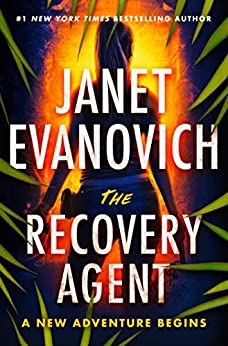
Lost something? Gabriela Rose knows how to get it back. As a recovery agent, she’s hired by individuals and companies seeking lost treasures, stolen heirlooms, or missing assets of any kind. She’s reliable, cool under pressure, and well trained in weapons of all types. But Gabriela’s latest job isn’t for some bamboozled billionaire, it’s for her own family, whose home is going to be wiped off the map if they can’t come up with a lot of money fast.Inspired by an old family legend, Gabriela sets off for the jungles of Peru in pursuit of the Ring of Solomon and the lost treasure of Cortez. But this particular job comes with a huge problem attached to it—Gabriela’s ex-husband, Rafer. It’s Rafer who has the map that possibly points the way to the treasure, and he’s not about to let Gabriela find it without him.
Rafer is as relaxed as Gabriela is driven, and he has a lifetime’s experience getting under his ex-wife’s skin. But when they aren’t bickering about old times the two make a formidable team, and it’s going to take a team to defeat the vicious drug lord who has also been searching for the fabled ring. A drug lord who doesn’t mind leaving a large body count behind him to get it. [from the publisher]
Enter Evanovich's new series, with protagonist Gabriela Rose. There are some similarities and parallels to the Plum series: Gabriela's mom and grandmother are characters; Gabriela has an assistant in place of Stephanie's sidekick, Lula; Gabriela's sizzle is with ex-husband, Rafer, with whom she grew up (and has a long history, like Stephanie has with boyfriend, Morelli); both Gabriela and Stephanie come from working-class families.
I enjoyed the gear—it's not James Bond–level (which she mentions), but it's still cool and useful—and the travel aspect of the story.
I will gladly read the next installment.
23 March 2022
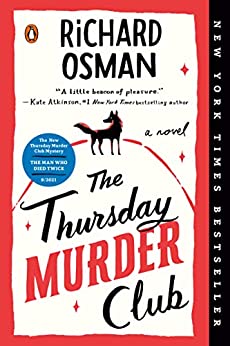
In a peaceful retirement village, four unlikely friends meet weekly in the Jigsaw Room to discuss unsolved crimes; together they call themselves The Thursday Murder Club. Elizabeth, Joyce, Ibrahim and Ron might be pushing eighty but they still have a few tricks up their sleeves.When a local developer is found dead with a mysterious photograph left next to the body, the Thursday Murder Club suddenly find themselves in the middle of their first live case. As the bodies begin to pile up, can our unorthodox but brilliant gang catch the killer, before it’s too late? [from the publisher]
This book puts me in the mood to rewatch The Best Exotic Marigold Hotel, which isn't a mystery, but features a cast of retirees.
The audio edition I read included author Marian Keyes interviewing author Richard Osman. Keyes notes that while there are the four main characters, she counted 20 meaningful characters in the book. Later in the interview Osman commented that he wants the world to be a better place. He also mentioned his writing philosophy of “Show, don't tell.”
19 March 2022
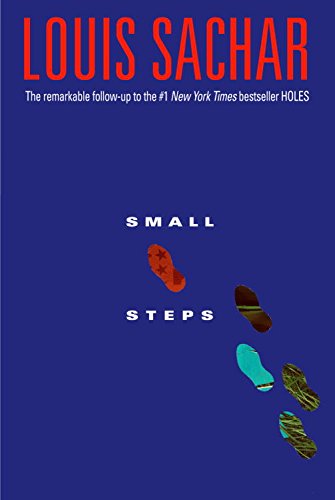
Two years after being released from Camp Green Lake, Armpit is home in Austin, Texas, trying to turn his life around. But it’s hard when you have a record, and everyone expects the worst from you. The only person who believes in him is Ginny, his 10-year old disabled neighbor. Together, they are learning to take small steps. And he seems to be on the right path, until X-Ray, a buddy from Camp Green Lake, comes up with a get-rich-quick scheme. This leads to a chance encounter with teen pop sensation, Kaira DeLeon, and suddenly his life spins out of control, with only one thing for certain. He’ll never be the same again. [from the publisher]
19 March 2022
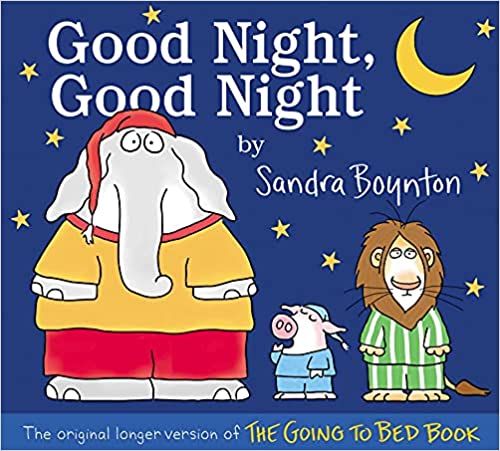
The Going to Bed Book was first published in 1982 and has been a cherished part of many millions of bedtimes ever since.Good Night, Good Night is the larger and longer version, now redrawn by the author for a fabulous new generation. Every copy comes with a free pair of imaginary singing rabbits. [from the publisher]
Despite the weirdness of post-bath and clean pajamas exercising, this expanded story is still a delightful bedtime story. From memory (that is, it's been at least a couple decades since I read the board book regularly), additions include a spread in which the animals all pile into their gigantic bed and a spread in which a lullaby is sung by the rabbits.
18 March 2022
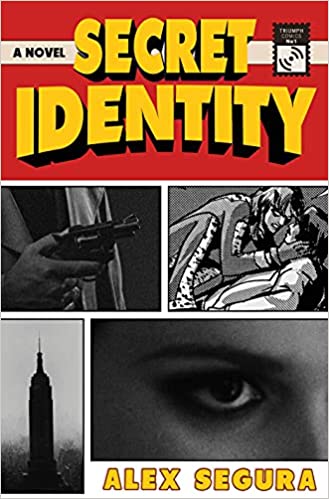
It’s 1975 and the comic book industry is struggling, but Carmen Valdez doesn’t care. She’s an assistant at Triumph Comics, which doesn’t have the creative zeal of Marvel nor the buttoned-up efficiency of DC, but it doesn’t matter. Carmen is tantalizingly close to fulfilling her dream of writing a superhero book.That dream is nearly a reality when one of the Triumph writers enlists her help to create a new character, which they call “The Lethal Lynx,” Triumph's first female hero. But her colleague is acting strangely and asking to keep her involvement a secret. And then he’s found dead, with all of their scripts turned into the publisher without her name. Carmen is desperate to piece together what happened to him, to hang on to her piece of the Lynx, which turns out to be a runaway hit. But that’s complicated by a surprise visitor from her home in Miami, a tenacious cop who is piecing everything together too quickly for Carmen, and the tangled web of secrets and resentments among the passionate eccentrics who write comics for a living. [from the publisher]
I was disappointed at Carmen's reluctance to stand up for herself and her justification of certain men's actions.
On the whole, the book is somewhat drawn-out, slow, and tedious. The writing was occasionally awkward. Still, I'm not sorry that I read it—it was a nice taste of something a little bit different.
17 March 2022
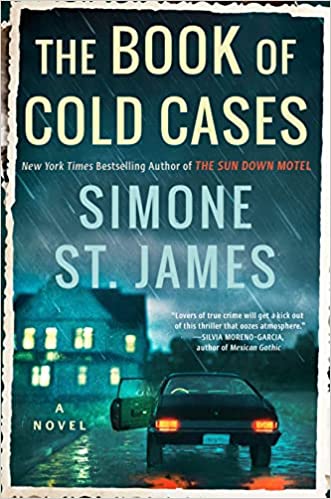
In 1977, Claire Lake, Oregon, was shaken by the Lady Killer Murders: Two men, seemingly randomly, were murdered with the same gun, with strange notes left behind. Beth Greer was the perfect suspect—a rich, eccentric twenty-three-year-old woman, seen fleeing one of the crimes. But she was acquitted, and she retreated to the isolation of her mansion.Oregon, 2017. Shea Collins is a receptionist, but by night, she runs a true crime website, the Book of Cold Cases—a passion fueled by the attempted abduction she escaped as a child. When she meets Beth by chance, Shea asks her for an interview. To Shea's surprise, Beth says yes.
They meet regularly at Beth's mansion, though Shea is never comfortable there. Items move when she's not looking, and she could swear she's seen a girl outside the window. The allure of learning the truth about the case from the smart, charming Beth is too much to resist, but even as they grow closer, Shea senses something isn't right. Is she making friends with a manipulative murderer, or are there other dangers lurking in the darkness of the Greer house? [from the publisher]
I like that so many of the characters from the 1970s played a part in the present. That may have been the case in the other two books, as well; but, I perceive that there was more cross-timeline participation in this book.
As in the other books, St. James didn't surprise me with the major twists. Again, the storytelling was engaging enough that I didn't mind terribly. Also like the others, relationship-building is strong in this book.
If you like a mystery that spans generations—and are willing to tolerate a limited amount of ghost story, even if you're not a big fan—give this one a try. I'll keep reading this author, including going into the backlist.
15 March 2022
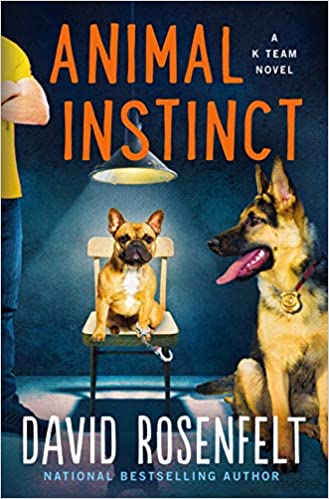
The K Team’s latest case—a recent unsolved murder—gives Corey a chance to solve “the one that got away.” Corey knew the murder victim from his time on the force, when he was unable to protect her in a domestic dispute. Now, he is convinced the same abusive boyfriend is responsible for her murder. With some help from Laurie’s lawyer husband, Andy Carpenter, the K Team is determined to prove what the police could not, no matter the cost. What they uncover is much more sinister than they could have imagined. [from the publisher]
14 March 2022
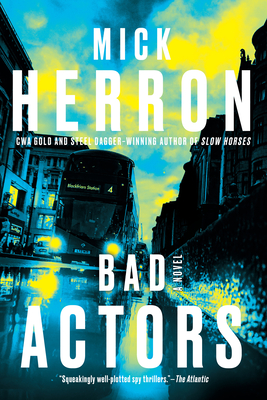
A governmental think-tank, whose remit is to curb the independence of the intelligence service, has lost one of its key members, and Claude Whelan—one-time head of MI5's Regent’s Park—is tasked with tracking her down. But the trail leads straight back to the Park itself, with Diana Taverner as chief suspect. Has Diana overplayed her hand at last? What’s her counterpart, Moscow’s First Desk, doing in London? And does Jackson Lamb know more than he’s telling?Over at Slough House, with Shirley Dander in rehab, Roddy Ho in dress rehearsal, and new recruit Ashley Khan turning up the heat, the slow horses are doing what they do best, and adding a little bit of chaos to an already unstable situation. . . .
There are bad actors everywhere, and they usually get their comeuppance before the credits roll. But politics is a dirty business, and in a world where lying, cheating and backstabbing are the norm, sometimes the good guys can find themselves outgunned. [from the publisher]
Bad Actors is occasionally funny (I didn't find it as all-out hilarious as did the series' true fans). It takes place post-Brexit and post–COVID-19. The level of description was tedious to read—the book was really a trudge until the short, exciting scene at the end. It might translate well to a TV serial, so I plan to watch the Apple TV+ series Slow Horses starring Gary Oldman as Jackson Lamb (streaming starting this coming Friday!). The preview made me laugh out loud and looks potentially exciting.
Thank you, NetGalley and RB Media, for the audio ARC of the book in exchange for an honest review. Publication is expected May 10.
12 March 2022
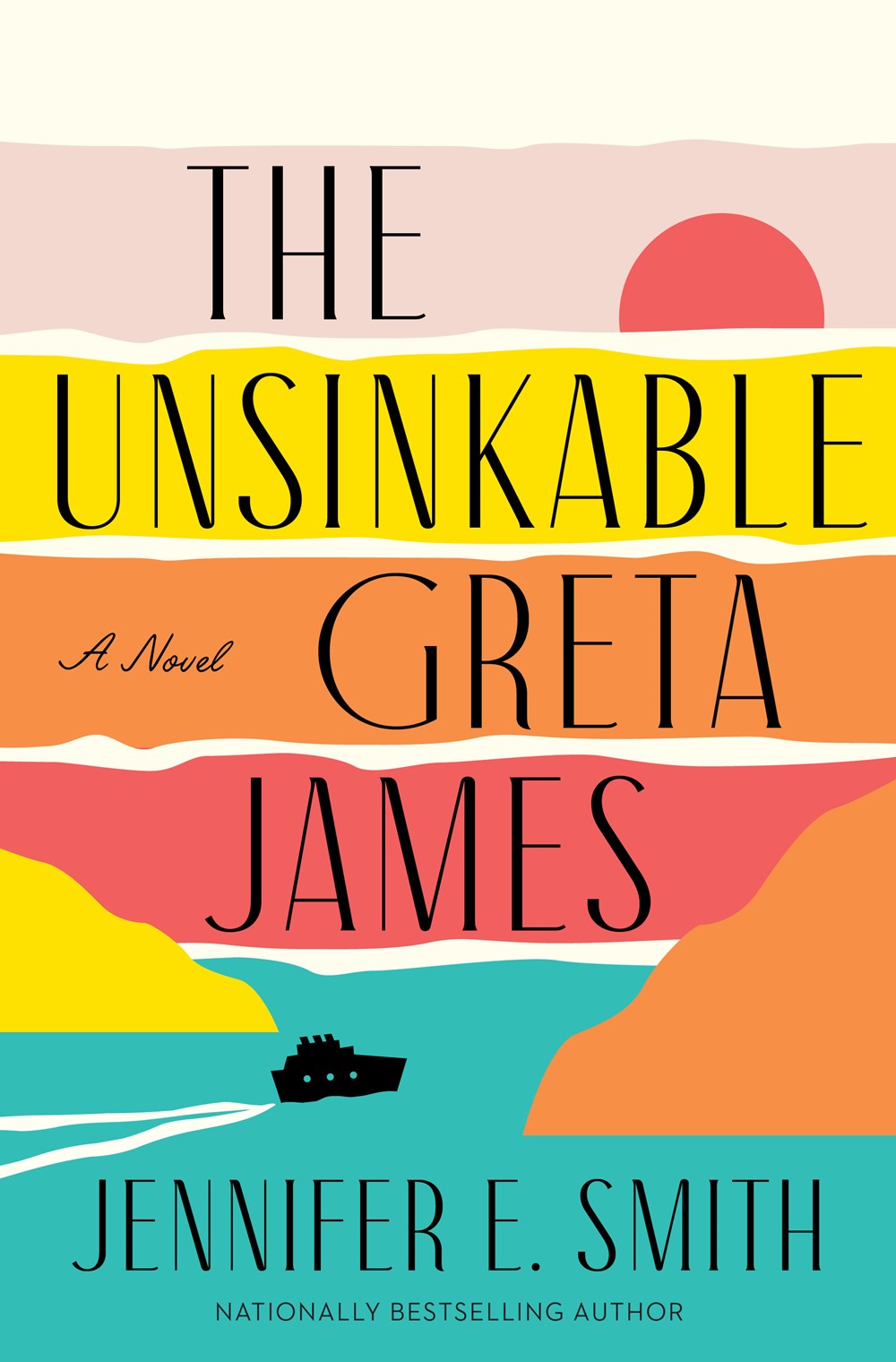
Greta James's meteoric rise to indie stardom was hard-won. Before she graced magazine covers and sold out venues, she spent her girlhood strumming her guitar in the family garage. Her first fan was her mother, Helen, whose face shone bright in the dusty downtown bars where she got her start—but not everyone encouraged Greta to follow her dreams. While many daydream about a crowd chanting their name, her father, Conrad, saw only a precarious life ahead for his daughter.Greta has spent her life trying to prove him wrong, but three months after Helen's sudden death, and weeks before the launch of her high-stakes sophomore album, Greta has an onstage meltdown that goes viral. Attempting to outrun the humiliation and heartbreak, she reluctantly agrees to accompany her father on a week-long Alaskan cruise, the very one that her parents had booked to celebrate their fortieth anniversary.
This could be the James family's last chance to heal old wounds and will prove to be a voyage of discovery for them, as well as for Ben Wilder, a historian also struggling with a major upheaval in his life. Ben is on board to lecture about Jack London's The Call of the Wild, the adventure story Greta's mother adored, and he captures Greta's attention after her streak of dating hanger-ons. As Greta works to build up her confidence and heal, and Ben confronts his uncertain future, they must rely on one another to make sense of life’s difficult choices. In the end, Greta must make the most challenging decision of all: to listen to the song within her or make peace with those who love her. [from the publisher]
I didn’t love any of the major characters. The story felt slow and tedious. Both Greta and her dad are resistant to healing individually or collectively.
My favorite part of the story, by far, was Prithi, whose name means “love” or “satisfaction”—a tween girl who captures Greta's attention on the cruise. If only she had been a greater part of the story. . . .
10 March 2022
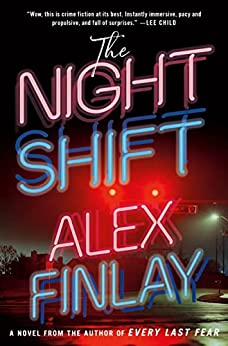
It’s New Year’s Eve 1999. Y2K is expected to end in chaos: planes falling from the sky, elevators plunging to earth, world markets collapsing. A digital apocalypse. None of that happens. But at a Blockbuster Video in Linden, New Jersey, four teenage girls working the night shift are attacked. Only one survives. Police quickly identify a suspect who flees and is never seen again.Fifteen years later, in the same town, four teenage employees working late at an ice cream store are attacked, and again only one makes it out alive.
Both surviving victims recall the killer speaking only a few final words . . . “Goodnight, pretty girl.”
In the aftermath, three lives intersect: the survivor of the Blockbuster massacre who’s forced to relive her tragedy; the brother of the original suspect, who’s convinced the police have it wrong; and the FBI agent, who’s determined to solve both cases. On a collision course toward the truth, all three lives will forever be changed, and not everyone will make it out alive. [from the publisher]
9 March 2022
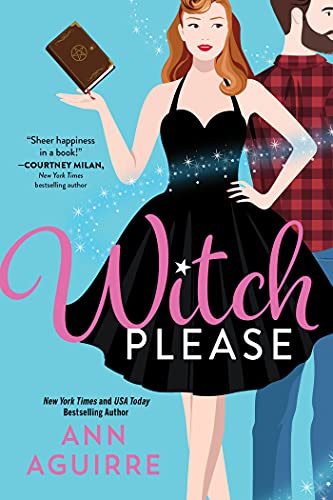
Danica Waterhouse is a fully modern witch—daughter, granddaughter, cousin, and co-owner of the Fix-It Witches, a magical tech repair shop. After a messy breakup that included way too much family “feedback,” Danica made a pact with her cousin: they’ll keep their hearts protected and have fun, without involving any of the overly opinionated Waterhouse matriarchs. Danica is more than a little exhausted navigating a long-standing family feud where Gram thinks the only good mundane is a dead one and Danica’s mother weaves floral crowns for anyone who crosses her path.Three blocks down from the Fix-It Witches, Titus Winnaker, owner of Sugar Daddy’s bakery, has family trouble of his own. After a tragic loss, all he’s got left is his sister, the bakery, and a lifetime of terrible luck in love. Sure, business is sweet, but he can’t seem to shake the romantic curse that’s left him past thirty and still a virgin. He’s decided he’s doomed to be forever alone.
Until he meets Danica Waterhouse. The sparks are instant, their attraction irresistible. For him, she’s the one. To her, he’s a firebomb thrown in the middle of a family war. Can a modern witch find love with an old-fashioned mundane who refuses to settle for anything less than forever? [from the publisher]
Content warnings: multiple explicit sex scenes; drug use
7 March 2022
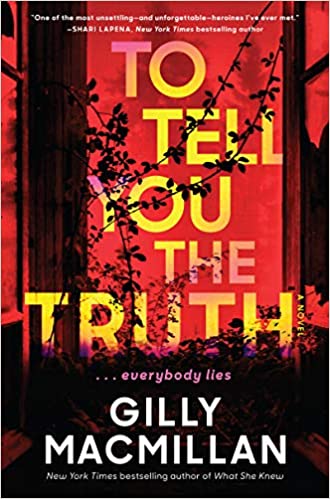
When Dan suddenly goes missing, his disappearance evokes dark memories that take Lucy back more than thirty years—to the day her brother vanished without a trace. That’s when Lucy began conjuring stories. The police investigation revealed few confirmed details, so she created tales to fill in the gaps, to explain what happened that day her brother disappeared—and young Lucy was the only witness.Now decades later, with the whole world watching, Lucy’s past and present are colliding, and this bestselling author skilled in telling stories is losing control of her own narrative.
Where is Dan? What happened to Lucy's brother? And is the brilliant mystery writer—an expert in devising red herrings and hidden clues—revealing all she knows about both disappearances? [from the publisher]
While Dan's gaslighting of his wife is clear from the outset, it takes a while for Lucy to recognize it (after which she brings it up at every narrative opportunity). With Lucy being the breadwinner of the relationship, some of the plot points were completely implausible. As Lucy is purportedly a bestselling mystery writer, I didn't buy most of her behaviors and reactions, either. I suppose the reader is expected to chalk up the unexpected behaviors to Lucy's childhood trauma being summoned by Dan's gaslighting.
There isn't a single likeable character. Everybody gets to be a suspect. The conclusion was mildly interesting, but seemed like a cheap surprise tactic, as opposed to a well-developed plot point that the reader could have intuited by the clues revealed throughout the story.
So, my bookish friends, if you just can't resist a gaslighting romantic partner, give this book a try. To most mystery lovers, I'd say you could skip this one.
6 March 2022
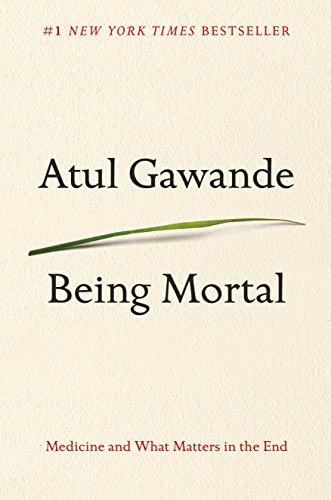
Medicine has triumphed in modern times, transforming birth, injury, and infectious disease from harrowing to manageable. But in the inevitable condition of aging and death, the goals of medicine seem too frequently to run counter to the interest of the human spirit. Nursing homes, preoccupied with safety, pin patients into railed beds and wheelchairs. Hospitals isolate the dying, checking for vital signs long after the goals of cure have become moot. Doctors, committed to extending life, continue to carry out devastating procedures that in the end extend suffering.Gawande, a practicing surgeon, addresses his profession's ultimate limitation, arguing that quality of life is the desired goal for patients and families. Gawande offers examples of freer, more socially fulfilling models for assisting the infirm and dependent elderly, and he explores the varieties of hospice care to demonstrate that a person's last weeks or months may be rich and dignified. [from the publisher]
My review then was as follows:
Sometimes difficult, fascinating, thoughtful discussion about facing our mortality and making each day of life its best (whatever that means). I think this is a must-read. Tom and I have been discussing it as I've read. We have lots to think about (individually and collectively).
I chose to reread the book in order to serve as moderator of two discussion groups for my League of Women Voters chapter. Other members seemed appreciative of the book choice. Most were reading for the first time.
Rereading the book nearly seven years later (having added life experiences), and discussing it with others, brought serious concerns and questions to my mind. I've worked on and thought about this review multiple times over several days, laboring over how to express these concerns. Maybe I'll boil it down to this for now: In the USA, being able to take advantage of many (maybe even most) of the end-of-life care choices in this book is reserved for a privileged few. Skilled nursing and assisted living facilities are extremely expensive, across the quality spectrum. The same goes for being hospitalized, needing prescription medicines, and needing outpatient procedures, of course. Despite these extreme costs to the consumer (all of us), many healthcare workers are paid woefully little. Until health and welfare outcomes are more important to our society than corporate profit, the tremendous disparities in our systems will never be repaired. [The same goes for all of our social issues: housing, education, etc.]
My rating of the book remains unchanged.
5 March 2022
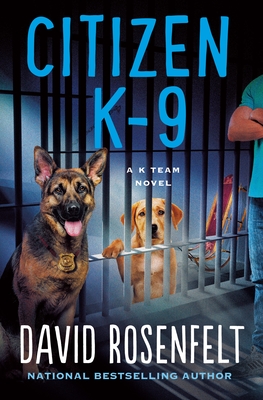
The Paterson Police Department has created a cold case division, and they want to hire the private investigators known as the K Team to look into the crimes. After all, Corey Douglas and his K-9 partner, German shepherd Simon Garfunkel, recently retired from the force. Plus, another K Team member, Laurie Collins, used to be a cop as well.Their first cold case hits home for the K Team. A decade ago, at Laurie's tenth high school reunion, two of their friends simply . . . vanished. At the time Laurie had just left the force, and Corey was in a different department, so they had no choice but to watch from the sidelines. With no leads, the case went cold.
As the team starts to delve deeper into the events leading up to that night—reopening old wounds along the way—the pieces start to come together. But someone wants to stop them from uncovering the truth behind the disappearance, by any means necessary. [from the publisher]
I liked this installment more than the first. It's funnier, more sarcastic (if memory serves), has a more interesting mystery, and includes more appearances by Simon. There are quite a few characters, making it fun to guess who is really involved and who is a red herring. I like the relationships among the team members (Corey, Laurie, and Marcus), and with their extended colleagues and their respective romantic partners.
Based on this book, I am considering not only reading the second installment in this series, but also reading more of Rosenfelt's work (including a series in which Laurie's husband—a lawyer—is the main character).
Thank you, NetGalley, Macmillan Audio, and Minotaur Books, for the audio ARC of the book in exchange for an honest review. Publication is expected March 15.
3 March 2022
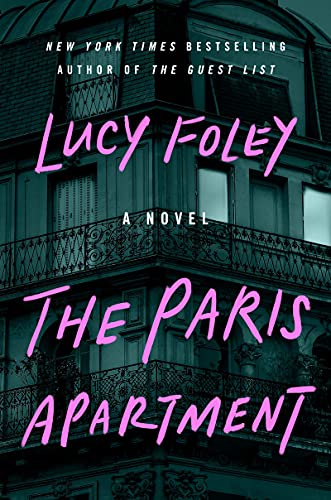
Jess needs a fresh start. She’s broke and alone, and she’s just left her job under less than ideal circumstances. Her half-brother Ben didn’t sound thrilled when she asked if she could crash with him for a bit, but he didn’t say no, and surely everything will look better from Paris. Only when she shows up—to find a very nice apartment, could Ben really have afforded this?—he’s not there.The longer Ben stays missing, the more Jess starts to dig into her brother’s situation, and the more questions she has. Ben’s neighbors are an eclectic bunch, and not particularly friendly. Jess may have come to Paris to escape her past, but it’s starting to look like it’s Ben’s future that’s in question.
The socialite—The nice guy—The alcoholic—The girl on the verge—The concierge
Everyone’s a neighbor. Everyone’s a suspect. And everyone knows something they’re not telling. [from the publisher]
As I did for Foley's The Guest List, I'm giving The Paris Apartment a tiny rating bump for being somewhat twisty. However, I thought these twists were easier to anticipate. I may continue to read Foley's mysteries if they come to my attention, but not to be in a mad rush to get my hands on them, especially if it means hogging a precious spot on my severely limited digital audio hold list.
28 February 2022
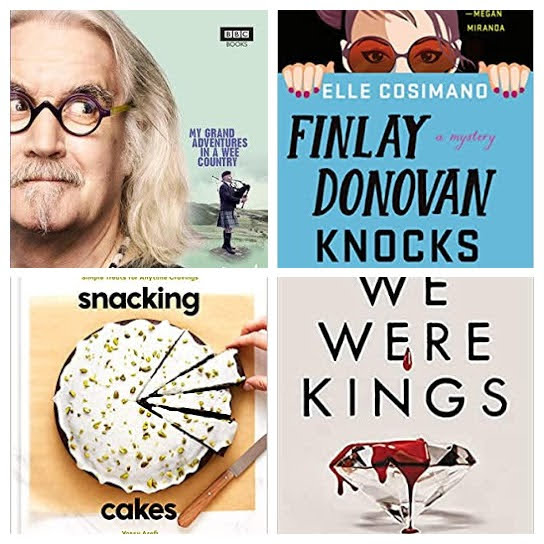
4 (or more)-star reads
- Finlay Donovan Knocks 'Em Dead (Finlay Donovan #2), Elle Cosimano
- Snacking Cakes: Simple Treats for Anytime Cravings, Yossy Arefi
- Made In Scotland: My Grand Adventures in a Wee Country, Billy Connolly
- We Were Kings, Court Stevens (4.66)
honorable mention
- The Book of Magic (Practical Magic #2), Alice Hoffman (3.66)
- The Power of Regret: How Looking Backward Moves Us Forward, Daniel H. Pink (3.5)
- When You Get the Chance, Emma Lord (3.66)
- Mr. Watson's Chickens, Jarrett Dapier, Andrea Tsurumi (Illustrator) (3.5)
- Dear Librarian, Lydia M. Sigwarth, Romina Galotta (Illustrator) (3.5)
- Stargazer, Anne Hillerman (3.5)
- The June Boys, Court Stevens (3.5)
28 February 2022
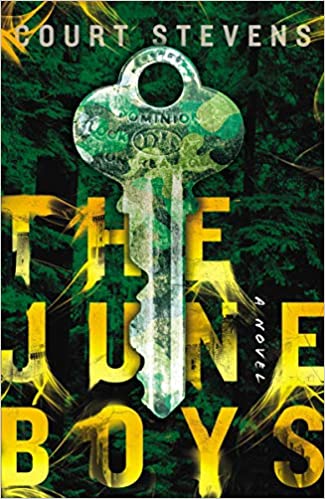
The Gemini Thief could be anyone. Your father, your mother, your best friend’s crazy uncle. Some country music star’s deranged sister. Anyone.The Gemini Thief is a serial kidnapper, who takes three boys and holds them captive from June 1st to June 30th of the following year. The June Boys endure thirteen months of being stolen, hidden, observed, and fed before they are released, unharmed, by their masked captor. The Thief is a pro, having eluded authorities for nearly a decade and taken at least twelve boys.
Now Thea Delacroix has reason to believe the Gemini Thief took a thirteenth victim: her cousin, Aulus McClaghen.
But the game changes when one of the kidnapped boys turns up dead. Together with her boyfriend Nick and her best friends, Thea is determined to find the Gemini Thief and the remaining boys before it’s too late. Only she’s beginning to wonder something sinister, something repulsive, something unbelievable, and yet, not impossible:
What if her father is the Gemini Thief? [from the publisher]
This story is also quite twisty, which I enjoy. Thea has a lot of emotional and physical support from friends and family members. While they offer a window to his state of mind during captivity, I haven't decided how I feel about the Elizabeth Letters written by Aulus and interspersed in the storytelling.
If my glowing review of We Were Kings didn't result in you dropping everything to read it immediately, I'd recommend reading The June Boys first and enjoying it on its own merits.
24 February 2022
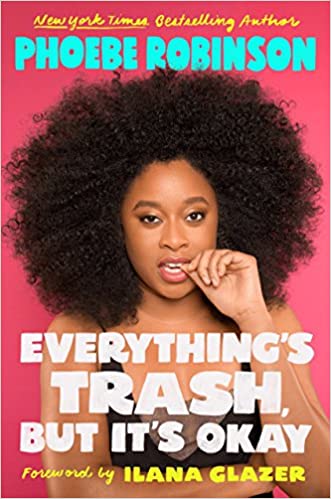
Robinson's [second] essay collection is a call to arms. She tackles a wide range of topics, such as giving feminism a tough-love talk in hopes it can become more intersectional; telling society's beauty standards to kick rocks; and demanding that toxic masculinity close its mouth and legs (enough with the manspreading already!), and get out of the way so true progress can happen. [from the publisher]
Still, Robinson has a lot to say, much of which I appreciate or admire. Here are a couple sections that were particularly impactful or interesting to me:
Show us it bothers you by behaving differently. Act as if you understand that inclusiveness is what feminism should have been about since day one, and not because you're hoping you're going to get a pat on the back for doing what you should have done in the first place. OK? [31%]
130 million girls are not in school, and it has been proven that a lack of education is directly linked to the worldwide extreme poverty crisis. So, Poverty Is Sexist was created to not only raise awareness, but to encourage people to be active in eradicating gender inequality and put pressure on world leaders to fully invest in women and girls. [59%]
21 February 2022
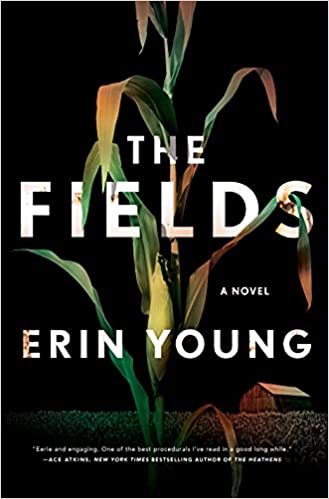
Some things don't stay buried.It starts with a body—a young woman found dead in an Iowa cornfield, on one of the few family farms still managing to compete with the giants of Big Agriculture.
When Sergeant Riley Fisher, newly promoted to head of investigations for the Black Hawk County Sheriff’s Office, arrives on the scene, an already horrific crime becomes personal when she discovers the victim was a childhood friend, connected to a dark past she thought she’d left behind.
The investigation grows complicated as more victims are found. Drawn deeper in, Riley soon discovers implications far beyond her Midwest town. [from the publisher]
Pro: woman in position of power in male-dominated field; varied family and friend relationships however challenging; interesting tidbits and discussion about farming and GMO; lots of storyline connections
Con: above-noted powerful woman not being treated with respect; brutally graphic descriptions of corpses and cannibalism; rape in present and in flashback
The unrelenting over-concentration on rape and murder detracted from the main plot severely. It would have been a much more interesting and manageable book without the extreme level of brutality.
18 February 2022
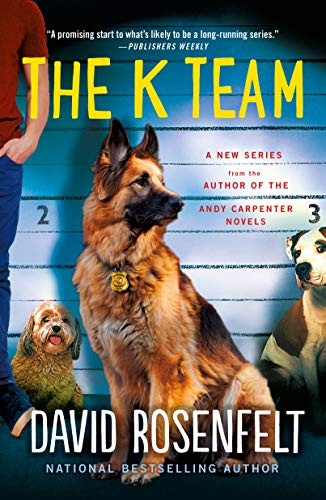
The dog wasn’t really a prominent character in this book, which seems odd given the book and series titles and covers. Nothing stuck with me about the story, even just a few days later. The general feel is of an old-time gumshoe mystery. The narrator of the audio edition gives Corey an appropriately hard-boiled/tough voice. There is some friction—or at least ribbing—among the characters who contribute to the team's work, but they still band together to get the job done.
I read this knowing that I had a NetGalley advance reader copy of the third series installment upcoming. See that review on 5 March 2022.
17 February 2022
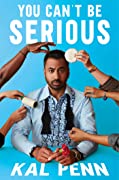
You Can’t Be Serious is a series of funny, consequential, awkward, and ridiculous stories from Kal’s idiosyncratic life. It’s about being the grandson of Gandhian freedom fighters, and the son of immigrant parents: people who came to this country with very little and went very far—and whose vision of the American dream probably never included their son sliding off an oiled-up naked woman in a raunchy Ryan Reynolds movie . . . or getting a phone call from Air Force One as Kal flew with the country’s first Black president.With intelligence, humor, and charm on every page, Kal reflects on the most exasperating and rewarding moments from his journey so far. He pulls back the curtain on the nuances of opportunity and racism in the entertainment industry and recounts how he built allies, found encouragement, and dealt with early reminders that he might never fit in. And of course, he reveals how, after a decade and a half of fighting for and enjoying successes in Hollywood, he made the terrifying but rewarding decision to take a sabbatical from a fulfilling acting career for an opportunity to serve his country as a White House aide.
Above all, You Can’t Be Serious shows that everyone can have more than one life story. Kal demonstrates by example that no matter who you are and where you come from, you have many more choices than those presented to you. It’s a story about struggle, triumph, and learning how to keep your head up. And okay, yes, it’s also about how he accidentally (and very stupidly) accepted an invitation to take the entire White House Office of Public Engagement to a strip club—because, let’s be honest, that’s the kind of stuff you really want to hear about. [from the publisher]
16 February 2022
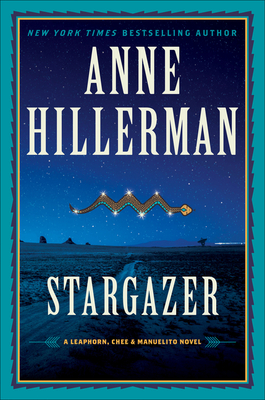
What begins as a typical day for Officer Bernadette Manuelito—serving a bench warrant, dealing with a herd of cattle obstructing traffic, and stumbling across a crime scene—takes an unexpected twist when she’s called to help find an old friend. Years ago, Bernie and Maya were roommates, but time and Maya’s struggles with addiction drove them apart. Now Maya’s brother asks Bernie to find out what happened to his sister.Tracing Maya’s whereabouts, Bernie learns that her old friend had confessed to the murder of her estranged husband, a prominent astronomer. But the details don’t align. Suspicious, Bernie takes a closer look at the case only to find that nothing is as it seems. Uncovering new information about the astronomer’s work leads Bernie to a remote spot on the Navajo Nation and a calculating killer.
The investigation causes an unexpected rift with her husband and new acting boss, Jim Chee, who’s sure Bernie’s headed for trouble. While she’s caught between present and past, Chee is at a crossroads of his own. Burdened with new responsibilities he didn’t ask for and doesn’t want, he must decide what the future holds for him and act accordingly.
Can their mentor Joe Leaphorn—a man also looking at the past for answers to the future—provide the guidance both Bernie and Chee need? And will the Navajo heroes that stud the starry sky help them find justice—and the truth they seek? [from the publisher]
15 February 2022
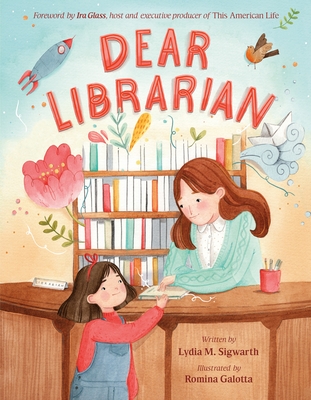
When Lydia was five years old, she and her family had to leave their home. They hopped from Grandma's house to Aunt Linda's house to Cousin Alice's house, but no place was permanent. Then one day, everything changed. Lydia's mom took her to a new place—not a house, but a big building with stone columns, and tall, tall steps. The library.In the library, Lydia found her special spot across from the sunny window, at a round desk. For behind that desk was her new friend, the librarian. Together, Lydia and the librarian discovered a world beyond their walls, one that sparkled with spectacular joy.
Dear Librarian is a thank you to anyone who has offered a child love and support during a difficult time. [from the publisher]
I especially loved the illustrations on the spread about the librarian reading a book about princesses to the author. In it, Lydia, wearing a princess cap, is protecting a dragon from Debra's sword.
The author's letter at the end talks about homelessness affecting around 2.5 million children every year. The care given by the librarian to the author when she was experiencing homelessness as a child is just one example of the many ways that librarians and libraries materially support their communities.
14 February 2022
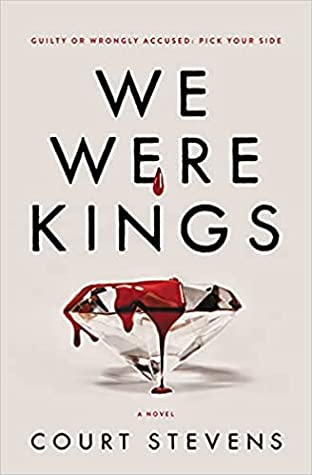
Twenty years ago, eighteen-year-old Francis Quick was convicted of murdering her best friend Cora King and sentenced to death. Now the highly debated Accelerated Death Penalty Act passes and gives Frankie thirty final days to live. From the Kings’ own family rises up the one who will challenge the woefully inadequate evidence and potential innocence of Francis Quick.The at-first reluctant and soon-fiery Nyla and her sidekick (and handsome country island boy), Sam Stack, bring Frankie’s case to the international stage through her YouTube channel Death Daze. They step into fame and a hometown battle that someone’s still willing to kill over. The senator? The philanthropist? The pawn shop owner? Nyla’s own mother?
Best advice: Don’t go to family dinner with the Kings. More people will leave the dining room in body bags than on their own two feet. And as for Francis Quick, she’s a gem . . . even if she’s guilty. [from the publisher]
As soon as I finished reading, I ordered a signed hardcover from Parnassus (one of my favorite sources of signed books). I will definitely look for more by this author.
11 February 2022

The audiobook wasn't in Billy's delightful Scottish voice, but was delivered in the delightful Scottish voice of Gordon Gilbert Kennedy, a Scottish actor, presenter, and narrator.
10 February 2022
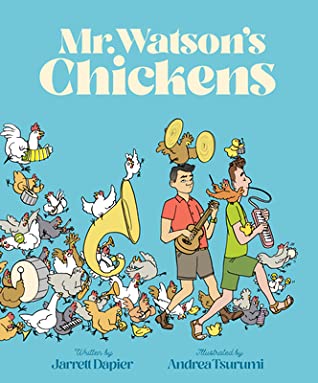
Mr. Watson has 456 chickens in the sink, on the bed, in the bread box. When his partner, Mr. Nelson, threatens to leave, Mr. Watson takes his chickens to town to sell only for them to escape! Young readers will follow Mr. Watson all around town as he gathers up his chickens. But, when they're all rounded up, does he have the heart to sell them? Does a different fate await these chickens? [from the publisher]
10 February 2022
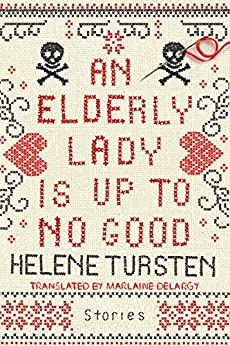
Maud is an irascible 88-year-old Swedish woman with no family, no friends, and . . . no qualms about a little murder. This funny, irreverent story collection by Helene Tursten, author of the Irene Huss investigations, features two-never-before translated stories that will keep you laughing all the way to the retirement home.Ever since her darling father’s untimely death when she was only eighteen, Maud has lived in the family’s spacious apartment in downtown Gothenburg rent-free, thanks to a minor clause in a hastily negotiated contract. That was how Maud learned that good things can come from tragedy. Now in her late eighties, Maud contents herself with traveling the world and surfing the net from the comfort of her father’s ancient armchair. It’s a solitary existence, but she likes it that way.
Over the course of her adventures—or misadventures—this little bold lady will handle a crisis with a local celebrity who has her eyes on Maud’s apartment, foil the engagement of her long-ago lover, and dispose of some pesky neighbors. But when the local authorities are called to investigate a murder in her apartment complex, will Maud be able to avoid suspicion, or will Detective Inspector Irene Huss see through her charade? [from the publisher]
9 February 2022
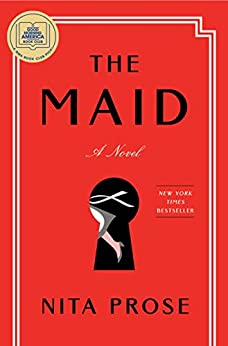
Molly Gray is not like everyone else. She struggles with social skills and misreads the intentions of others. Her gran used to interpret the world for her, codifying it into simple rules that Molly could live by.Since Gran died a few months ago, twenty-five-year-old Molly has been navigating life’s complexities all by herself. No matter—she throws herself with gusto into her work as a hotel maid. Her unique character, along with her obsessive love of cleaning and proper etiquette, make her an ideal fit for the job. She delights in donning her crisp uniform each morning, stocking her cart with miniature soaps and bottles, and returning guest rooms at the Regency Grand Hotel to a state of perfection.
But Molly’s orderly life is upended the day she enters the suite of the infamous and wealthy Charles Black, only to find it in a state of disarray and Mr. Black himself dead in his bed. Before she knows what’s happening, Molly’s unusual demeanor has the police targeting her as their lead suspect. She quickly finds herself caught in a web of deception, one she has no idea how to untangle. Fortunately for Molly, friends she never knew she had unite with her in a search for clues to what really happened to Mr. Black—but will they be able to find the real killer before it’s too late? [from the publisher]
Pro: Molly's true friends, the conclusion
Con: Molly's complete inability to read social cues and her constant Gran-isms
8 February 2022
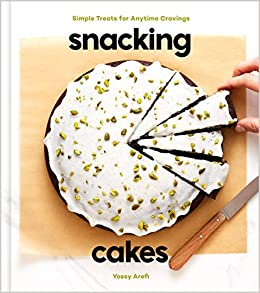

The recipes are meant to be so easy to make that you can have cake every day, using ingredients you probably already have in your kitchen, a single bowl (no mixer required), and a square pan (though options are given for some cakes).
My first (and only thus far) attempt was the Chocolate-Almond Olive Oil Cake with Raspberries. We didn't have almond flour in the house (we do now; we could have substituted additional all-purpose flour) and we bought fresh raspberries, as they don't last long. The cake was much less sweet than what we're accustomed to, but that's not a bad thing. It's the first cake I've made with olive oil—at first it tasted a little bit strange/different, but it wasn't unpleasant and we adjusted to it quickly. It's also my first time baking with a bit of almond flour.
I baked on Tuesday, February 8. We taste-tested that night before bed, froze a couple of pieces for Valentine's Day (we ended up not pulling them out because we baked a giant carrot layer cake days later for my birthday), and stuck the rest in the fridge to pick at during the week. The cake tasted good cold from the fridge. We'll have to see how the frozen pieces turn out. Hopefully we won't forget about them.
I absolutely love that measurements are listed both in cups (volume) and grams (weight). For everything except tiny measurements (spoons), I prefer measuring by weight.
Don't believe the author's assertion that you'll have the batter mixed before the oven preheats—she must either have an assistant or gather and measure all the ingredients before starting. Still, it was easy to make and quite tasty. I'm looking forward to trying more of the recipes. To that end, I ended up buying the e-book for myself. The notes I had made in my borrowed book transferred to my purchased book automatically.
8 February 2022
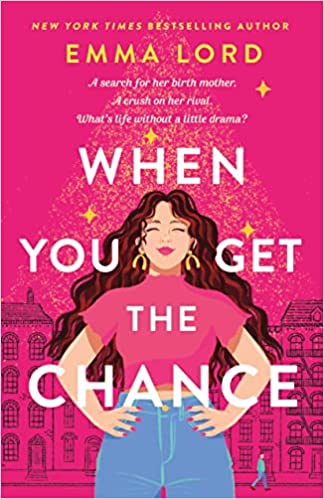
Nothing will get in the way of Millie Price’s dream to become a Broadway star. Not her lovable but super-introverted dad, who after raising Millie alone, doesn’t want to watch her leave home to pursue her dream. Not her pesky and ongoing drama club rival, Oliver, who is the very definition of Simmering Romantic Tension. And not the “Millie Moods,” the feelings of intense emotion that threaten to overwhelm, always at maddeningly inconvenient times. Millie needs an ally. And when a left-open browser brings Millie to her dad’s embarrassingly moody LiveJournal from 2003, Millie knows just what to do. She’s going to find her mom.There’s Steph, a still-aspiring stage actress and receptionist at a talent agency. There’s Farrah, ethereal dance teacher who clearly doesn’t have the two left feet Millie has. And Beth, the chipper and sweet stage enthusiast with an equally exuberant fifteen-year-old daughter (A possible sister?! This is getting out of hand). But how can you find a new part of your life and expect it to fit into your old one, without leaving any marks? And why is it that when you go looking for the past, it somehow keeps bringing you back to what you’ve had all along? [from the publisher]
The battle-of-the-summer-interns and rival-turned-romantic-partner aspects were predictable, of course. Millie was too much for some reviewers: she's a bit loud, dramatic, and immature. I thought it fitting for her character type and age. The end was a little too “happily ever after,” but who doesn't need that occasionally?
Content warnings include child abandonment; little, if any, bad language; nothing steamier than kissing.
Representation includes an Asian family and LGBTQ family members and friends.
7 February 2022
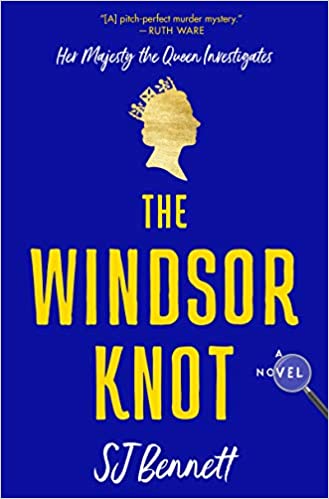
It is the early spring of 2016 and Queen Elizabeth is at Windsor Castle in advance of her 90th birthday celebrations. But the preparations are interrupted when a guest is found dead in one of the Castle bedrooms. The scene suggests the young Russian pianist strangled himself, but a badly tied knot leads MI5 to suspect foul play was involved. The Queen leaves the investigation to the professionals—until their suspicions point them in the wrong direction.Unhappy at the mishandling of the case and concerned for her staff’s morale, the monarch decides to discreetly take matters into her own hands. With help from her Assistant Private Secretary, Rozie Oshodi, a British Nigerian and recent officer in the Royal Horse Artillery, the Queen secretly begins making inquiries. As she carries out her royal duties with her usual aplomb, no one in the Royal Household, the government, or the public knows that the resolute Elizabeth will use her keen eye, quick mind, and steady nerve to bring a murderer to justice. [from the publisher]
5 February 2022
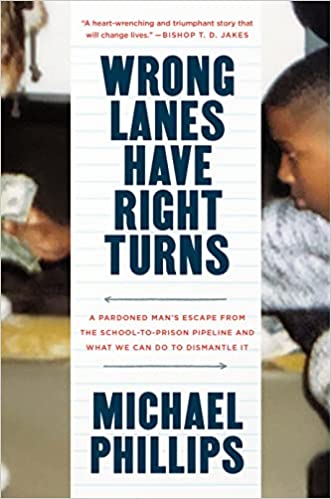
Michael Phillips would never become anything. At least, that's what he was told. It seemed like everyone was waiting for him to just fall through the cracks. After losing his father, suffering a life-altering car accident, and losing his college scholarship, Michael turned to selling drugs to make ends meet. But when his house was raided, he was arrested and thrown into a living nightmare.When it looked like he would be sentenced to spend years behind bars, the judge gave him a choice—go to a special college program for adjudicated youth or face the possibility of a thirty-year prison sentence. It wasn't hard to pick. From that choice, a mission was born—to help change the system that shuffles so many young Black men like Michael straight from school to prison. Today, Michael is the pastor of a thriving church, a local leader in Baltimore, and a member of the Maryland State Board of Education. He discovered that education was the path to becoming who he was created to be.
Armed with research, statistics, and his powerful story, Michael tackles the embedded privilege of the education system and introduces ideas for change that could level the playing field and reduce negative impacts on vulnerable youth. He explores ways in which the readers can help advocate and provide resources for students, and points us to the one thing anyone can start doing, no matter who we are or what our role is: speak into young kids' lives. Tell them of their inherent worth and purpose. [from the publisher]
5 February 2022
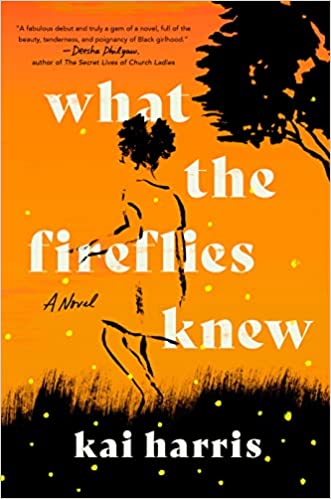
In the vein of Jesmyn Ward's Salvage the Bones and Sue Monk Kidd's The Secret Life of Bees, a coming-of-age novel told from the perspective of eleven-year-old KB, as she and her sister try, over the course of a summer, to make sense of their new life with their estranged grandfather after the death of their father and disappearance of their mother.After her father dies of an overdose and the debts incurred from his addiction cause the loss of the family home in Detroit, almost-eleven-year-old Kenyatta Bernice (KB) and her teenage sister, Nia, are sent by their overwhelmed mother to live with their estranged grandfather in Lansing.
Over the course of a single, sweltering summer, KB attempts to get her bearings in a world that has turned upside down—a father who is labeled a fiend; a mother whose smile no longer reaches her eyes; a sister, once her best friend, who has crossed the threshold of adolescence and suddenly wants nothing to do with her; a grandfather who is grumpy and silent; the white kids across the street who are friendly, but only sometimes. And all of them are keeping secrets.
Pinballing between resentment, abandonment, and loneliness, KB is forced to carve out a different identity for herself and find her own voice. As she examines the jagged pieces of her recently shattered world, she learns that while some truths cut deep, a new life—and a new KB—can be built from the shards. [from the publisher]
Content warnings include sexual assault of minors; drug abuse, including suicide by overdose; and child abandonment.
This is an example of how dangerous it is for publishers and others to constantly compare new books to other books (in this case, The Secret Life of Bees). I so often find that when such comparisons are made—especially to a really popular and well-received book—I am disappointed.
3 February 2022
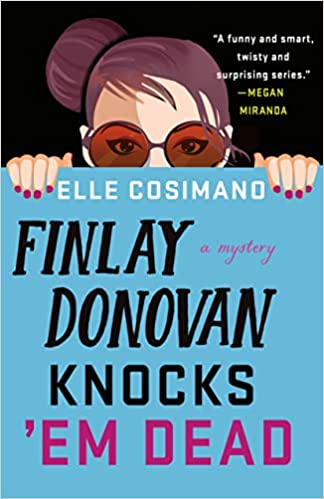
Finlay Donovan is―once again―struggling to finish her next novel and keep her head above water as a single mother of two. On the bright side, she has her live-in nanny and confidant Vero to rely on, and the only dead body she's dealt with lately is that of her daughter's pet goldfish.On the not-so-bright side, someone out there wants her ex-husband, Steven, out of the picture. Permanently. Whatever else Steven may be, he's a good father, but saving him will send her down a rabbit hole of hit-women disguised as soccer moms, and a little bit more involvement with the Russian mob than she'd like.
Meanwhile, Vero's keeping secrets, and Detective Nick Anthony seems determined to get back into her life. He may be a hot cop, but Finlay's first priority is preventing her family from sleeping with the fishes . . . and if that means bending a few laws then so be it.
With her next book's deadline looming and an ex-husband to keep alive, Finlay is quickly coming to the end of her rope. She can only hope there isn't a noose at the end of it. . . . [from the publisher]
I wish there were more installments ready to read.
2 February 2022
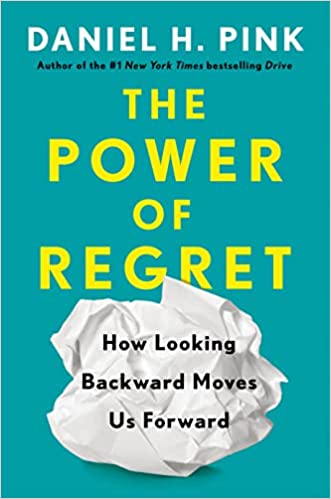
I purchased the Kindle version of the book and borrowed the audio edition from the library—this is definitely a type of book that I like to read with my ears and eyes concurrently. I highlighted 34 bookmarks from the audio into my e-book.
In typical Pink fashion, the different types of regret are described [“Nearly all regrets fall into four core categories—foundation regrets, boldness regrets, moral regrets, and connections regrets.” (14)], and he discusses whether/how regrets can be fixed (or if they can serve, at least, to improve future decision-making).
To me, the most interesting part was a discussion of what can be gleaned from the results of the American Regret Project survey based on age, gender, race, or education level of the respondents.
1 February 2022
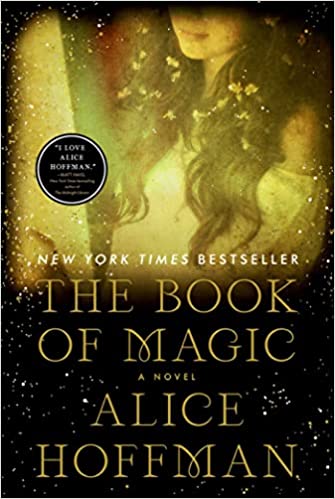
The Owens family has been cursed in matters of love for over three-hundred years but all of that is about to change. The novel begins in a library, the best place for a story to be conjured, when beloved aunt Jet Owens hears the deathwatch beetle and knows she has only seven days to live. Jet is not the only one in danger—the curse is already at work.A frantic attempt to save a young man’s life spurs three generations of the Owens women, and one long-lost brother, to use their unusual gifts to break the curse as they travel from Paris to London to the English countryside where their ancestor Maria Owens first practiced the Unnamed Art. The younger generation discovers secrets that have been hidden from them in matters of both magic and love by Sally, their fiercely protective mother. As Kylie Owens uncovers the truth about who she is and what her own dark powers are, her aunt Franny comes to understand that she is ready to sacrifice everything for her family, and Sally Owens realizes that she is willing to give up everything for love. [from the publisher]
- Book 1 published in 1995—I read in 2007 [no star rating available (bookish app I was using at the time suddenly went belly-up), but I recollect liking it a lot]
- Book 0.2 published in 2017—I read in 2019 [4 stars]
- Book 0.1 published in 2020—I haven't read yet
- Book 2 published in 2021—I read in 2022 (current review)
So, I read the series, with the exception of one installment, in publication order.
In this (apparently final) installment, I was frustrated trying to keep up with the family connections—there are too many generations and/or it's been too long since the last chronological installment to keep everyone straight. By the end of the book, I had either caught up or didn't care that much.
The importance of reading and libraries is a running theme throughout the book.
I liked that the family came together to save one member. Too, the various relationships—within and outside of the family—were well-developed.
Obviously, I enjoyed the book quite a bit. Still, I don't perceive that I liked it as much as the two other installments I've read. However, that could just be a gut feeling. Sometime that I have a chunk time to devote and I'm in the mood, I hope to (re)read the entire series in chronological order. I'll be interested to see what my feelings are after that experience.
If you like fantasy, magical realism, magic, witches and/or love stories, you might enjoy this series, including this finale.
31 January 2022
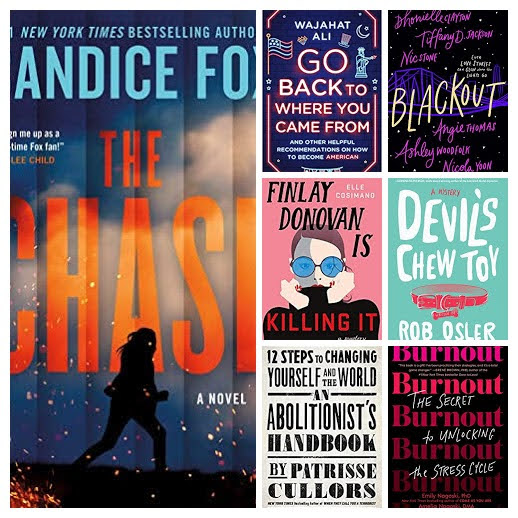
4-star reads
- Finlay Donovan Is Killing It, Elle Cosimano
- An Abolitionist's Handbook: 12 Steps to Changing Yourself and the World, Patrisse Khan-Cullors
- Burnout: The Secret to Unlocking the Stress Cycle, Emily Nagoski & Amelia Nagoski
- Blackout, Dhonielle Clayton, Tiffany D. Jackson, Nic Stone, Angie Thomas, Ashley Woodfolk, Nicola Yoon
- Devil's Chew Toy, Rob Osler (4.35)
- The Chase, Candice Fox
- Go Back to Where You Came From: And Other Helpful Recommendations on How to Become an American, Wajahat Ali (4.35)
honorable mention
- Minimum Wage Magic, Rachel Aaron (3.66)
- Here's to Us (What If It's Us #2), Becky Albertalli & Adam Silvera (3.5)
- The Last Chance Library, Freya Sampson (3.5)
- Love in the Library, Maggie Tokuda-Hall & Yas Imamura (Illustrator) (3.5)
- How We Can Win: Race, History and Changing the Money Game That's Rigged, Kimberly Jones (3.5)
- Bird by Bird: Some Instructions on Writing and Life, Anne Lamott (reread; 3.5)
31 January 2022
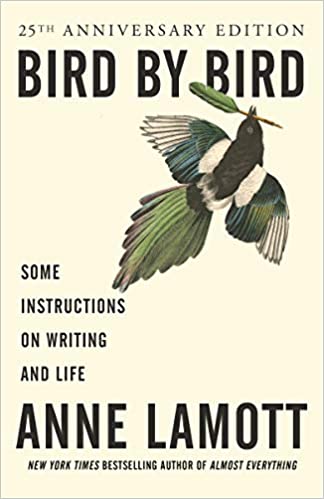
For a quarter century, more than a million readers—scribes and scribblers of all ages and abilities—have been inspired by Anne Lamott’s hilarious, big-hearted, homespun advice. Advice that begins with the simple words of wisdom passed down from Anne’s father—also a writer—in the iconic passage that gives the book its title:“Thirty years ago my older brother, who was ten years old at the time, was trying to get a report on birds written that he’d had three months to write. It was due the next day. We were out at our family cabin in Bolinas, and he was at the kitchen table close to tears, surrounded by binder paper and pencils and unopened books on birds, immobilized by the hugeness of the task ahead. Then my father sat down beside him, put his arm around my brother’s shoulder, and said, ‘Bird by bird, buddy. Just take it bird by bird.’” [from the publisher]
If one is not an aspiring writer (I, most often, am not), one might wonder if there is benefit to reading Bird by Bird. I'd say, “Maybe.” That's where the subtitle and memoir portions come in—some instructions on life. Lamott has some ideas and preferences that will be off-putting to some. I will remind you and myself that we can take what works for us and leave the rest.
The book (nearly) ends on this note:
Writing and reading decrease our sense of isolation. They deepen and widen and expand our sense of life: they feed the soul. [237]
The audio edition is superbly narrated by Susan C. Bennett, the original voice of SIRI.
30 January 2022
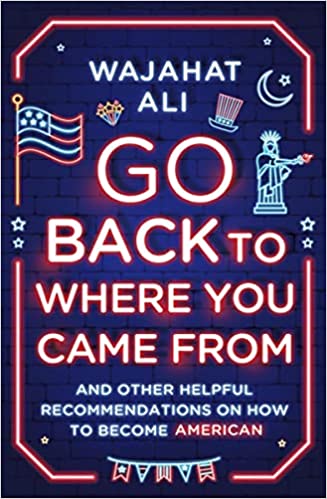
This is just one of the many warm, lovely, and helpful tips that Wajahat Ali and other children of immigrants receive on a daily basis. Go back where, exactly? Fremont, California, where he grew up, but is now an unaffordable place to live? Or Pakistan, the country his parents left behind a half-century ago?Growing up living the suburban American dream, young Wajahat devoured comic books (devoid of brown superheroes) and fielded well-intentioned advice from uncles and aunties. (“Become a doctor!”) He had turmeric stains under his fingernails, was accident-prone, suffered from OCD, and wore Husky pants, but he was as American as his neighbors, with roots all over the world. Then, while Ali was studying at University of California, Berkeley, 9/11 happened. Muslims replaced communists as America’s enemy #1, and he became an accidental spokesman and ambassador of all ordinary, unthreatening things Muslim-y.
Now a middle-aged dad, Ali has become one of the foremost and funniest public intellectuals in America. In Go Back to Where You Came From, he tackles the dangers of Islamophobia, white supremacy, and chocolate hummus, peppering personal stories with astute insights into national security, immigration, and pop culture. In this refreshingly bold, hopeful, and uproarious memoir, Ali offers indispensable lessons for cultivating a more compassionate, inclusive, and delicious America. [from the publisher]
The book opens with several examples of racist comments strangers have hurled at the author, along with his responses (often attempting to diffuse the situation with humor). Here's an example:
“You are just a parasite!”“Thank you! Parasites get a bad rep. But, did you know that some of us actually help protect the host from infection, diseases, and ailments? In the case of America, we protect this country from eating bland food, doing manual labor, competing in spelling competitions, driving around New York City, engineering, performing their own surgeries, economic collapse, and making fools out of themselves when they attempt to wear a sari without guidance.” [Introduction]
I flagged quite a few sections for later review and reflection, right through the Acknowledgments at the end. I don't want to share additional quotes here, though—I want you to discover them on your own.
The book is a funny, warm, savvy, sad, smart combination of memoir and social/political commentary. I hope and trust that this won't be my last exposure to Mr. Ali.
27 January 2022
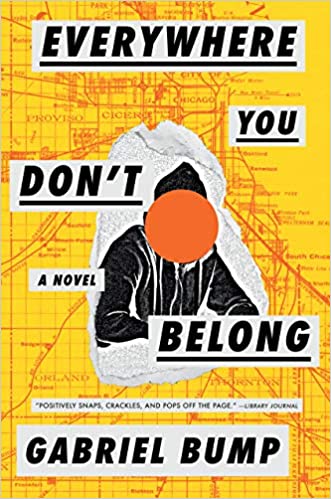
Claude just wants a place where he can fit. As a young black man born on the South Side of Chicago, he is raised by his civil rights–era grandmother, who tries to shape him into a principled actor for change; yet when riots consume his neighborhood, he hesitates to take sides, unwilling to let race define his life. He decides to escape Chicago for another place, to go to college, to find a new identity, to leave the pressure cooker of his hometown behind. But as he discovers, he cannot; there is no safe haven for a young black man in this time and place called America. [from the publisher]
Claude is an appealing character. He has strong relationships with his guardians—his grandmother and her longtime live-in friend Paul (who is gay)—and his friends. Very early in the story, Paul's romantic partner has the following touching interchange with Claude.
“What are you going to do when you're married?” Teeth asked me.“Go on adventures,” I said.
The bulk of the book is, unsurprisingly, less sweet and more heartbreaking: systemic racism, violence, and the continuing battle for civil rights. Even after Claude leaves the South Side for university, he can't escape. The conclusion feels somewhat sudden, but is moving.
27 January 2022
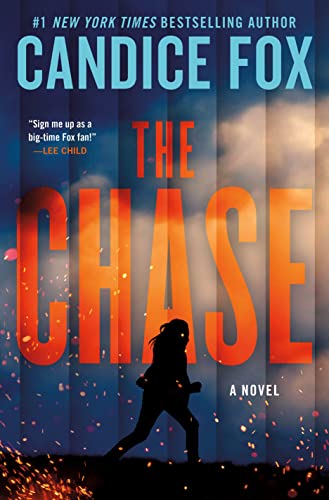
“Are you listening, Warden?”“What do you want?”
“I want you to let them out.”
“Which inmates are we talking about?”
“All of them.”
When 650 of the world’s most violent human beings pour out of the Pronghorn Correctional Facility into the Nevada Desert, the biggest manhunt in US history begins.
For John Kradle, this is his chance to prove his innocence, twenty-six years after the murder of his wife and child. He just needs to stay one step ahead of the law enforcement officers he knows will be chasing down the escapees.
Death Row Supervisor turned fugitive-hunter Celine Osbourne is single-minded in her mission to catch Kradle. She has very personal reasons for hating him—and she knows exactly where he’s heading. . . . [from the publisher]
The audio edition has two narrators: Lisa Negron and David de Vries. Negron's reading was almost entirely monotonous, which made it harder to enjoy and follow the story. I don't tend to look for particular narrators' work—that is, my reading choices are based on topic and author, generally. An excellent or poor narrator will sometimes color my purchase choices or even my borrowing choices, if my choices are plentiful. David de Vries' narration was quite good, for both male and female voices.
This is my first experience with this author. I will gladly read her work again. The story was engaging. Once I was involved, I didn't want to stop reading.
Content warnings include violence, racism, homophobia, and misogyny. The book didn't strike me as gratuitously violent—it's probably in line with what most mystery and thriller readers encounter regularly.
Thank you, NetGalley, Macmillan Audio, and Forge Books, for the audio ARC of the book in exchange for an honest review. Publication is expected March 8.
24 January 2022

It's been several months since the 2016 presidential election, and “Uncle Joe” Biden is puttering around his house, grouting the tile in his master bathroom, feeling lost and adrift in an America that doesn't make sense anymore.But when his favorite Amtrak conductor dies in a suspicious accident, Joe feels a familiar desire to serve - and he leap into the role of amateur sleuth, with a little help from his old friend President Barack Obama (code name: Renegade). Together they'll plumb the darkest depths of Delaware, traveling from cheap motels to biker bars and beyond, as they uncover the sinister forces advancing America's opioid epidemic. [from the publisher]
23 January 2022
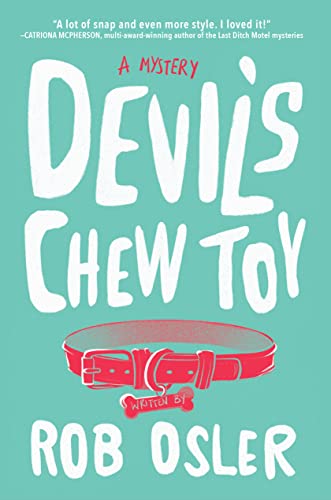
Seattle teacher and part-time blogger Hayden McCall wakes up sporting one hell of a shiner, with the police knocking at his door. It seems that his new crush, dancer Camilo Rodriguez, has gone missing, and they suspect foul play. What happened the night before? And where is Camilo?Determined to find answers, pint-sized, good-hearted Hayden seeks out two of Camilo’s friends—Hollister and Burley—both lesbians and both fiercely devoted to their friend. From them, Hayden learns that Camilo is a “Dreamer” whose parents had been deported years earlier and whose sister is presumed to have returned to Venezuela with them. Convinced that the cops won’t take a brown boy’s disappearance seriously, the girls join Hayden’s hunt for Camilo.
The first clues turn up at Barkingham Palace, a pet store where Camilo had taken a part-time job. The store’s owner, Della Rupert, claims ignorance, but Hayden knows something is up. And then there’s Camilo’s ex-boyfriend, Ryan, who’s suddenly grown inexplicably wealthy. When Hayden and Hollister follow Ryan to a secure airport warehouse, they make a shocking connection between him and Della—and uncover the twisted scheme that’s made both of them rich.
The trail of clues leads them to the grounds of a magnificent estate on an island in Puget Sound, where they’ll finally learn the truth about Camilo’s disappearance—and the fate of his family. [from the publisher]
There is excellent diversity in the cast, including characters who are LGBTQ, of color, and of varying generations and walks of life. In addition to the characters mentioned in the publisher blurb, Hayden's neighbor, Sarah Lee; Hayden's Aunt Sally; Sally's elderly neighbor, Jerry; and Camilo's bull terrier, Commando; make notable appearances.
There's considerable character development, without getting tedious, and significant relationships are formed. Several social and racial justice issues are also important to the story. There's a lot of humor. There's a terrific twist at the end.
My reading experience was so thoroughly enjoyable that I hope this will be the first of a long series!
Thank you, NetGalley and Dreamscape Media, for the audio ARC of the book in exchange for an honest review. Publication is expected February 8.
21 January 2022
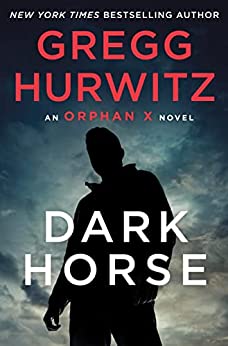
Evan Smoak is a man with many identities and a challenging past. As Orphan X, he was a government assassin for the off-the-books Orphan Program. After he broke with the Program, he adopted a new name and a new mission—The Nowhere Man, helping the most desperate in their times of trouble. Having just survived an attack on his life, and the complete devastation of his base of operations, as well as his complicated (and deepening) relationship with his neighbor Mia Hall, Evan isn't interested in taking on a new mission. But one finds him anyway.I read Orphan X—the first book in this series—just shy of a year ago. At the time, my only comment was “Yes, sort of Jack Reacher-ish.” I rated it 3 stars. I rate some installments of the Jack Reacher series (by Lee Child) 3 stars as well; but I just as (if not more) often rate them 4 stars. Why? I'll get to that in a moment.Aragon Urrea is a kingpin of a major drug-dealing operation in South Texas. He's also the patron of the local area—supplying employment in legitimate operations, providing help to the helpless, a rough justice to the downtrodden, and a future to a people normally with little hope. He's complicated—a not completely good man, who does bad things for often good reasons. However, for all his money and power, he is helpless when one of the most vicious cartels kidnaps his innocent eighteen year old daughter, spiriting her away into the armored complex that is their headquarters in Mexico. With no other way to rescue his daughter, he turns to The Nowhere Man.
Now not only must Evan figure out how to get into the impregnable fortress of a heavily armed, deeply paranoid cartel leader, but he must decide if he should help a very bad man—no matter how just the cause. [from the publisher]
This is the seventh installment of the Orphan X series. It looks like Hurwitz is cranking out roughly one per year. I haven't read the second through sixth books yet in no small part because my library only has book six in audio format (I purchased the audio edition of book one, and didn't like it enough to purchase subsequent installments). When the opportunity to read Dark Horse—book seven—came up on NetGalley, I jumped on it. I think there's enough background given in this installment that one won't be confused if they haven't read the series in order.
Barely into the story (in the first 10–20 pages), we're already dealing with the rape of one teenage girl and the kidnapping of another. Ugh! I almost reconsidered reading the book; but I haven't bailed on a NetGalley book yet and I really don't want to break my streak if I can help it. So, I kept reading. After a bit, there are scenes with an appealing character—16-year-old computer whiz, Joey (and her dog, Dog), whom I don't remember from the first book. Maybe she first appears in one of the installments I didn't read—it didn't seem like this was her debut. More Joey, please! Also, we learn that main character Evan Smoak made an exciting personal discovery in book six. At this point, I thought I might want to go back and read at least the previous book. That feeling didn't last long. Most of this 432-page book is brutally and gratuitously violent. [Not too far in, there are also appearances by Smoak's love interest, Mia, and her kid—both of whom I met in the first book. All three of these characters from Evan's personal life pop up again at the end of this book, but it's not enough to salvage it.]
So, I did a little thinking today about why I don't hesitate to keep reading the Jack Reacher series—which also includes some extreme violence—while I am so much less interested in reading more of the Orphan X series. The obvious difference is the level and use of violence. In the Reacher series, violence may happen along the way as part of advancing the plot, but it's not the main event. In contrast, Dark Horse was unrelentingly violent. The violence is so prevalent that it completely drowns the plot. [There was also extreme violence in the first installment—including sexual violence. The first book has some cool parts involving Smoak's home/headquarters. Again, that doesn't sufficiently offset the extreme violence.] Part of the difference in my perceptions of the two series may also be that the Reacher series leans toward mystery and the Orphan X series seems to lean toward thriller. Reacher has to figure out who is behind The Bad Thing; Smoak knows who it is (if not immediately, quite soon) and just goes off to “handle it.”
Thank you, NetGalley, Macmillan Audio, and Minotaur Books, for the audio ARC of the book in exchange for an honest review. Publication is expected February 8.
19 January 2022
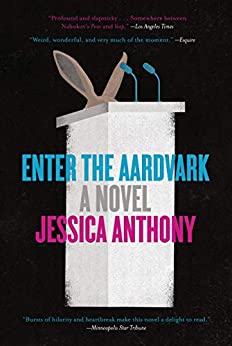
A young congressman discovers a mysterious stuffed aardvark on his doorstep and sets out on a rip-roaring journey to find out what it means.It's early one morning on a hot day in August, and millennial congressman Alexander Paine Wilson (R), planning his first reelection campaign and in deep denial about his sexuality, receives a mysterious, over-sized FedEx delivery on his front stoop. Inside is a gigantic taxidermied aardvark.
This outrageous, edge-of-your-seat novel hurtles between contemporary Washington, DC, where Wilson tries to get rid of the unsightly beast before it destroys his career, and Victorian England—where we meet Titus Downing, the taxidermist who stuffed the aardvark, and Richard Ostlet, the naturalist who hunted her. Our present world, we begin to see, has been shaped in profound and disturbing ways by the secret that binds these men. [from the publisher]
The publisher's blurb tells all you need to know before starting this novella. I first started reading this in an airport, but quickly found I couldn't focus on it. The story is chaotic enough on its own—it's probably best not to add personal chaos to your reading. I'm glad I gave it another shot—sometimes a short farce is needed.
18 January 2022

I've read and enjoyed books written by Angie Thomas and Nic Stone in the past. This collection exposed me to other authors I may want to read in the future.
17 January 2022
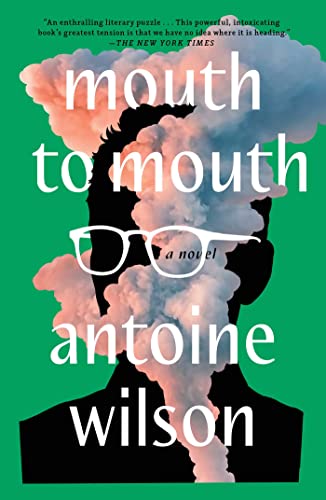
16 January 2022

Before I go on, I have to share that one of my Goodreads friends labeled this a self care book. I like it! It gives me the sense that it's a more continuous process instead of a “one and done.”
Right out of the gate, the authors note that “Dealing with your stress is a separate process from dealing with the things that cause your stress. To deal with your stress, you have to complete the cycle.” [4] While physical activity is the most effective way to complete the stress response cycle, the authors offer several other viable options for those who won't or can't engage in strenuous physical activity. The content of the book goes well beyond this list—I pretty heavily tagged up the print edition. A section that particularly stood out to me was the importance of rest and sleep (Chapter 7: What Makes You Stronger). First, according to this book, science says that 42 percent of our time is what is required to achieve “adequate” rest (including but not limited to sleep, which requires eight hours, give or take an hour)—that's roughly 10 hours a day. Further, toward the end of the chapter, they state,
Sleep is a racial justice issue as well as a gender issue, a class issue, and a basic public health issue. [184]
Detractors of the book (like the Old Me may have been) complain that men also experience toxic stress and that the book bashes The Patriarchy excessively. The authors acknowledge that men experience some of the things addressed in the book, but the book is clearly targeted at/marketed to women. When The Patriarchy is mentioned in the book, it is followed by “Ugh.” This was amusing in the audio edition. I didn't read the entire print edition with my eyes (just the sections I needed to tag to correspond to my audio bookmarks), so I can't say how often it appeared or how others would react to it in print (obviously). The book is written conversationally, which clearly irritated some readers. I, for one, can say that because I'm burned-out, I appreciated a bit of levity and straight talk. Take what works for you; leave the rest.
15 January 2022
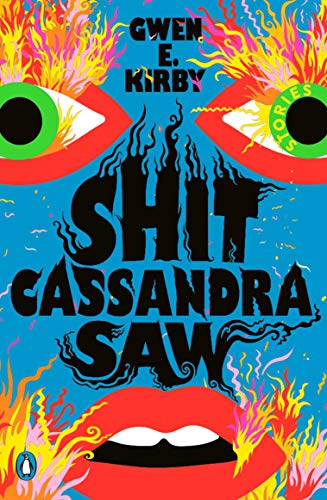
Margaret Atwood meets Buffy in these funny, warm, and furious stories of women at their breaking points, from Hellenic times to today. [from the publisher]
14 January 2022
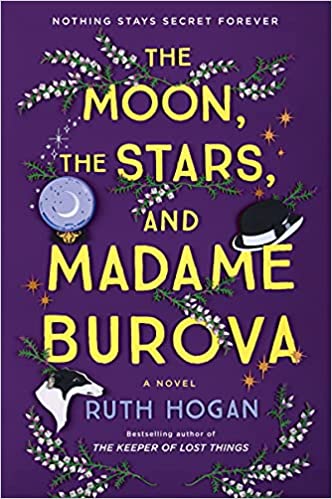
After inheriting her mother’s fortune-telling business as a young woman, Imelda Burova has spent her life on the Brighton pier practicing her trade. She and her trusty pack of Tarot cards have seen the lovers and the liars, the angels and the devils, the dreamers and the fools. Now, after a lifetime of keeping other people’s secrets, Madam Burova is ready to have a little piece of life for herself. But she still has one last thing to do—to fulfill a promise made in the 1970s, when she and her girlfriends were carefree, with their whole lives still before them.In London, it is time for another woman to make a fresh start. Billie has lost her university job, her marriage, and her place in the world when a sudden and unlikely discovery leaves her very identity in question. Determined to find answers, she must follow a trail . . . which leads to Brighton, the pier, and directly to Madame Burova’s door.
In a story spanning over fifty years, Ruth Hogan has conjured a magical world of 1970s holiday camps and seaside entertainers, eccentrics, heroes and villains, the lost and the found. [from the publisher]
When Billie's father dies (predeceased by her mother), she finds out that she was adopted. Chapters set in the 1970s and in the present are used to bring the story together.
Strangely, a couple of plot points were repeated almost verbatim at different times in the book (but in the same part of the story—that is, either in the 1970s or the present). I had to check where I was to make sure I hadn't accidentally gone considerably backwards in the book. Too, it seems like the progress is quite slow. In the 1970s chapters, we know who is the object of Burova's romantic desire and what challenges the couple faces. We hear pretty much the same thing in every 1970s chapter. In the present-day chapters, we know that Billie is anxious to discover the truth about her birth parents; but the steps she takes to discover the truth seem to be drawn out painfully. There are a couple of storylines that were probably inserted to draw out the suspense of Billie's parentage. Unfortunately, some of the additional characters/their stories are boring and don't add anything positive to the story—it just seems like padding.
After an entire book of Burova repeating constantly that she promised she wouldn't reveal Billie's mother's identity to anyone, another character shows up at the very end and spills the beans off-page to someone other than Billie—we don't even get to experience firsthand Billie's reaction to this news we've collectively awaited. It was anticlimactic and unsatisfying. Similarly, there's a closure of sorts for Burova's love story that is sudden and pat.
Overall, the story was uninspiring. The desirable characters need more development and page-time, the plot needs more movement, and there shouldn't be so much repetition. I'm in the minority with this title and author (I've read one other book of hers). I find her on the dull side.
14 January 2022
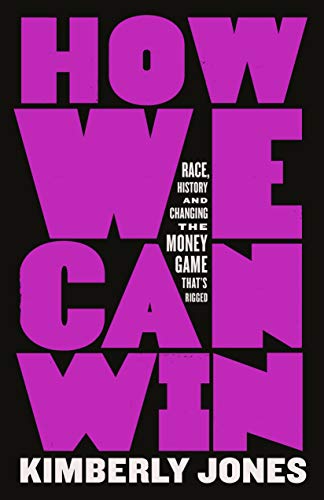
“So if I played four hundred rounds of Monopoly with you and I had to play and give you every dime that I made, and then for fifty years, every time that I played, if you didn't like what I did, you got to burn it like they did in Tulsa and like they did in Rosewood, how can you win? How can you win?”When Kimberly Jones declared these words amid the protests spurred by the murder of George Floyd, she gave a history lesson that in just over six minutes captured the economic struggles of Black people in America. Within days the video had been viewed by millions of people around the world, riveted by Jones’s damning—and stunningly succinct—analysis of the enduring disparities Black Americans face.
In How We Can Win, Jones delves into the impacts of systemic racism and reveals how her formative years in Chicago gave birth to a lifelong devotion to justice. Here, in a vital expansion of her declaration, she calls for Reconstruction 2.0, a multilayered plan to reclaim economic and social restitutions—those restitutions promised with emancipation but blocked, again and again, for more than 150 years. And, most of all, Jones delivers strategies for how we can effect change as citizens and allies while nurturing ourselves—the most valuable asset we have—in the fight against a system that is still rigged. [from the publisher]
I've read two (mostly) how-to activist handbooks in a row now. This one focuses on the economic impacts of slavery and policies that created and entrenched systemic racism in the United States. The book is part history, part commentary, and part guidebook.
Jones shares economic history that all of us should know but likely haven't been taught during our formal education: the impact of the free labor of enslaved people on agriculture in the South and textiles in the North, inherited wealth in white families, the Freedman's Savings Bank, the War on Drugs, the GI Bill, redlining, the prison industrial complex/criminalization of poverty, and more. She uses the game of Monopoly to illustrate how Blacks have been excluded repeatedly from opportunities to thrive and build wealth and how they can't possibly catch up under current conditions. Toward the end of the book, the author gives some guidelines on how to make improvements, individually and collectively: time use, banking/spending/saving, getting help (including through taxpayer-supported agencies), and education. Perhaps most compelling are her thoughts on Reconstruction 2.0, restitution, and the need for a truth and reconciliation process.
The book is somewhat repetitive and occasionally anecdotal, neither of which should deter anyone from reading and absorbing the otherwise quality content.
Thank you, NetGalley, Macmillan Audio, and Henry Holt and Company, for the audio ARC of the book in exchange for an honest review. Publication is expected January 18.
[I read and rated highly Jones' YA novel coauthored with Gilly Segal—I'm Not Dying with You Tonight—in November 2019.]
12 January 2022
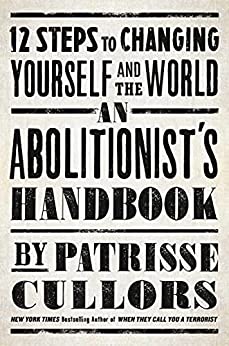
In An Abolitionist's Handbook, Cullors charts a framework for how everyday activists can effectively fight for an abolitionist present and future. Filled with relatable pedagogy on the history of abolition, a reimagining of what reparations look like for Black lives and real-life anecdotes from Cullors An Abolitionist's Handbook, offers a bold, innovative, and humanistic approach to how to be a modern-day abolitionist. Cullors asks us to lead with love, fierce compassion, and precision.In An Abolitionist's Handbook listeners will learn how to:
- have courageous conversations
- move away from reaction and towards response
- take care of oneself while fighting for others
- turn inter-community conflict into a transformative action
- expand one’s imagination, think creatively, and find the courage to experiment
- make justice joyful
- practice active forgiveness
- make space for difficult feelings and honor mental health
- practice non-harm and cultivate compassion
- organize local and national governments to work towards abolition
- move away from cancel culture
An Abolitionist's Handbook is for those who are looking to reimagine a world where communities are treated with dignity, care and respect. It gives us permission to move away from cancel culture and into visioning change and healing. [from the publisher]
The handbook covers a lot in a little space. In some ways, this might seem like it's doing a disservice to the subject matter. On the other hand, it could be seen as a good overview of what's involved in this kind of movement work. I'm leaning toward the latter.
As the author writes early in the book, it isn't intended to be a one-time read. I'd add that while I appreciated being able to read with my ears initially (a format that I find especially effective and manageable for most books), this is a book that I would like to consume both in audio and in print (and more than once for both formats).
In each section, Cullors offers questions to consider and suggestions for additional resources—extremely helpful.
The narrator—Ariel Blake—was excellent. The audio ARC included a bonus interview between the author and fellow activist and writer adrienne maree brown.
Thank you, NetGalley, Macmillan Audio, and St. Martin's Press, for the audio ARC of the book in exchange for an honest review. Publication is expected January 25.
[I read, enjoyed, appreciated, and rated highly Cullors' memoir—When They Call You a Terrorist—in 2018.]
11 January 2022

Something is happening to teenagers across America, spreading through memes only they can parse.At the Float Anxiety Abatement Center, in a suburb of Chicago, Simon Oliver is trying to recover from his sister’s tragic passing. He breaks out to join a woman named Louise and a man called The Prophet on a quest as urgent as it is enigmatic. Who lies at the end of the road? A man known as The Wizard, whose past encounter with Louise sparked her own collapse. Their quest becomes a rescue mission when they join up with a man whose sister is being held captive by the Wizard, impregnated and imprisoned in a tower. [from the publisher]
After rating Hawley's Before the Fall (published in 2016) 4 stars in 2019, I was anxious to read his latest novel as soon as possible. I thought several times during my reading that I should bail—not because it's dark, disturbing, and brutally violent (which it is), but because it's too close to our reality. The novel's action takes place very shortly after the pandemic (I'm glad the author thinks we'll be through with this in the near future—ha!), and makes frequent mentions to the Party of Truth and the Party of Lies (both parties think they're the Truth and their opponents are the Lies), the isolation of the pandemic, anti-maskers, anti-vaxxers, the Capitol insurrection, the opioid crisis (and a company/owner who profited), human trafficking, and so on. If all that isn't enough, a major thread involves a rash of suicides among young people. So, if you're sensitive to pretty much any topic whatsoever, this is not a book for your entertainment.
When I finished reading, I admitted to my partner that I sort of wanted him to read it, too. It's not that I want him to suffer—I just want someone to share the experience . . . and maybe discuss it with me. If you read it, please chat with me afterward.
The book is running the gamut on ratings. I don't think I'm alone in not being sure how to rate it. On its literary merit? On the reader's enjoyment? Something else?
10 January 2022
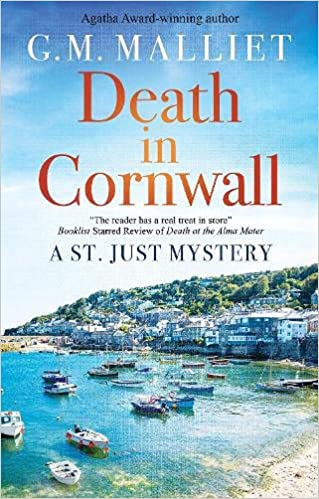
To celebrate their engagement, DCI Arthur St. Just and Portia De’Ath visit the quiet village of Maidsfell in Cornwall. Upon arriving they find the villagers in an uproar over plans to redevelop the local seafront.The fishermen want to build a new slipway to aid their business, but many residents worry it will spoil the view for the tourists who help drive the economy. After a heated village meeting on the issue, St. Just overhears an argument involving Lord Bodwally—an unpopular aristocrat staunchly opposed to the plans. Later, Bodwally’s lifeless body is discovered. It’s murder.
Although Bodwally was disliked, who’d go so far as to kill him? St. Just, although an outsider from Cambridge, feels compelled to help local authorities investigate. Is Bodwally’s death linked to the seafront, his suspect business dealings, or a secret from the past? One thing is certain, the fallout threatens to change Maidsfell forever. . . . [from the publisher]
While this is my first, it is the fourth in a series. As far as I can tell, I was not at a disadvantage in not having read the first three. The story is a typical cozy mystery, with plenty of local color and red herrings. I learned a few interesting tidbits, but I won't share them with you for fear of spoiling the story.
The female narrator's male voices made those characters sound angry most of the time, which was off-putting and confusing. This gave me a different sense of DCI St. Just's character and relationships than what I had gleaned/expected from other reviewers.
Thank you, NetGalley and Dreamscape Media, for the audio ARC of the book in exchange for an honest review. Publication is expected January 18.
9 January 2022
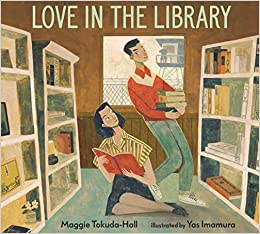
To fall in love is already a gift. But to fall in love in a place like Minidoka, a place built to make people feel like they weren’t human—that was miraculousAfter the bombing of Pearl Harbor, Tama is sent to live in a War Relocation Center in the desert. All Japanese Americans from the West Coast—elderly people, children, babies—now live in prison camps like Minidoka. To be who she is has become a crime, it seems, and Tama doesn’t know when or if she will ever leave. Trying not to think of the life she once had, she works in the camp’s tiny library, taking solace in pages bursting with color and light, love and fairness. And she isn’t the only one. George waits each morning by the door, his arms piled with books checked out the day before. As their friendship grows, Tama wonders: Can anyone possibly read so much? Is she the reason George comes to the library every day? Maggie Tokuda-Hall’s elegant and true love story about her grandparents for listeners of all ages sheds light on a shameful chapter of American history. [from the publisher]
From my initial reading, the author's note at the end is more compelling than the story itself. I'm looking forward to reading it again—with my eyes—and I've already placed a hold at the library for the print edition. In any event, the subject matter is important. I hope books like this will continue to be written and read . . . and gain a wider audience.
Thank you, NetGalley and Dreamscape Media, for the audio ARC of the book in exchange for an honest review. Publication is expected January 11.
8 January 2022
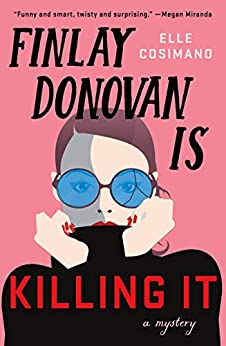
Finlay Donovan is killing it . . . except, she’s really not. A stressed-out single mom of two and struggling novelist, Finlay’s life is in chaos: The new book she promised her literary agent isn’t written; her ex-husband fired the nanny without telling her; and this morning she had to send her four-year-old to school with hair duct-taped to her head after an incident with scissors.When Finlay is overheard discussing the plot of her new suspense novel with her agent over lunch, she’s mistaken for a contract killer and inadvertently accepts an offer to dispose of a problem husband in order to make ends meet. She soon discovers that crime in real life is a lot more difficult than its fictional counterpart, as she becomes tangled in a real-life murder investigation. [from the publisher]
If I had been wearing pearls when I start reading this book, I would have clutched them. I'm pretty sure I uttered, “Oh, my!” once or twice. Ultimately, I thoroughly enjoyed this wacky, action-packed comedy of errors. There's a full cast of contributing characters, including Finlay's cop sister (and a colleague of hers), Finlay's ex-husband (and his bitchy real-estate-agent fiancée), Russian mobsters, a hot young law student/bartender, a nosy neighbor, and nanny Vero (who becomes Finlay's partner-in-crime).
I wish this had crossed my radar sooner so I would have been better prepared for the sequel, which comes out early in February—the hold list is so long already that I might have to buy the second installment.
7 January 2022
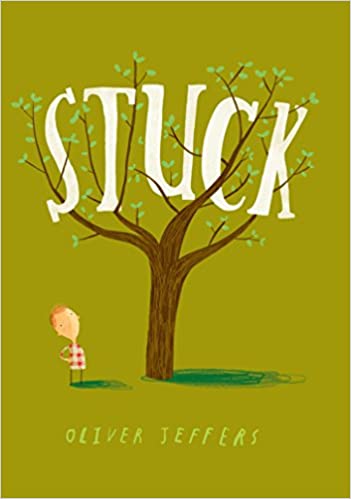
6 January 2022
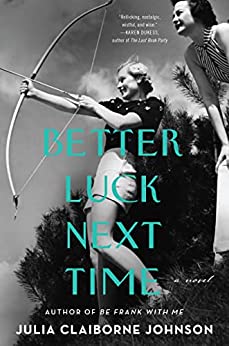
At least I learned something: In the 1930s, the state of Nevada dropped its residency requirements to qualify for divorce to only six weeks, and women flocked to ranches in Reno (especially) to get pampered while they waited. This tourism helped bolster the state's economy during and after the Great Depression.
That's the setting of this story, which is told, in retrospect, in a conversational manner by Ward, a handsome, young ranch hand. Most of the story revolves around two ranch guests: Nina, a third-time guest, and Emily, who has a teenaged daughter and a cheating husband. Early on, there are a few sassy quips from some of the guests, which is why I was hopeful that this book would break my HF curse.
5 January 2022
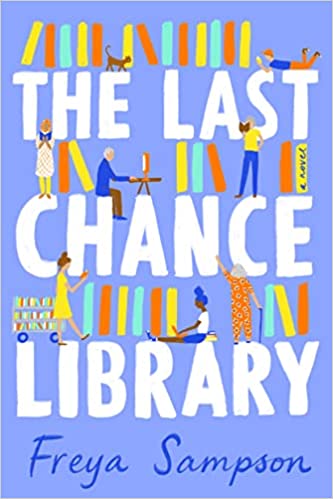
Lonely librarian June Jones has never left the sleepy English village where she grew up. Shy and reclusive, the thirty-year-old would rather spend her time buried in books than venture out into the world. But when her library is threatened with closure, June is forced to emerge from behind the shelves to save the heart of her community and the place that holds the dearest memories of her mother.To save the place and the books that mean so much to her, June must finally make some changes to her life. For once, she's determined not to go down without a fight. And maybe, in fighting for her cherished library, June can save herself, too. [from the publisher]
To save their beloved library, dedicated patrons start a group called FOCL (Friends of Chalcot Library; pronounced like an obscene phrase), which June has been forbidden to join by the local council. June tries to help on the sly, in hopes of avoiding getting fired.
I always promise myself that I'm not going to read more books set in bookshops and libraries, because they're so often disappointing. Apparently, though, I can't help myself. This one was pleasantly surprising—there was a nice mix of social justice and community-building/character development. The problem of public library funding cuts is real and severe, worldwide. Not everyone understands or appreciates how critical public libraries are to the health/welfare of individuals and the strength of communities.
4 January 2022
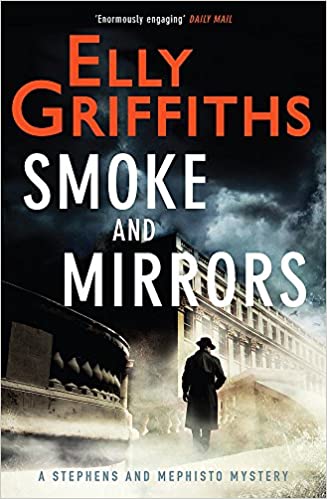
Pantomime season is in full swing on the pier with Max Mephisto starring in Aladdin, but Max’s headlines have been stolen by the disappearance of two local children. When they are found dead in the snow, surrounded by sweets, it’s not long before the press nickname them “Hansel and Gretel.”DI Edgar Stephens has plenty of leads to investigate. The girl, Annie, used to write gruesome plays based on the Grimms’ fairy tales. Does the clue lie in Annie’s unfinished—and rather disturbing—last script? Or might it lie with the eccentric theatricals who have assembled for the pantomime?
For Stan (aka the Great Diablo), who’s also appearing in Aladdin, the case raises more personal memories. Back before the Great War, he witnessed the murder of a young girl while he was starring in another show, an event which has eerie parallels to the current case.
Once again Edgar enlists Max’s help in penetrating the shadowy theatrical world that seems to hold the key. But with both distracted by their own personal problems, neither can afford to miss a trick. For Annie and her friend, time is running out. . . . [from the publisher]
This is the second in a series. I read the first—The Zig Zag Girl—in 2018. I liked this second installment a bit more than the first, which is the opposite of the other two series of Griffiths' of which I've read the first two books: Ruth Galloway and Harbinder Kaur.
This Brighton series feels much the same as Agatha Christie and other standard murder mystery series of Christie's time. I'm finding these to be serviceable—entertaining enough, but not particularly thrilling.
3 January 2022
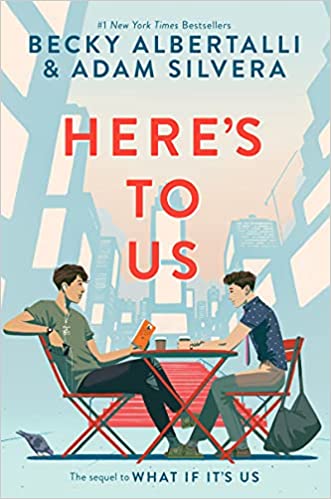
I rated the first installment 3 stars in fall 2018—that's a pretty basic “it was decent/I'm not mad I read it” rating. I thought this one (excepting a truly irritating section around/just beyond the middle in which everybody was whiny and waffly) was better. It had some funny bits, especially from Arthur. The romance was over-the-top sappy, but I'll allow it . . . this time. The book would have been improved by not being so long. Supporting characters Dylan (Ben's best friend) and Samantha have a big storyline that's rushed at the end.
It has been pointed out by other readers that the characters aren't terribly more mature than they were in the two-years-earlier installment. Maybe . . . and they're still teenagers—I don't think it's unreasonable to think that they have a lot of maturing to do still.
I'm uncertain about my rating on this one. I suspect I'm rating it higher than I would usually because my weary self appreciates being entertained without having to provide brainpower. If you're up for a sometimes-funny, schmaltzy, gay YA love story, give it a try. I think it would work as a standalone, if you haven't (and don't want to) read the first book.
2 January 2022
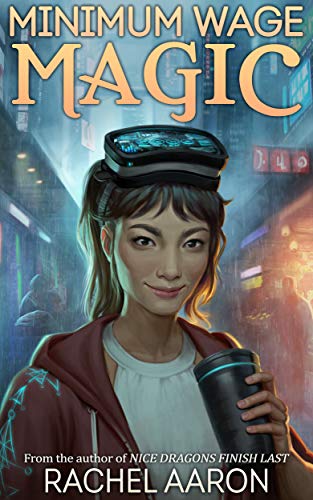
Making a living is hard. In a lawless city where gods are real, dragons are traffic hazards, and buildings move around on their own, it can feel downright impossible.Good thing freelance mage Opal Yong-ae has never let little things like impossibility stop her. She’s found a way to put her overpriced magical art history degree to use as a Cleaner: a contract municipal employee who empties out abandoned apartments and resells the unusual treasures she finds inside for a profit. It’s not a pretty job, or a safe one—there’s a reason she wears bite-proof gloves—but when you’re neck-deep in debt to a very magical, very nasty individual, you can’t be picky about where the money comes from.
But even Opal’s low standards are put to the test when the only thing of value in her latest apartment is the body of the previous tenant. Dealing with the dead isn’t technically part of her job, but this mage died hiding a secret that could be worth a lot of money, and Opal’s the only one who knows. With debts she can’t pay due at the end of the week, this could be the big break she’s been waiting for, but in a city of runaway magic where getting in over your head generally means losing it, the cost of chasing this opportunity might be more than Opal can survive. [from the publisher]
This urban fantasy was a good pick for my first read of 2022. There's an aspiring independent and determined female lead, action, urgency, mystery, magic, and dragons. There's not a great amount of violence or grossness.
I enjoyed this enough that I've added the first in a different series set in the same universe to my TBR list.
About
I got my first library card at age 4, at the Blackstone Branch of the Chicago Public Library, and have been a regular user of public and university libraries ever since. I am a trustee of the Palatine [Illinois] Public Library District in my second term, currently serving as board president.
I read books for all age groups, from all time periods, and from practically all genres, though my all-time favorite genre is mystery. I love to talk about books with others, so please join me in conversation about a book we both read or tell me about a book you think I'd like.
I'm never not reading.

